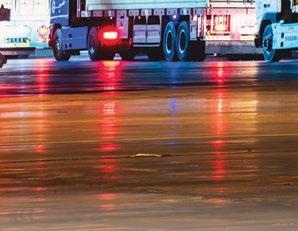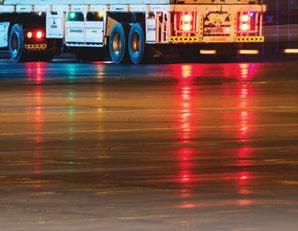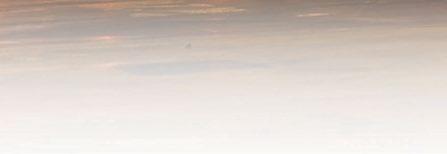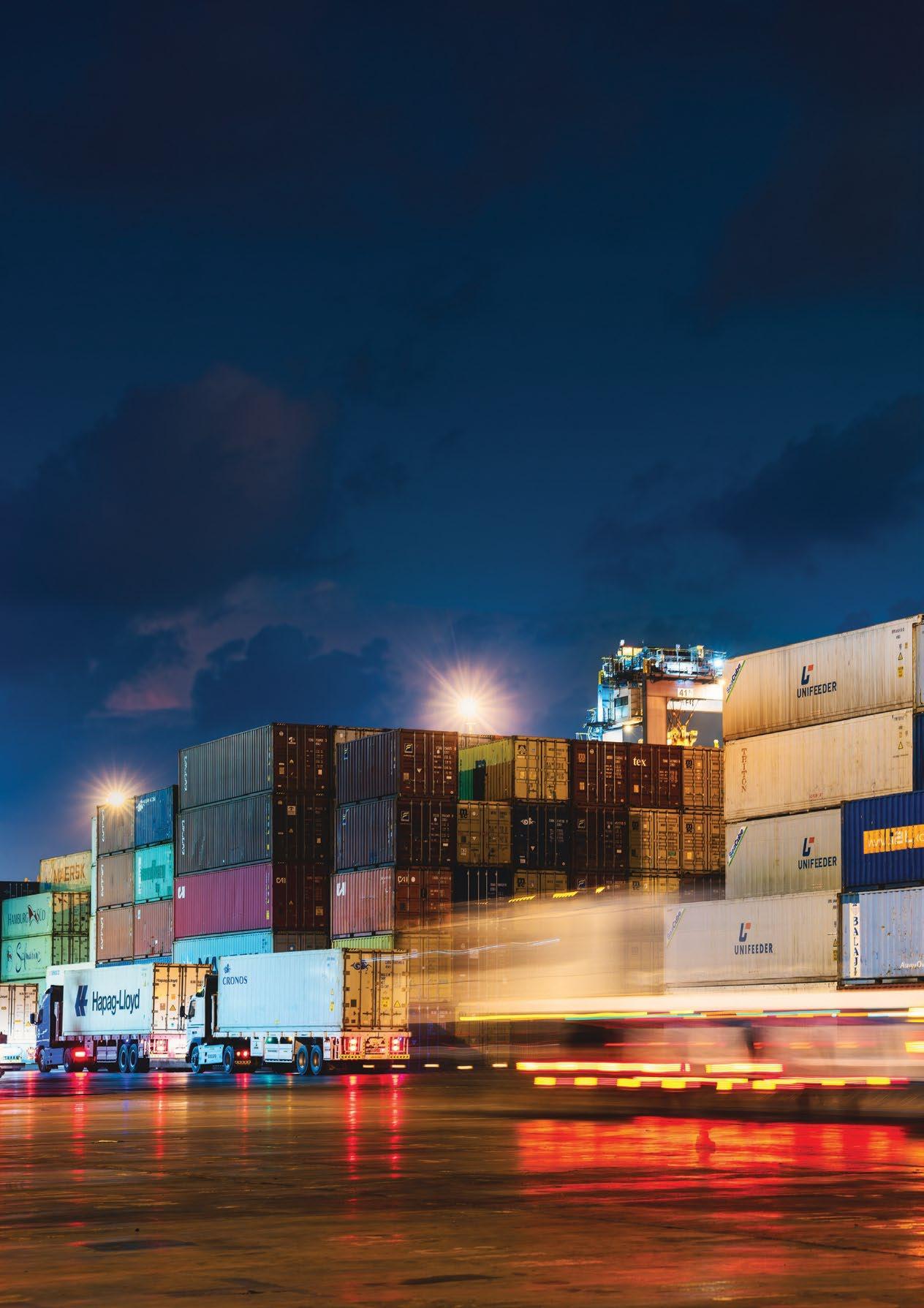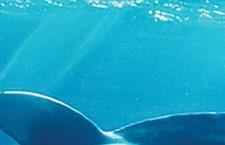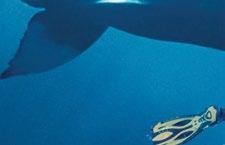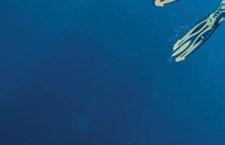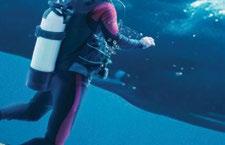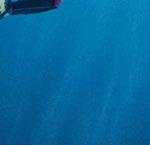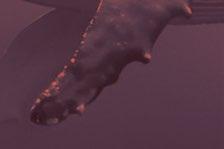LEGACY OF EXCELLENCE
Emile Hoogsteden CEO, SOHAR Port
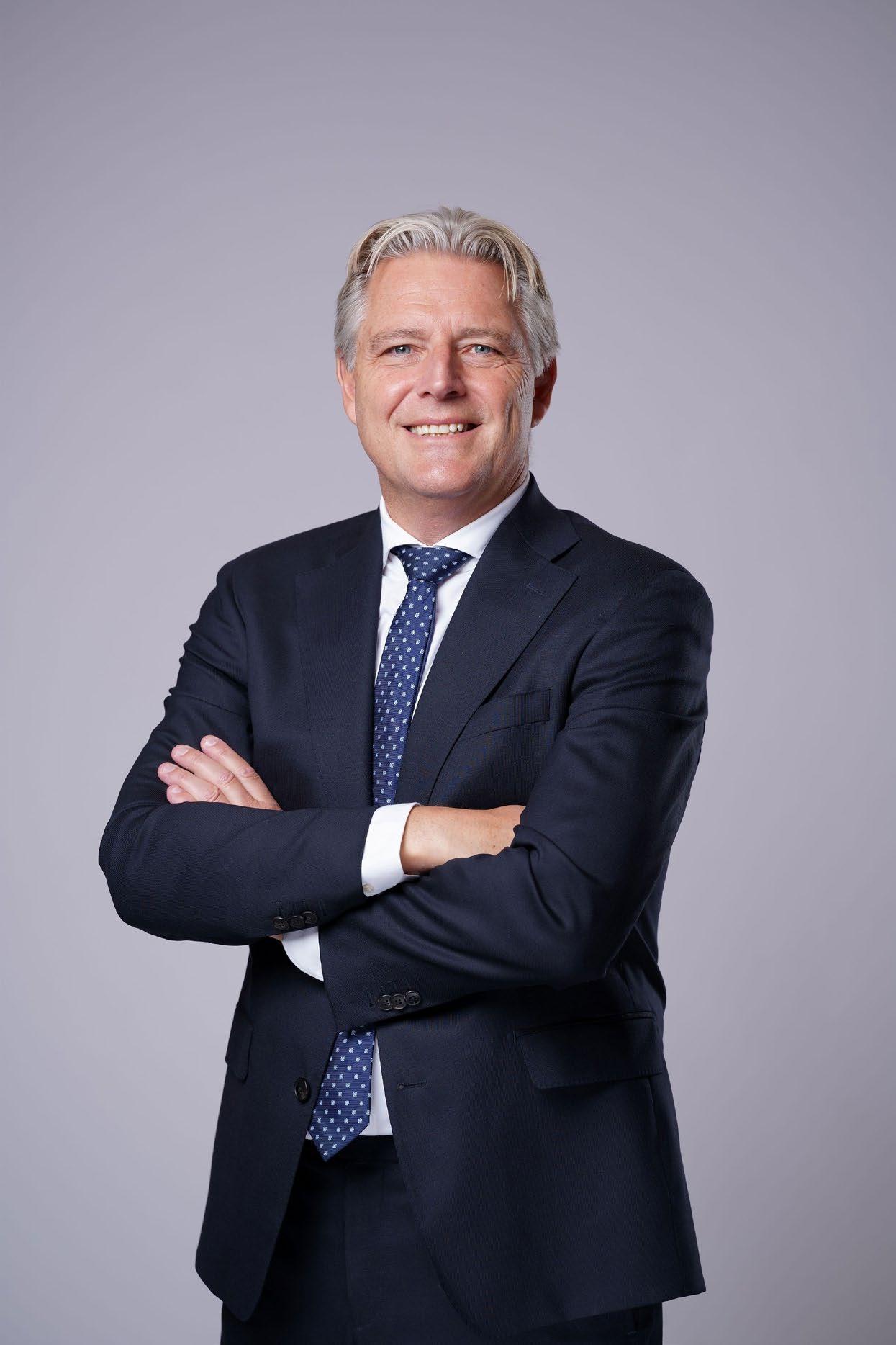
Dr.

Emile Hoogsteden CEO, SOHAR Port

Dr.
Nestled at the crossroads of global trade routes, SOHAR Port stands as a beacon of maritime excellence. With an impressive track record of servicing a significant volume of vessel calls annually, we offer unparalleled services with consistently favorable anchorage conditions throughout the year.
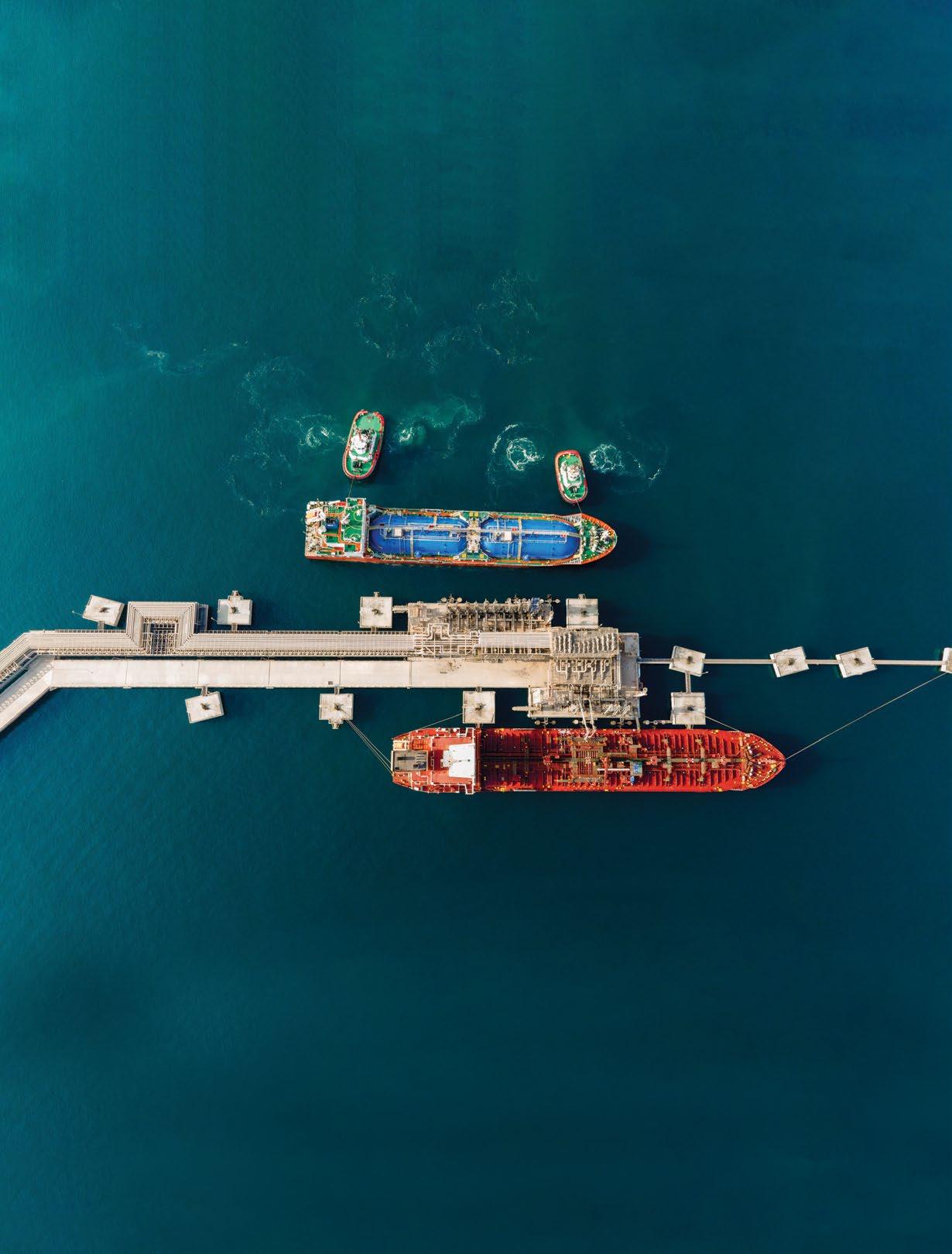
Diverse Range of Services:
▪ Expert Bunkering and Ship-to-Ship Operations
▪ All-Encompassing Vessel Repair Services
▪ Hull Cleaning and Advanced Underwater Surveys
▪ Efficient Crew Changes and Comprehensive Logistics Support
State-of-the-Art Facilities:
▪ Expansive Anchorage Areas with Versatile Layby Options
▪ Cutting-Edge Infrastructure Catering to Various Vessel Requirements
▪ Duty-Free Outlet for Crew Essentials
Connect with SOHAR Port: Discover more about our unique offerings

soharportandfreezone.om
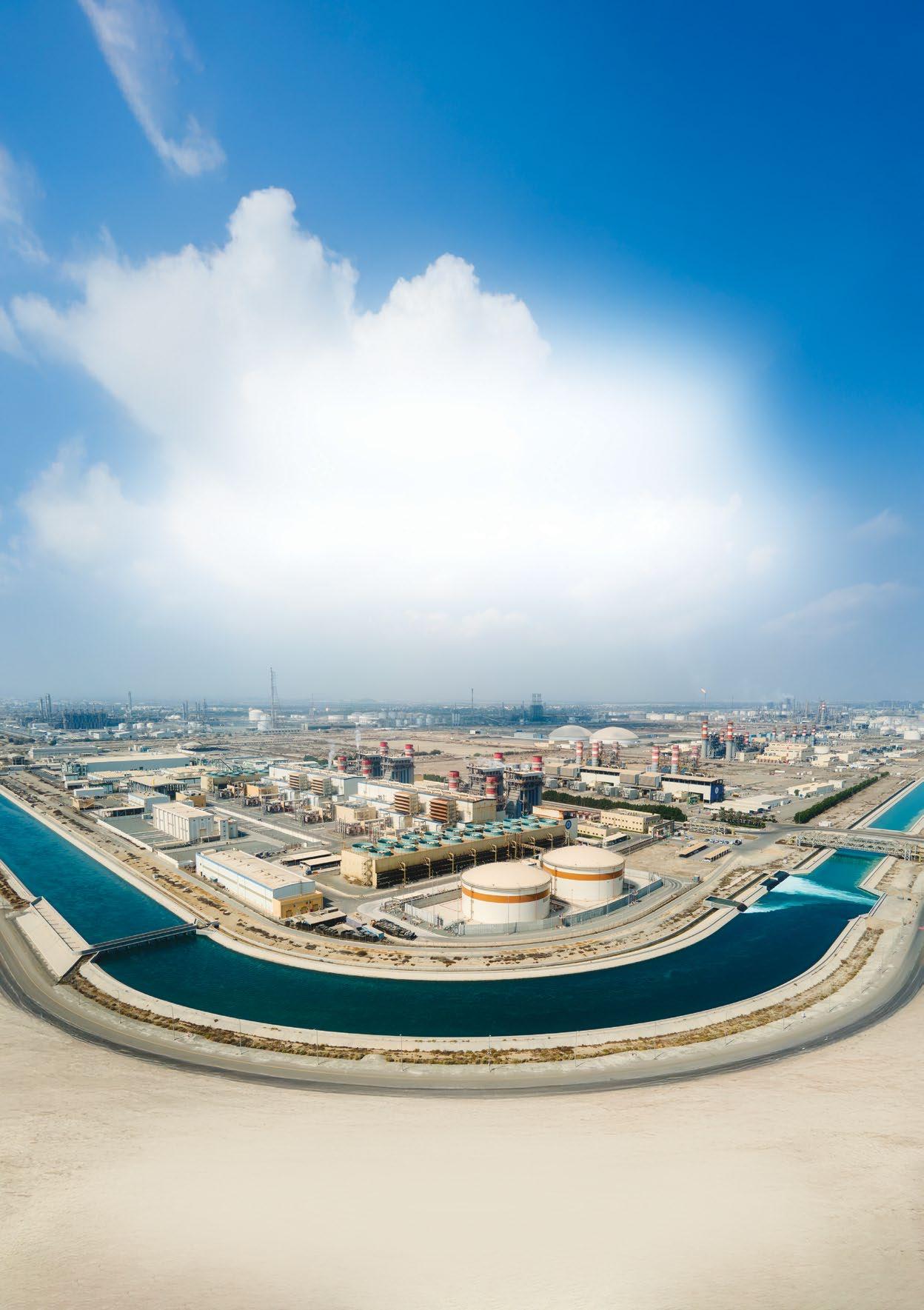
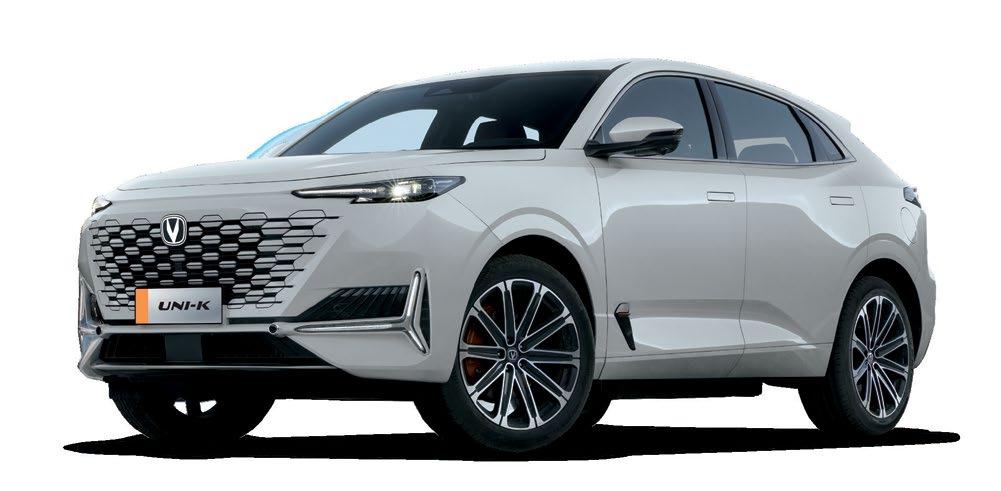

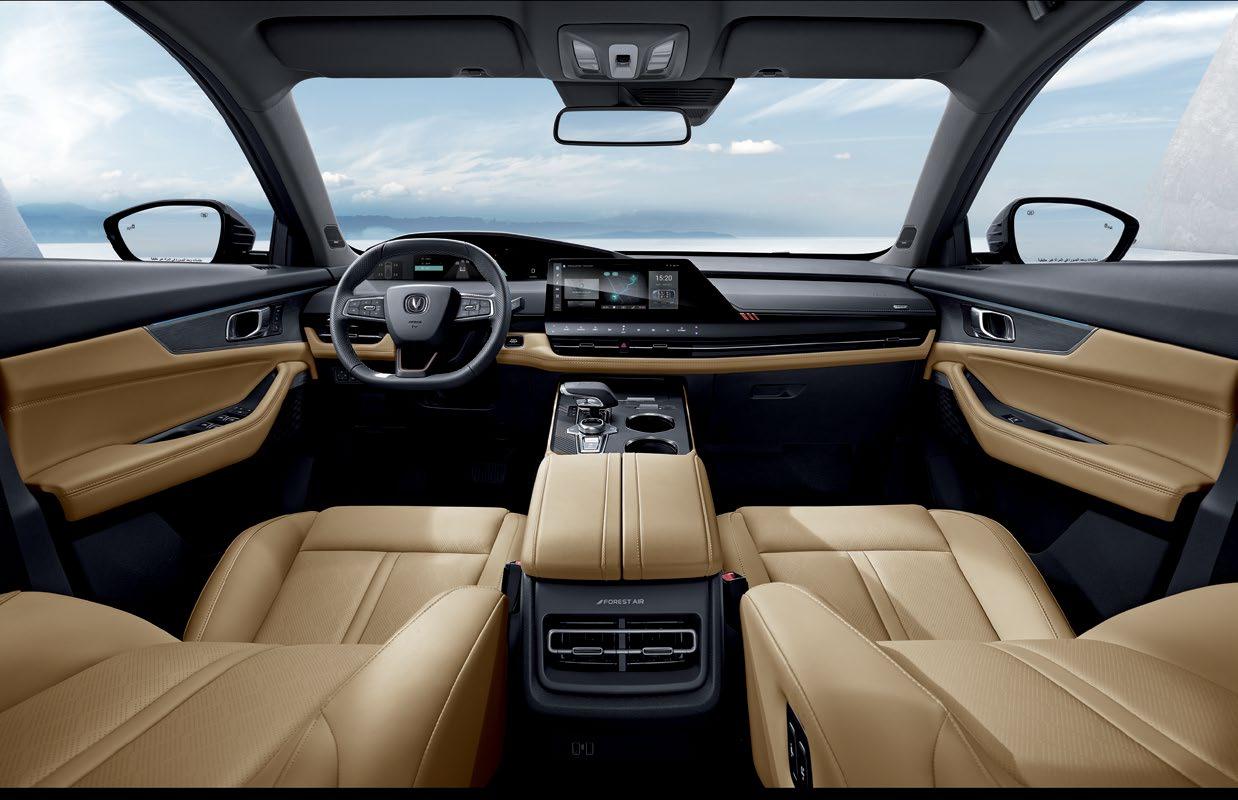
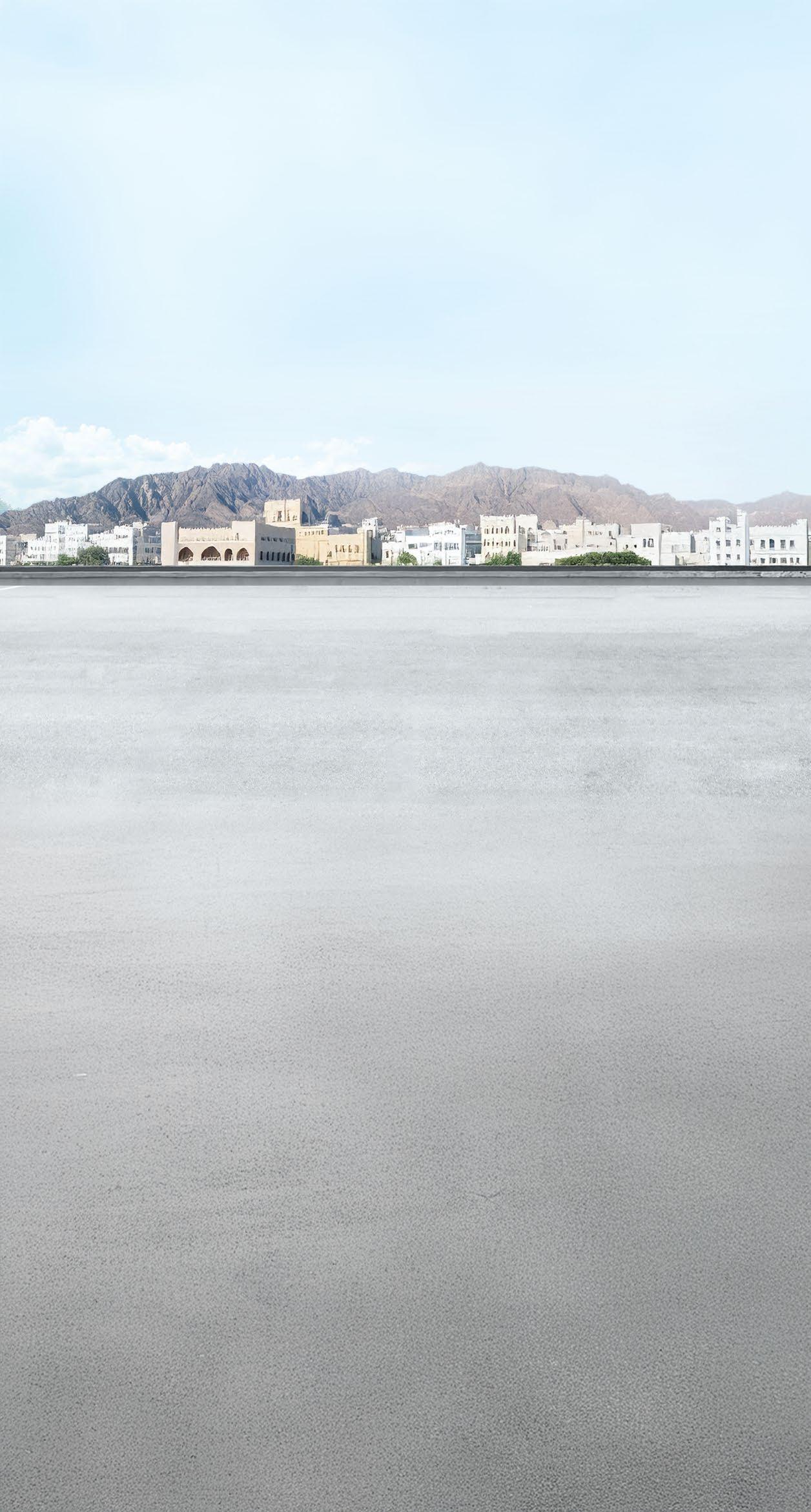
EDITORIAL
Editor-in-chief
Said Masoud Almashani
Executive Vice President and Group Editor
Mayank Singh
Editor Oommen John P
DESIGN
Director Production – Print & Digital
Ramesh Govindaraj
Chief Photographer
Rajesh Rajan
Cover concept
Rakesh Radhakrishnan
MARKETING
Associate Advertising Director
Shivkumar Gaitonde
Business Manager
Dhanish Pillai
CORPORATE
Chief Executive Officer
Atulya Sharma
Published by
United Press & Publishing LLC
PO Box 3305, Ruwi, Postal Code - 112 Muscat, Sultanate of Oman
Tel: (968) 24700896, Fax: (968) 24707939
Website: www.umsoman.com
All rights reserved. No part of this publication may be reproduced without the written permission of the publisher. The publisher does not accept responsibility for any loss occasioned to any person or organisation acting or refraining as a result of material in this publication. OER accepts no responsibility for advertising content.
Copyright © 2025 United Press & Publishing LLC
Printed by Oman Printers & Stationers Ltd. Co. S.P.C.
Correspondence should be sent to:
Oman Economic Review
United Media Services
PO Box 3305, Ruwi 112, Sultanate of Oman
Fax: (968)24707939
Website: www.oerlive.com
For editorial enquiries: 99884854
For advertising enquiries: 99267159
SOHAR Port and Freezone has solidified its role as a vital hub linking Oman to global markets, with current investments exceeding $30bn, including over $4bn secured in 2024 alone. Initially focused on mineral processing and aluminium, SOHAR has diversified into metals, petrochemicals, logistics, and food processing, creating a resilient ecosystem that supports both national development and international trade.
Significant strides have been made in the first half of 2025, reinforcing its critical role in Oman’s economic diversification journey under Oman Vision 2040. The Freezone has demonstrated remarkable performance by awarding numerous contracts to local companies, enhancing its reputation as a dynamic investment ecosystem that promotes sustainable trade practices.
SOHAR Port managed 34 million metric tons of cargo. Ongoing investments in modernising facilities and implementing advanced digital solutions are boosting operational capacity and enhancing SOHAR’s competitiveness globally. The launch of a major infrastructure expansion—Phase 2 of the Freezone—spanning an additional 670 hectares, aims to enhance cargo capacity and foster new industrial opportunities. Further, its CSR initiatives benefited over 3,471 people, solidifying SOHAR’s commitment to social responsibility and its pivotal role in Oman’s sustainable development agenda. As Oman advances towards Vision 2040, SOHAR stands as a model of economic resilience and future-ready development.
OommenJohn Oommen John


Sign up for OERLive's daily WhatsApp updates on economy, lifestyle, and technology. Send us a WhatsApp message with the word “OERLIVE” on 91242930

Your cover story on Digitalisation in Oman banks made for an interesting read. Over the years, Oman’s financial sector has been undergoing a remarkable transformation, driven by rapid technological advancements. Digitalisation is not only enhancing the reliance on data but also ushering in innovative solutions that are reshaping how financial institutions operate.
Oman’s banks are increasingly leveraging next-generation technologies, including Artificial Intelligence (AI), Machine Learning (ML), blockchain, and data analytics. These tools are revolutionizing the sector by automating processes, facilitating data-driven decision-making, and significantly boosting operational efficiency. As a result, banks are becoming more agile in responding to market demands and customer needs.
The CBO is at the forefront of initiatives aimed at revamping the financial landscape in Oman. By promoting economic diversification through sector-specific lending and enhancing capital buffers, the Central Bank is positioning banks to finance over $25 billion in non-oil sectors by 2030. This strategic focus is expected to drive GDP growth and facilitate job creation, paving the way for a more resilient economy. Recent advancements, such as the launch of a digital direct debit service, exemplify this transition. This service streamlines payment processes and reduces reliance on traditional methods like cheques, reflecting a broader shift towards a cashless society. Banks are not only enhancing their digital offerings but are also providing comprehensive online banking services and innovative payment solutions that cater to the evolving needs of consumers. Banks are increasingly exploring partnerships with fintech companies to foster innovation in financial solutions. These collaborations are leading to the development of new digital products and services that meet the diverse needs of consumers, further enhancing the overall financial landscape.
While the progress is commendable, it is crucial to address the challenges associated with this digital shift. Issues such as cybersecurity, data privacy, and the need for continuous upskilling of the workforce must be prioritised.
Ralph Edwards, MQ
The recent announcement by Hydrom regarding new fiscal incentives for Oman’s green hydrogen projects marks a significant milestone in the country’s commitment to sustainable energy development. As the orchestrator of Oman’s national Green Hydrogen Strategy, Hydrom is not only enhancing the commercial viability of these projects but also reinforcing Oman’s position as a global leader in the hydrogen economy.
With nearly 100 registrations already received from major industry players and consortia across the green hydrogen value chain, it is clear that there is a sustained appetite for structured, policybacked development opportunities. The strong market response underscores the confidence investors have in Oman’s evolving hydrogen ecosystem, which is characterized by a competitive and transparent environment.
Hydrom’s initiatives are not just about attracting investment; they are about fostering a sustainable future for Oman and the broader region. By prioritizing green hydrogen, we are taking significant strides towards a low-carbon economy, ensuring that Oman remains at the forefront of global energy transitions.
Saleem Malik,
Seeb
BEYOND OIL: SOHAR’S DIVERSIFIED INDUSTRIAL LANDSCAPE
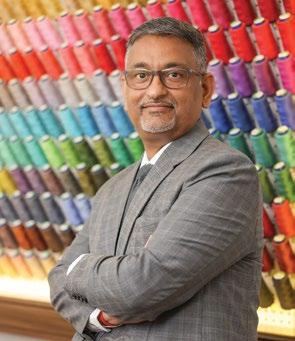

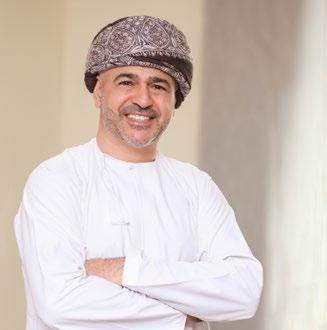
Galfar Engineering and Contracting is positioning itself to be a partner of choice for Vision 2040 initiatives — not only to build infrastructure but to actively enable and partner in shaping the future aspirations of Oman, says CEO, Dr. Hamoud Rashid Al Tobi
FACE 2 FACE
As a globally competitive Omani company, Muscat Thread Mill’s core strength is in producing international-quality threads using advanced European technology. We consistently innovate and optimise our production processes to achieve the best balance between quality and cost, says CEO, Mithilesh K Singh
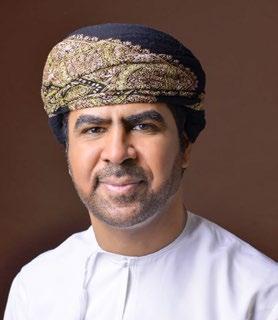
Integrated Gas Company’s focus is not just operational excellence, but also long-term value creation for Oman’s economy – positioning gas as a catalyst for sustainable development, says CEO, Abdulrahman Al Yahyaei 10
xAI open-sources Grok 2.5, signalling accelerated AI Push
Elon Musk’s artificial intelligence company, xAI, has announced the open-source release of its Grok 2.5 model, giving researchers and developers direct access to its underlying architecture and codebase
Gold and silver prices soar to multi-year highs on Fed rate-cut bets Gold and silver surged to fresh highs today, buoyed by mounting expectations that the US Federal Reserve will cut interest rates in September
Sohar Industrial City localises 6 new projects worth over RO27Mn
Sohar Industrial City, an affiliate to the Public Establishment for Industrial Estates “Madayn,” has recently localised six projects with a total investment volume exceeding RO27mn
Bank Muscat, the leading financial services provider in the Sultanate of Oman, has been awarded the Best Bank in Oman for (SMEs) title for 2025 at the prestigious MEED MENA Banking Excellence Awards. This recognition highlights the Bank’s ongoing efforts to foster entrepreneurship and its substantial role in the development and growth of SMEs through offering a wide range of banking services and solutions tailored to meet their evolving financial needs and business goals.
Commenting on this achievement, Ibrahim Khamis Al Balushi, Senior Assistant General Manager, SMEs at Bank Muscat, said: “We take pride in being recognised as the best bank in Oman for SMEs award, a testament to the Bank’s commitment to strategic initiatives that actively support entrepreneurs and SMEs. These efforts contribute to strengthening the national economy. Bank Muscat offers a variety of banking services and facilities specifically designed to empower these enterprises to expand and succeed in their businesses. Bank Muscat continually launches initiatives aimed at guiding SMEs on how to develop and scale their businesses effectively, and organizes dedicated training programmes to build the financial, administrative, and marketing capabilities of entrepreneurs and SME owners. This recognition serves as a strong motivator for the Bank to continue playing its pioneering role in supporting and developing the SMEs sector, offering top-tier financial solutions that meet both current and future needs. We would like to extend our gratitude to the Bank’s customers for their trust
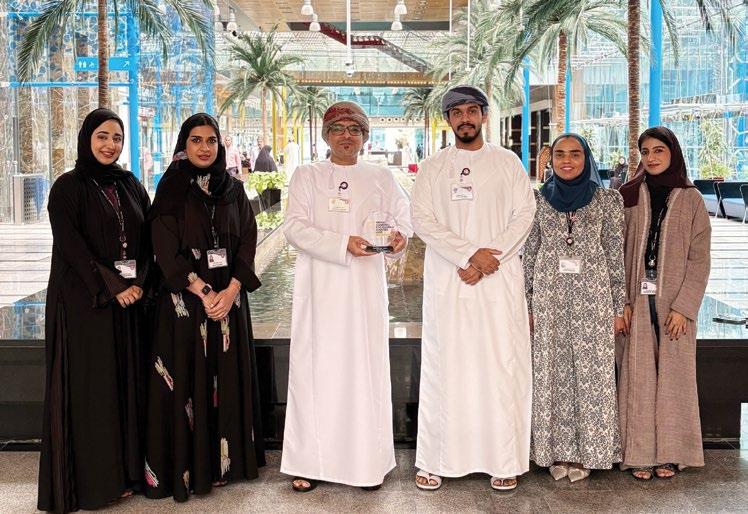
access to workshops, and networking events for entrepreneurs. The Bank remains steadfast in its collaboration with public and private sector entities to support business growth and SMEs development, particularly focusing on empowering youth and promoting a culture of innovation and sustainability in alignment with Oman Vision 2040.
Bank Muscat’s commitment to SMEs development is evident in the wide range of financing services it provides across various sectors, including industry, retail, and hospitality. The Bank also prioritizes micro-enterprises and reinforces its support to these businesses through its “Najahi”
Business Banking Unit launched in 2014. The Bank’s support to the MSMEs underscores its commitment to understanding the needs of this
The Bank also actively launches initiatives aimed at developing the businesses of Omani entrepreneurs. Amongst these initiatives is the “Al Wathba” Academy, which aims to qualify and train the Omani entrepreneurs in the fields of business administration and finance, honing their skills to perform their businesses in a practical and professional manner. The Bank is also keen to hold events and activities with the aim of providing a marketing platform for business owners and small businesses. In this context, the Bank launches the annual “Al Wathbah Souq” in the Holy month of Ramadan. This event offers a platform for entrepreneurs and home-based business owners to showcase their products, reach new customers, and explore marketing opportunities.
Continuing its leadership in developing Shariacompliant financing solutions and reinforcing its position as the leading and most trusted Islamic bank in the Sultanate of Oman, Bank Nizwa has signed a strategic Memorandum of Understanding with Jabal Asset Management LLC, a global emerging markets specialist, investment manager and broker based in Oman. This partnership brings together Bank Nizwa’s deep expertise in Islamic finance and its advanced banking infrastructure with Jabal Asset Management’s
specialization in asset management and investment in the global emerging markets. As part of the Memorandum of Understanding, both parties will explore the development of Sharia-compliant funds designed to meet the needs of diverse investor segments. Bank Nizwa will play a pivotal role in ensuring these products adhere to the highest regulatory standards, while Jabal Asset Management will contribute its asset management acumen to structure and manage products across geographies. This
collaborative effort is expected to open pathways for innovative investment strategies that resonate with evolving investor expectations. This MoU underscores a shared vision of supporting Oman’s economic diversification goals, fostering financial innovation, and advancing the role of Islamic finance in global asset management.
The agreement was signed by Saif Abdullah Al Rawahi, Deputy General Manager – Wholesale Banking at Bank Nizwa, and Issa Al-Battashi,
Driven by its firm belief in its active role in national economic empowerment, ahlibank continues to offer its Point of Sale (POS) Financing Program for small and medium enterprises (SMEs) as one of the leading innovative financing solutions that meet the needs of this vital sector. The program enables businesses to strategically manage their cash flow and convert their daily sales through POS devices into immediate capital that supports the growth and expansion of their operations.
As a financing option designed to offer business owners maximum flexibility and speed, the program provides funding of up to RO150,000, with 12 months for OPEX and 36 months for CAPEX, and quick approvals to ensure that business owners receive the required liquidity in record time. It also offers diverse financing options, including up to 30% of total sales for operating expenses and 70 per cent for capital expenditures, in addition to the possibility of obtaining a credit card valued at up to RO10,000 as part of the combined financing solutions. In
this regard, Hassan Maqbool Al Lawati, AGM - Head of SME, said, “We consider the small and medium enterprises sector a priority in building the foundations of economic growth. Therefore, the Point of Sale Financing Program was introduced as a smart financial tool that quickly adapts to the needs of this sector, granting business owners maximum flexibility to face challenges and seize opportunities that enable them to grow confidently and achieve success.”
This program represents a successful and suitable financing solution for various business activities, providing equal opportunities for business owners across diverse fields and project sizes, including small and medium enterprises, retailers, restaurants, service providers, and other sectors relying on point-of-sale systems. It also extends to business associations, trade groups, financial and media departments, and others, enabling them to access the funding they need to support their ambitious plans. Owing to its flexibility and comprehensiveness, the program enables business owners to effectively manage

cash flow, expand their operations, and invest in growth opportunities, thereby enhancing their competitiveness and sustainability. This reflects ahlibank’s commitment to supporting Oman Vision 2040 and strengthening the contribution of small and medium enterprises to the national income through innovative and advanced financial solutions that meet the aspirations of the commercial sector.

Managing Director at Jabal Asset Management, in the presence of numerous of executives from both institutions. Commenting on the partnership, Saif Abdullah Al Rawahi said, “This partnership represents more than just a merging of expertise and capabilities; it is a forward-looking step toward building new avenues for Sharia-compliant asset growth –delivering value to investors, communities, and the economy as a whole. By combining Bank Nizwa’s trusted experience in Islamic banking with Jabal Asset Management’s investment expertise, we aim to unlock new opportunities that support economic diversification, attract investments, and strengthen the Sultanate’s
position as a leading hub for Islamic finance. Through such partnerships – ones that foster innovation in products and elevate the quality of services offered – Bank Nizwa continues its efforts to advance Islamic banking while ensuring the delivery of modern, competitive offerings that align fully with our customers’ values.”
“This MoU marks an important milestone for Jabal Asset Management as we continue to expand our capabilities and presence across key markets,” said Issa Al Battashi, Managing Director, Jabal Asset Management. “Partnering with Bank Nizwa, a pioneer in Sharia-compliant banking, allows us to deliver tailored solutions
that bridge global investment opportunities with the values and requirements of our clients.”
In addition, the partnership will extend to capital raising initiatives, leveraging Bank Nizwa’s extensive distribution channels to connect investors with carefully curated Shariacompliant opportunities. The collaboration is also expected to include emerging markets brokerage services, with a focus on enhancing accessibility and efficiency. By integrating these services, the two institutions aim to deliver comprehensive solutions that enhance value creation for customers.
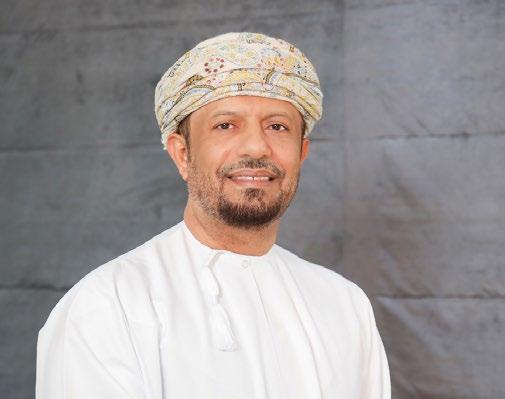
Dhofar International Development & Investment Co. SAOG (DIDIC) has announced the appointment of Said Ahmed Safrar as its new Chief Executive Officer. With more than 28 years of leadership experience spanning the banking, telecommunications, and investment sectors, Safrar is expected to bring fresh strategic direction to one of Oman’s most diversified investment holding companies. Prior to this appointment, Safrar served as the CEO of Oman Investment & Finance Co., where he was instrumental in driving digital transformation and strengthening the company’s flagship payments platform, “Khedmah.” His career also includes senior leadership roles at Ooredoo (Omani Qatari Telecommunications Company SAOG), where he held the position of Chief Customer Experience Officer, spearheading initiatives to enhance customer engagement and service quality.
Academically, Safrar holds a Master of Business Administration from the University of Hull in the United Kingdom and has completed an executive leadership program at Harvard Business School, credentials that complement his wide-ranging professional expertise. His appointment marks a new chapter for DIDIC as he succeeds Ramez Al-Amoudi, who had led the company since February 2020.
Dhofar International Development & Investment SAOG is recognised as a key player in Oman’s economic landscape, with investments across banking, real estate, insurance, manufacturing, and capital markets. Its portfolio includes significant stakes in institutions such as Bank Dhofar SAOG, Dhofar Insurance Company SAOG, Salalah Medical Supplies, and Omani Vegetable Oils & Derivatives Co., reflecting the company’s broad presence in vital sectors of the national economy. With Safrar at the helm, the company is expected to reinforce its role as a catalyst for growth, investment, and innovation in line with Oman’s long-term development vision.

Oman Air has announced the appointment of Kumail Al Musawi as Chief People Officer, further strengthening its executive leadership team at a pivotal moment in the airline’s ongoing transformation. With over 26 years of experience in people management, Kumail is recognised as a people-centric leader with cross-industry expertise and a proven record in organisational development, digital innovation, performance management and turnaround initiatives.
Con Korfiatis, CEO, Oman Air, said, “Kumail’s appointment reinforces our commitment to making people and culture a top priority at the highest level of leadership. At the head of our People and Services department, he will lead our strategic people agenda, helping to reshape our culture, build a performance-based organisation, and lead talent development to ensure the airline has the capabilities required to achieve sustainable growth and success. We look forward to the impact he will bring as we continue to shape the future of Oman Air.”
Kumail started his career in the financial sector before moving to telecoms. He has held several C-level positions at Bank Dhofar, Ooredoo, Muscat Finance, and Connecti, a class 1 licensed telecoms operator. He also founded Oman’s first education App (‘Oman Tutorial’). Kumail holds a bachelor’s in finance from Florida Atlantic University in the United States and is a member of the Chartered Institute of Personnel and Development (CIPD).
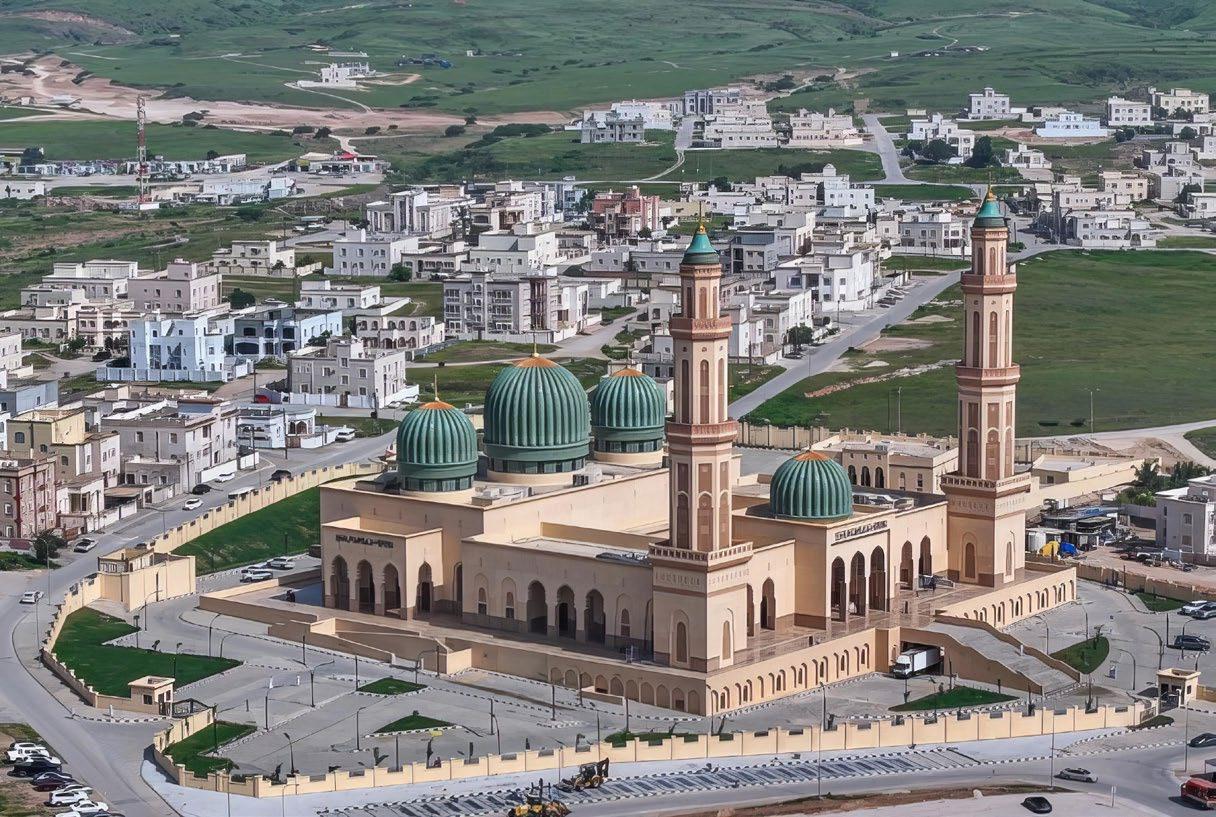
Sheikh Mustahail bin Ahmed Al-Maashani Mosque was inaugurated recently in the Wilayat of Taqah, Dhofar Governorate.
Held under the patronage of His Highness Sayyid Marwan bin Turki Al Said, Governor of Dhofar, the inauguration was marked by Friday prayers led by His Eminence Dr. Sheikh Kahlan bin Nabhan Al Kharousi, Assistant Grand Mufti of the Sultanate of Oman. In his sermon, he underlined the vital role of mosques in strengthening community ties, spreading the message of goodness, and
nurturing younger generations in virtuous values. Covering an area of 9,123 square meters, it can host up to 4,600 worshipers across its main prayer hall, women’s section, and expansive courtyards. It also includes dedicated accommodation for the imam and staff, supported by special endowments to ensure sustainability.
At the heart of the mosque’s cultural mission is its library, housing around 8,000 titles within the “Knowledge Horizons” system. The collection spans religious texts, history, geography, biographies, scientific journals, and children’s literature.
Galfar Engineering and Contracting is positioning itself to be a partner of choice for Vision 2040 initiatives — not only to build infrastructure but to actively enable and partner in shaping the future aspirations of Oman, says CEO, Dr. Hamoud Rashid Al Tobi in an interview with Oommen John
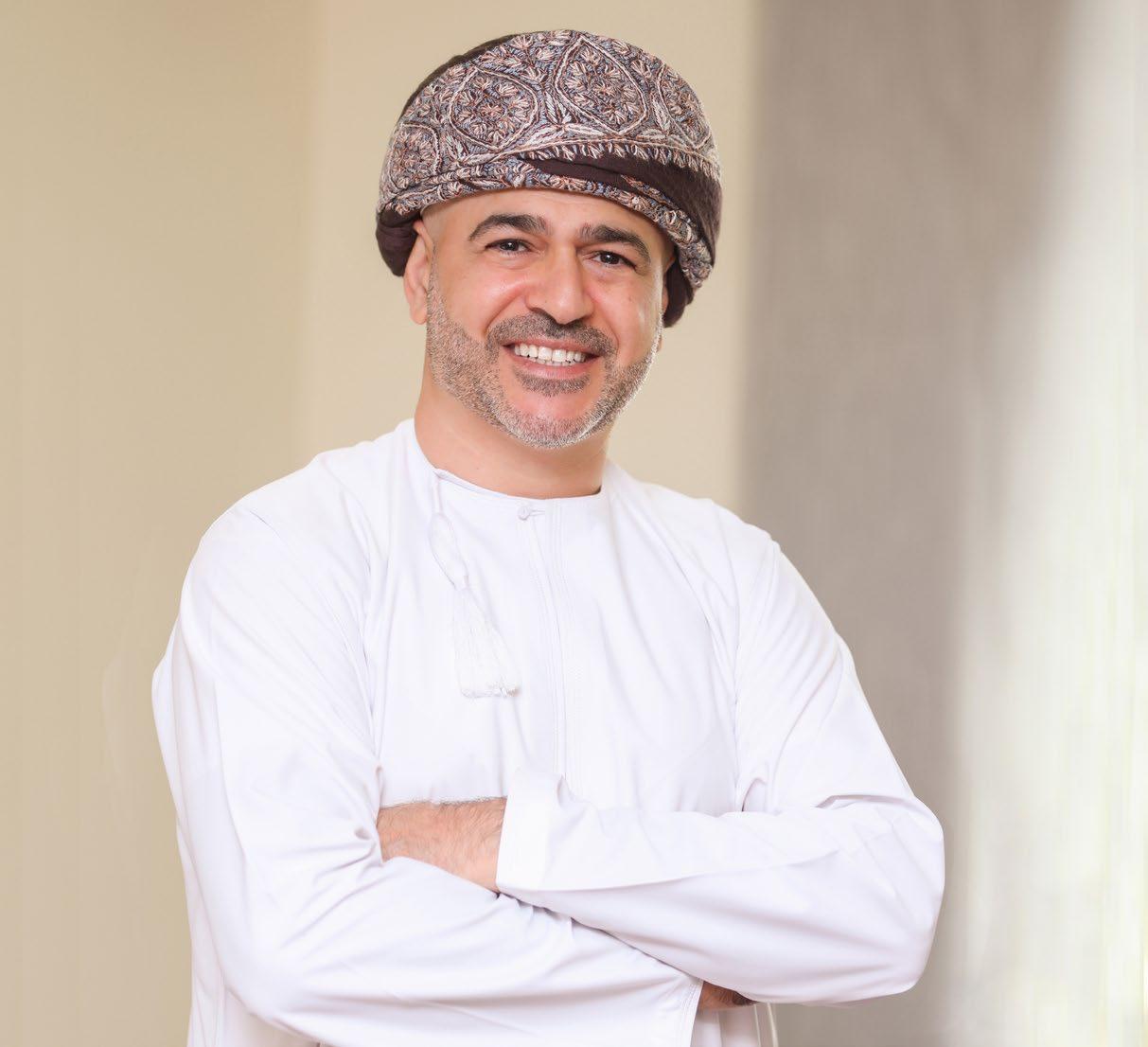
Can you share details of Galfar’s key achievements in the year 2025? How do you plan to maintain the momentum of your record order book growth of RO890mn in 2024 moving forward?
The year 2025 has been a positive one for Galfar, with major milestones achieved across oil & gas, infrastructure, and civil sectors. In parallel, we have strengthened our project governance frameworks and advanced our digitalization platforms, ensuring stronger oversight, efficiency, and transparency across our operations.
Our order book remains robust, driven by disciplined bidding and selective participation in projects that align closely with our core competencies. This strong pipeline provides muchneeded visibility of future revenues and underpins our financial resilience.
To sustain momentum, our focus is twofold: first, on flawless execution and timely delivery of our current projects; and second, on expanding our participation in sectors such as energy transition, utilities, and logistics, which are central to Oman Vision 2040. This combination of disciplined delivery and strategic diversification gives us confidence in maintaining our growth trajectory.
In what ways do you believe existing contracts will further consolidate Galfar’s position in the competitive infrastructure sector?
Our current portfolio includes projects that are not only significant in scale but also strategic in nature. A prime example is the Abu Dhabi–Sohar railway link, which represents Galfar’s first participation in a crossborder rail project and underscores our ability to deliver on complex, transformational infrastructure. Alongside this, the dualisation of key road networks, expansion of water distribution systems, and critical oil and gas infrastructure works reinforce our standing as a reliable national contractor of choice.
We were also honoured to receive the recognition of “Construction Brand
of the Nation” at this year’s Dossier Construction Awards & Summit — a testament to the trust and confidence we have built with our stakeholders. Each successful delivery strengthens our track record and deepens client trust, translating directly into repeat business and preferred bidder status.
Beyond execution, we are embedding stronger project controls, risk management, and sustainability practices, which differentiate us in an increasingly competitive market. Since inception in the early 1970s, Galfar has delivered more than 1,000 projects across diverse sectors, contributing significantly to Oman’s construction landscape and serving as a true partner in the Sultanate’s development journey.
Can you elaborate on potential Public-Private Partnership projects that the company is considering and how they might impact the growth strategy?
Public-Private Partnerships (PPP) represent an exciting and strategic growth avenue for Galfar. We are actively exploring opportunities in sectors we know well — including infrastructure, utilities and housing. By combining our construction expertise with financial and operational partners, we can deliver integrated solutions that create value for both government and society.
These PPPs have the potential to diversify our revenue streams, provide stable long-term returns, and align directly with Oman Vision 2040’s emphasis on greater private sector participation in national development. Importantly, we have already gained experience in this space through our active participation in the last 42 Schools PPP initiative with partners.
While that project was later retracted, it highlighted both the market appetite and the challenges in maturing the PPP model further in the Country. Galfar remains committed to supporting this evolution, and we are well positioned to play a leading role as PPPs become a stronger feature of Oman’s development landscape.
What sustainability practices is the company integrating into the construction of projects?
Sustainability is central to how we operate and we are pleased to have published our first comprehensive ESG report earlier this year. We are adopting environmentally responsible practices such as recycling construction waste, optimising equipment use to reduce emissions, and sourcing materials in ways that minimise ecological impact.
Socially, we are investing in Omanisation, skills development, communities support, and strengthening our local supply chain. On governance, we have reinforced compliance, transparency, and ethical standards through digital tools and strict controls. These initiatives ensure that Galfar’s projects not only meet today’s needs but also contribute positively to the environment and future generations.
What types of projects do you foresee in 2026 as priorities in alignment with Oman Vision 2040, particularly in the realms of education, health, and technology? We anticipate that the Omani market will continue to offer sizable opportunities in 2026 and beyond. For Galfar, these will likely emerge in infrastructure, energy, utilities, residential, tourism, education, and healthcare sectors. Naturally, the dynamics of oil prices will remain a pivotal factor in determining budget availability for capital projects.
We hope to see accelerated investment in social and knowledge-based infrastructure. We also foresee technology-driven projects such as smart campuses, data centres, and logistics hubs that support digital transformation and economic diversification. Galfar’s core strength lies in its ability to deliver complex, multidisciplinary projects. We are positioning ourselves to be a partner of choice for these Vision 2040 initiatives — not only to build infrastructure but to actively enable and partner in shaping the future aspirations of the Country.
As a globally competitive Omani company, Muscat Thread Mill’s core strength is in producing international-quality threads using advanced European technology. We consistently innovate and optimise our production processes to achieve the best balance between quality and cost, says CEO, Mithilesh K Singh in an interview with Oommen John

Can you share details about Muscat Thread Mills and its operations?
Muscat Thread Mills SAOG (MTM) is a trusted and reliable name in the textile industry, renowned as a manufacturer and supplier of sewing and embroidery threads since 1996. Guided by a commitment to ethical business practices, social responsibility, and environmental sustainability, MTM has consistently maintained the highest standards of excellence.
Listed on the Muscat Stock Exchange as a public limited company, MTM operates with an annual production capacity of 4000 tons. The company holds ISO 9001:2015 certification, and its products are certified against STANDARD 100 by OEKO-TEX, Class I, Appendix VI. The company’s product range encompasses all major thread requirements for the apparel industry, including spun polyester, poly-poly core spun thread, poly-cotton core spun thread, textured thread, embroidery thread, and 100 per cent recycled thread. This comprehensive portfolio enables MTM to serve a wide spectrum of customers across global markets.
In addition to our industrial business, we are well-positioned in the local GCC markets, catering to Dishdasha manufacturers through tailors and small-scale producers. Our strong distribution network includes around 300 customers, and we offer specialised products such as small tubes for Dishdasha stitching, embroidery threads, and other supplementary thread requirements.
Further, we supply police and military forces through their own factories or
nominated production units. To support this segment, we have developed a special range of white products designed to meet the diverse shades of white commonly used in Dishdasha garments.
Currently, we actively sell to around 15 countries and maintain offices in India, Pakistan, and Jordan. Additionally, we have a network of agents, distributors and customers across geographies, spanning from Turkey to Egypt, Kenya, Madagascar, Tunisia and GCC.
How does MTM differentiate itself from other global thread suppliers, especially those offering similar products at lower prices?
MTM’s core strength lies in delivering international-quality threads manufactured with advanced European technology. We continuously innovate and optimise our production processes to ensure the best balance of quality and cost. Key differentiators include our ability to customise threads to individual customer requirements and specifications, dedicated technical support and application guidance to improve manufacturing efficiency, and a focus on providing seamless, reliable, and efficient solutions that enhance customer competitiveness.
Our sewing threads are designed with several key features. They offer much better strength compared to competitors, even at a finer thickness. We ensure a clean finish with minimal pilling, maintaining a neat appearance even after multiple washes. Additionally, we provide over 1,200 colours to meet various market needs, particularly focusing on the dominant white shades in the GCC region. While there are small competitors, MTM stands out as the sole manufacturer of sewing threads in the Gulf. As an Omani company competing globally, MTM is committed to maintaining the highest standards in quality and service. We take pride in our contributions to the local economy and our efforts in sustainability, positioning ourselves at the forefront of the textile industry in the Gulf region.
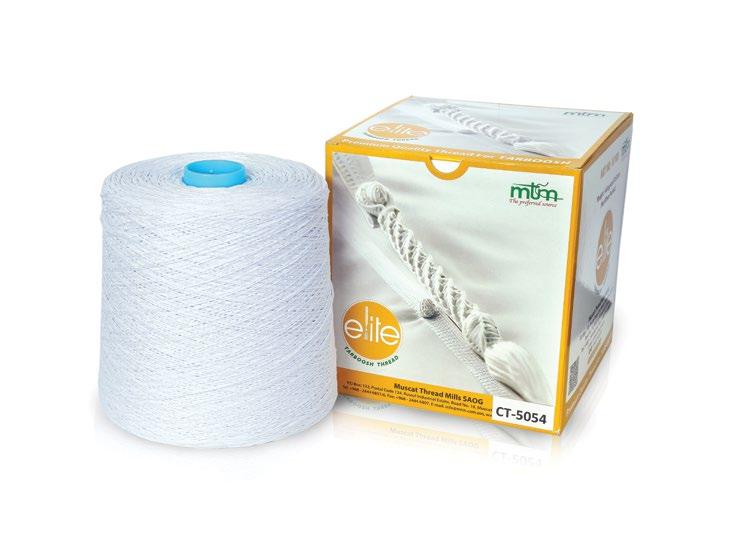
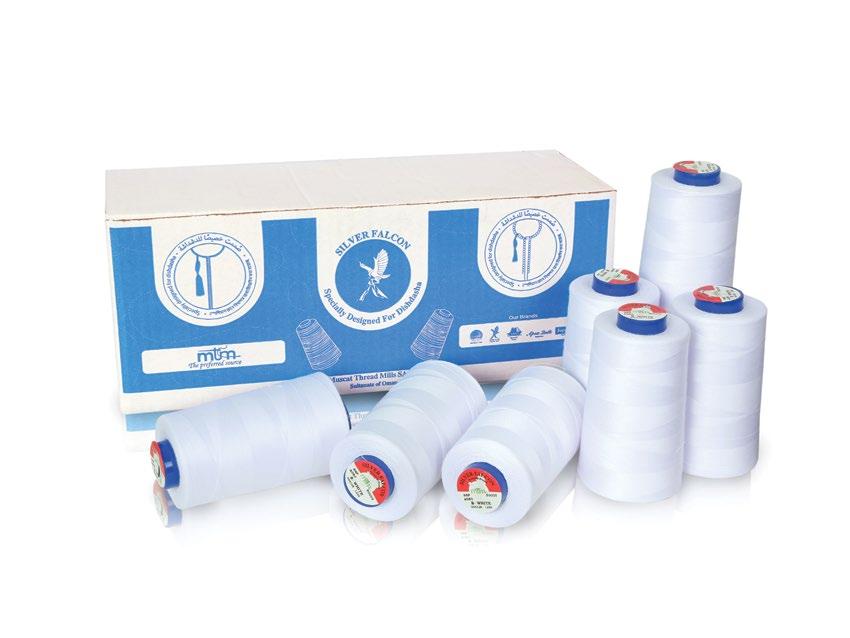
In what ways is MTM adapting to emerging trends in the textile industry, especially regarding demand
MTM has introduced EcoTerra, a 100 per cent recycled premium range of sewing and embroidery threads made from recycled PET bottles. EcoTerra is the first brand in the region to offer a complete range of polyester core spun, spun polyester, and textured polyester threads. Key highlights of EcoTerra include its latest GRS 4.0 certification, the highest STANDARD 100 by OEKOTEX, Class I, Appendix VI certification, and its performance matching that of virgin threads while providing sustainability benefits. The threads are available in MTM’s global colour palette, including dyed-to-match (DTM) options, and are suitable for applications such as fashion apparel, home textiles,
MTM aligns with global sustainability goals and assists customers in achieving their own environmental commitments. In line with global sustainability standards, we have introduced a 100 per cent recycled thread made from PET bottles. This initiative reflects our commitment to environmental responsibility and is certified by the Global Recycle Standards (GRS). MTM takes pride in its commitment to the Omani workforce, with a significant number of employees being local women, especially in the packing section. We prioritise hiring Omanis and have maintained a stable workforce, with many employees having worked with us for over a decade.
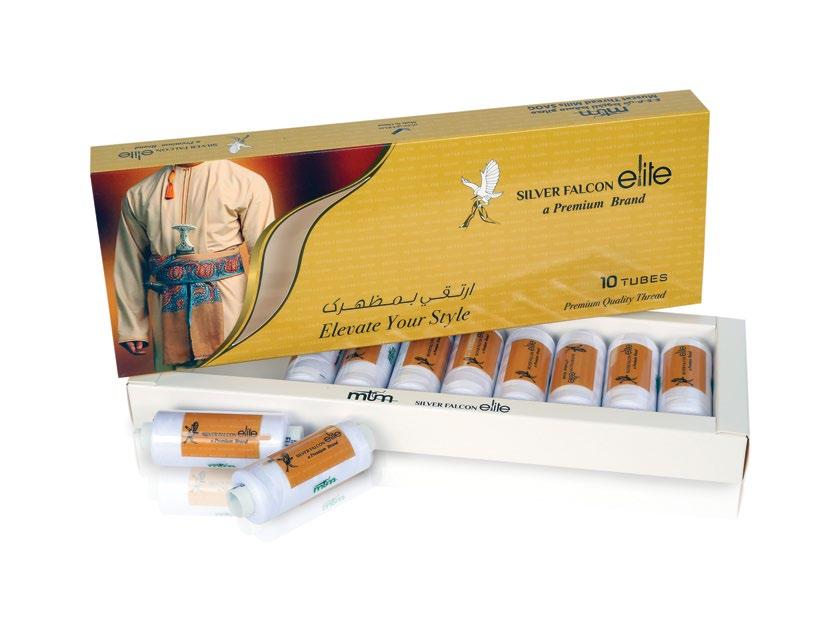
the need for physical samples. This capability enhances our responsiveness to customer needs and streamlines our production processes.
In the wake of fluctuating global economic conditions, what strategies are in place to ensure resilience against potential economic downturns?
What specific innovations has MTM implemented in its production process over the past five years, and how have these innovations impacted overall efficiency and product quality?
MTM has made significant investments in infrastructure and technology to drive efficiency, agility, and quality improvements. Our modern manufacturing facility spans 10000 square meters in Muscat and is supported by an advanced raw material warehouse. The automated colour development centre, equipped with cutting-edge machinery and a library of 60,000 shades, enables the development of new colours within 24 hours, ensuring unmatched responsiveness. Additionally, our advanced dye house
has an annual dyeing capacity of 4,000 tons and consistently achieves a 95 per cent right-first-time (RFT) rate, reflecting strong process control and reliability. Continuous research and development (R&D) initiatives underpin our commitment to delivering threads that meet evolving customer demands with superior performance. These innovations have significantly enhanced both efficiency and product quality, ensuring that MTM remains a competitive global supplier.
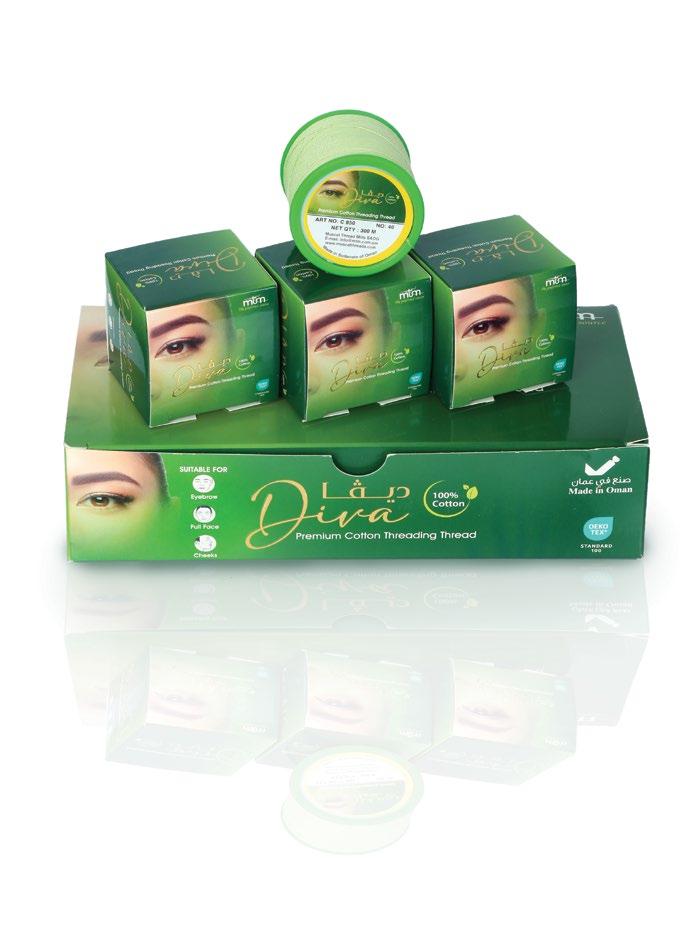
MTM is dedicated to leveraging the best technology available. We have invested in advanced colour matching systems that allow us to efficiently collaborate with clients worldwide, ensuring precise colour reproductions without
MTM has developed a comprehensive resilience strategy to remain stable and customer-focused during global economic uncertainties. This strategy includes market diversification by expanding across multiple regions to reduce reliance on any single market or segment. We have strategically prioritised strengthening our presence in the GCC market with the leadership position thereby reducing potential risks and ensuring long-term sustainability. Our product portfolio expansion focuses on offering specialised and valueadded threads, including recycled and sustainable ranges, to serve diverse industries. In the customised tailoring segment, we have seen significant growth over the last five years. We specialise in producing threads tailored for the national dresses in Gulf countries. Our threads are engineered for specific applications, ensuring high quality and durability.
MTM achieves efficient cost management through lean manufacturing and optimised raw material sourcing. The company’s supplier and inventory strategies foster long-term partnerships and establish strategic buffers to minimise disruptions. We adopt a customercentric approach that prioritises key global customers with dedicated service and consistent supply. Additionally, we leverage sustainability certifications, such as GRS 4.0 and OEKO-TEX, to access premium markets that are less sensitive to price fluctuations. And finally, we employ agility and scenario planning to monitor global textile trends and currency shifts, allowing us to proactively adjust production, pricing, and market strategies. These measures ensure that MTM remains financially stable, operationally agile, and strategically positioned, even during challenging economic cycles.
Vietnam is entering a defining moment in its modern economic history and Analysts project $5–8bn in passive and active foreign inflows immediately after upgrade, with cumulative inflows of $25bn by 2030. With the Vietnam stock market surging and consistently hitting new highs, the question of emerging market and market economy status are important for institutional asset allocators and private clients alike. After decades of export-led industrialisation and rapid growth, the country under the leadership of To Lam, General Secretary of the Communist Party of Vietnam is now pursuing two intertwined milestones: reclassification from frontier market to emerging market in global finance, and full international recognition as a market economy. Together, these advances would boost Vietnam’s integration into the global system, unlock capital flows, and reaffirm its message to the world: “Nothing is Impossible.” The United States dropped more bombs on Vietnam than on Adolf Hitler’s Nazi Germany. USA ambassador Ted Osius, put it best in a classic book by the title of “Nothing Is Impossible.” Nothing Is Impossible: America’s Reconciliation with Vietnam. Global capital & investors could reconcile with Vietnam when the market graduates from frontier market status to EM emerging market status as well as market economy status. Financial markets run on narratives and often need a catalyst for significant “re-rating.” Stefan Zweig opined Brazil is the country of the future and the same might apply to Vietnam stock market and the question of whether it is a frontier or EM emerging market?
The EM upgrade for Vietnam could be a major re-rating but like the future of Brazil it did not arrive in Vietnam yet but seems consistently delayed. But it is a question of when not if. In the beginning of the 90s, the per capita income of Singapore was 125 times higher than Vietnam, now it is 24 times. Thailand used to be 16 times higher than Vietnam, now the figure is 2.5 times. Compared to Japan, the figure
came down from 267 times to 16 times, or the U.S., the figure decreased from 252 times to the current 25 times. Once deadly war enemies Vietnam and the United States are now strategic partners. The Vietnam upgrade from frontier market status has not happened yet but would be a major catalyst for global capital to seek allocation to Vietnam. God’s delays are not necessarily God’s denials, and this most probably applies to the Vietnam EM upgrade too. Liquidity in financial markets can be like a taxi on a rainy New York city night “it disappears just when you need it the most.” Participants in Vietnam financial markets however have pointed out that Vietnam stock market liquidity has grown steadily in the last few years. Vietnam remains a frontier market under both FTSE Russell and MSCI. Despite strong fundamentals and a stock market valued at over $200bn, technical barriers have delayed reclassification.
- FTSE Russell: Vietnam is on its Watch List, with a potential upgrade in autumn 2025 and index inclusion by 2026.
- MSCI: More cautious but could follow once reforms prove durable.
- Capital Inflows: Analysts project $5–8bn in passive and active foreign inflows immediately after upgrade, with cumulative inflows of $25bn by 2030.
Vietnam is still currently classified as a frontier market. The expected upgrade to EM status could lead to a re-rating of Vietnamese assets and result in a profitable investment opportunity. Vietnam’s inclusion into some of the world’s most influential equity indices could deliver a much-deserved boost in terms of interest from investors in the nation’s stock market. This openness to foreign investment will form the biggest impression about Vietnam in investors’ eyes, besides the official market status by MSCI. Capital markets and their
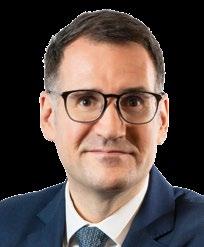
ecosystem grow in cycles of boom & bust and higher medium-term volatility is a sign of a dynamic and free capital market. Vietnam is officially recognised as a market economy by the EU and many Asian partners. However, the United States and several others still classify it as a nonmarket economy, affecting trade defense cases like anti-dumping tariffs.
- Resolution 68 (2024) designates the private sector as the main driver of growth.
- Structural reforms include reducing SOE dominance, opening access to capital and land for private firms, and creating incentives for R&D and high-tech industries.
- Vietnam is actively lobbying for U.S. recognition, highlighting its commitment to WTO principles and transparent economic governance.
Recognition as a market economy would lower trade frictions, especially with the U.S., its top export market. It would also reinforce investor confidence, aligning with the narrative of Vietnam as a trusted, rules-based partner in global supply chains. Vietnam’s ambition to graduate to emerging market status and achieve full market economy recognition represents more than technical reclassification. It is a signal of confidence, resilience, and transformation. The reforms being rolled out in 2025 show a clear intent: to move beyond a low-cost export model and position Vietnam as a dynamic, innovation-led economy.
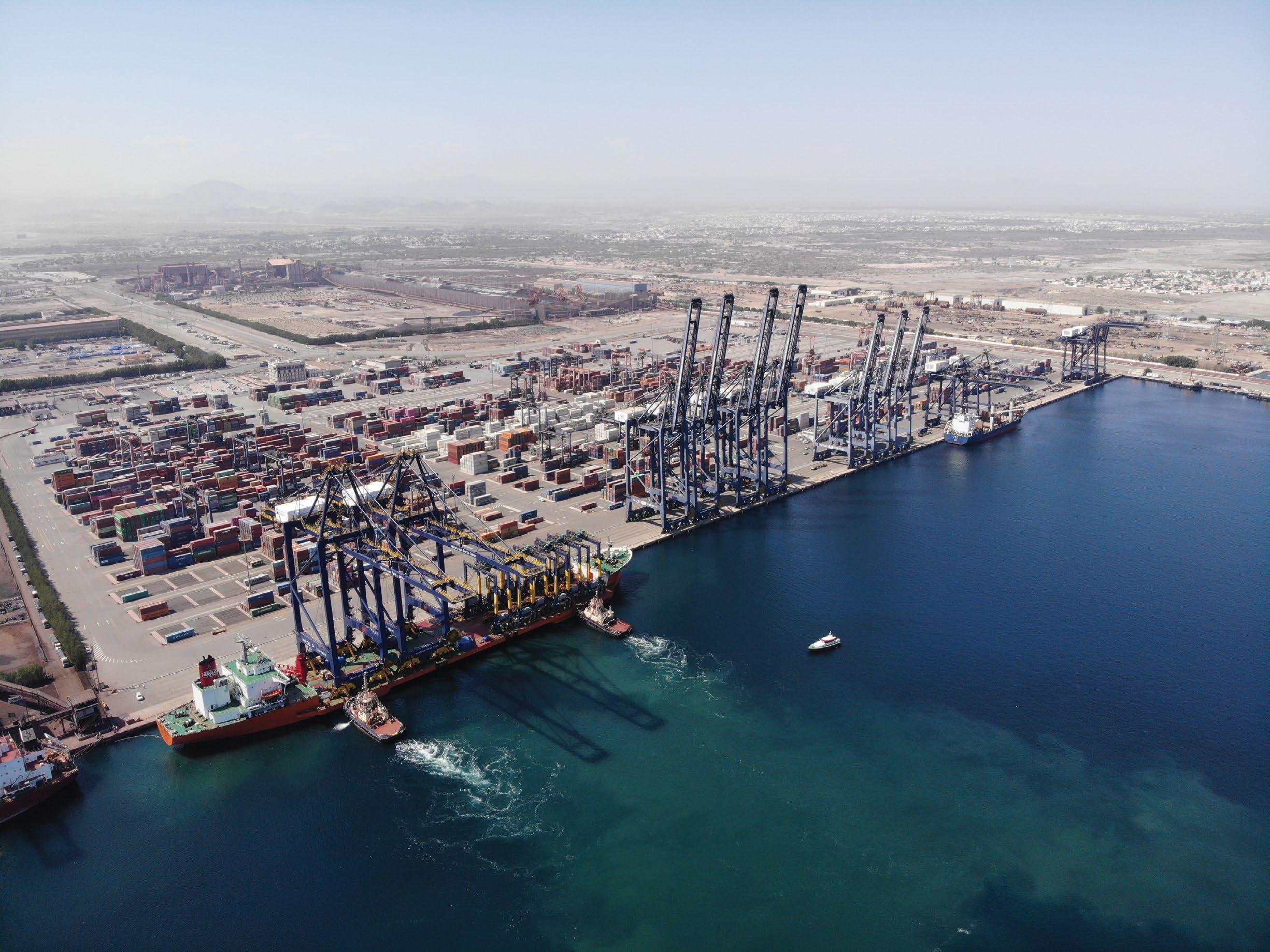
SOHAR Port and Freezone has emerged as one of Oman’s key hubs for linking businesses to international markets, reinforcing the country’s status as a trusted partner in both regional and global supply chains. Current investments in SOHAR surpass $30bn, with over $4bn secured in 2024 alone

SOHAR Port and Freezone has grown into one of Oman’s most dynamic ecosystems for economic diversification, demonstrating how integrated clusters can drive new industries and long-term growth. What began as an industrial gateway has evolved into a hub where metals, petrochemicals, logistics, and food processing come together to form a resilient ecosystem that supports both national development and international trade.
Initially anchored by industries like mineral processing and aluminum,
SOHAR’s industrial canvas has rapidly broadened. Key tenants such as Vale, Jindal Shadeed, and Sohar Aluminium underpin a robust metals ecosystem, while downstream operations in chemicals, manufacturing, and plastics are steadily taking shape. Significantly, SOHAR has added the Food Zone to its portfolio, hosting companies such as Sohar Flour Mills, Oman Sugar Refinery, and Atyab Investments. Together, these firms position the cluster as a cornerstone in Oman’s food security and a reliable base for regional exports. Investments in SOHAR now exceed $30 billion,
with more than $4 billion secured in 2024 alone. Among these are major milestones: a $1.35 billion polysilicon plant—one of the region’s largest— alongside a $1.6 billion solar-powered LNG bunkering terminal and a $600 million iron ore concentration facility. Each highlights the evolving sophistication and ambition driving the hub’s growth. At the same time, SOHAR’s integrated infrastructure strengthens its appeal. The bonded corridor between port and Freezone allows goods to move in under 15 minutes, streamlining operations, enabling just-in-time manufacturing,
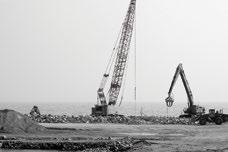
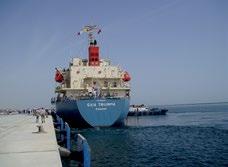

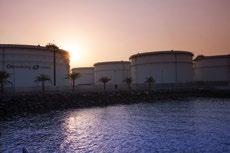
and reinforcing SOHAR’s status as a supply chain powerhouse. Operational performance further underscores this transformation. In 2024, general cargo throughput surged 72 per cent, container volumes rose 15 per cent, and vessel calls exceeded 3,000, reflecting both capacity and demand. With 85 per cent occupancy already achieved in the Freezone, investor confidence remains strong. Growth is supported by digital platforms such as the Marasi Port Management Information System, which enhances efficiency and transparency for maritime stakeholders, and by sustainability-driven investments like solar and hydrogen projects that ensure alignment with Oman Vision 2040’s low-carbon ambitions.
Diversification is not a contingency plan—it is Oman’s blueprint for resilience. SOHAR Port and Freezone captures this narrative in action: a once single-sector port evolving into a multi-cluster, technology-enabled, sustainability-aligned economic
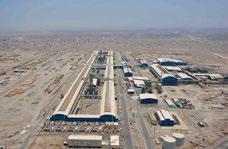
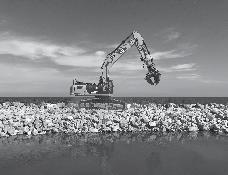
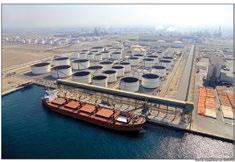

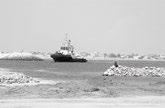
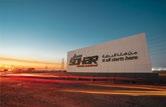
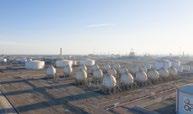
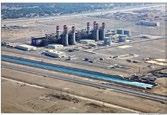
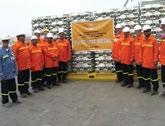

powerhouse. As the nation accelerates toward the goals of Vision 2040, SOHAR stands as both catalyst and symbol - proof that a diversified future is within reach.
In today’s rapidly evolving global economy, industrial growth hinges on agility, intelligence, and forward
thinking. SOHAR Port and Freezone is not just growing—it is reinventing the very mechanisms of industrial progress by embedding innovation at every level, transforming Oman’s logistics and trade landscape.
At the heart of this transformation stands Marasi, a cutting-edge Port Management Information System launched in early 2025. Through realtime berth planning, digital licensing,


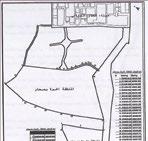











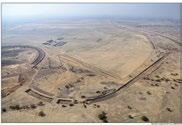
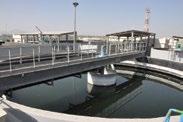
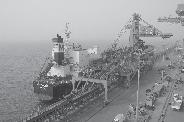
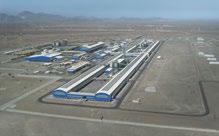
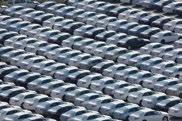


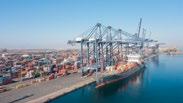
mobile apps for marine pilots, and automated environmental reporting, Marasi has reduced vessel turnaround time by approximately 15 per cent, while slashing printed documentation by 90 per cent. Moreover, the system boasts an 85 per cent user satisfaction rate, signaling strong adoption and confidence in this digital leap.
Another solution that putting SOHAR at the forefront is NAVI, the AI-powered chatbot integrated into the SOHAR Port & Freezone website. This virtual assistant expertly handles visitor and investor inquiries in real-time, guiding users through facility details, licensing procedures, and operational FAQs. Serving as a one-stop digital concierge, NAVI eliminates unnecessary waiting times and streamlines the user experience—making engagement smarter and more intuitive.
Another powerful asset is Routescanner, a global route-planning tool that helps logistics operators plot the most efficient connections to and


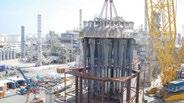
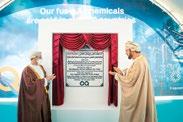
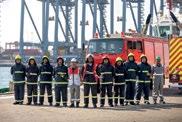
from SOHAR. Users can effortlessly compare door-to-door routes— including maritime, road, and rail—with key metrics such as transit time and CO₂ emissions. A standout feature, “SOHAR Direct Connections,” delivers a single-click overview of all direct links via SOHAR, helping businesses plan strategically with sustainability and supply-chain optimization in mind.
On the ground, innovation is equally tangible. SOHAR has introduced drone-based monitoring to inspect infrastructure swiftly and safely. It is also piloting predictive analytics— tools that anticipate cargo demands and resource allocation before bottlenecks occur. These innovations are not experiments; they are strategic differentiators embedded into SOHAR’s operational culture.
The impact resonates across the board. Digital systems like NAVI and Routescanner empower users with self-service accessibility. Marasi
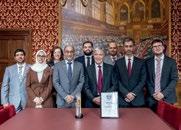
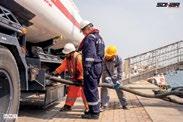
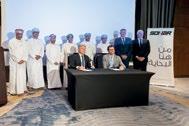













elevates operational output even under pressure by smoothing the flow of maritime traffic and paperwork. Drones and AI guard reliability and science-based efficiency. Together, these technologies work in harmony to make SOHAR not just a functional port, but an intelligent port. In a global context where efficiency, innovation remains its core strategy, powering all operations from front-end user experience to behind-the-scenes logistics orchestration. As Vision 2040 unfolds, SOHAR continues to lead not just in capacity or scale, but in embracing technologies that futureproof Oman’s industrial growth.
SOHAR Port and Freezone has grown into one of Oman’s most important platforms for connecting businesses with international markets while supporting the country’s role as a trusted partner in regional and global supply chains.
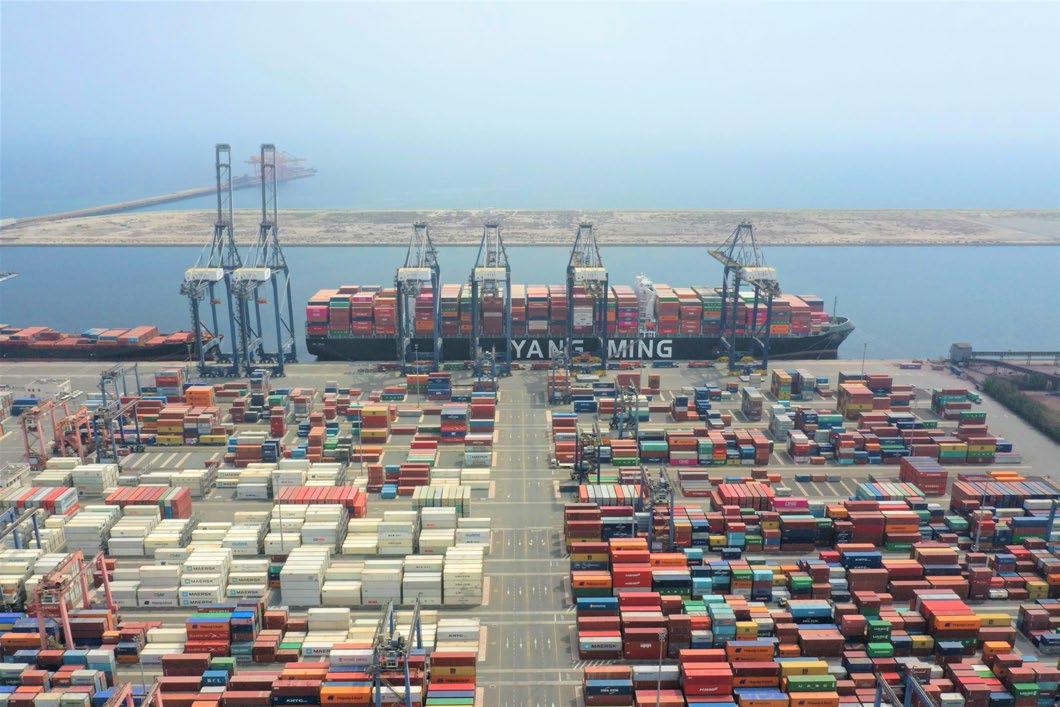
Its strategic location, outside the Strait of Hormuz on established maritime routes, has long been a geographic advantage. But what distinguishes SOHAR today is how it has transformed this advantage into a seamless logistics ecosystem. The port and Freezone operate as one integrated platform, enabling manufacturers, shipping lines, and logistics companies to move goods quickly and efficiently between quayside and industrial clusters. This model reduces cost, accelerates production cycles, and creates the certainty that international businesses demand.
Digital tools are reinforcing this advantage. With Routescanner, businesses can explore direct global connections from SOHAR and compare routes by time and environmental impact, while NAVI, the AI-powered assistant, gives tenants and partners instant access to operational information. The recently launched Marasi system has already improved
the way vessels are scheduled and serviced, making port operations more transparent and efficient. Together, these innovations make SOHAR not just a port, but a smart logistics hub that anticipates customer needs.
For Oman, SOHAR is the primary gateway for imports and re-exports, supporting national supply chains and driving industrial clusters in metals, petrochemicals, food, and logistics. For the Gulf region, it offers a strategic alternative that connects seamlessly to road networks and, in the near future, the Oman–UAE railway, which will extend SOHAR’s reach deeper into the GCC. For global partners, it is a node that balances scale with reliability, an increasingly rare combination.
As the world moves toward more sustainable and digitized trade, SOHAR is positioning itself to lead that shift. Future projects in LNG bunkering, hydrogen, and renewable-powered infrastructure will make logistics
not only faster and more reliable, but also cleaner. With its blend of strategic location, smart systems, and sustainable ambition, SOHAR is proving that connecting the world can also mean securing a better future.
In this journey, SOHAR’s role is reinforced by strong collaboration with ASYAD Group, Oman’s global integrated logistics provider. ASYAD’s extensive network of shipping lines, warehousing, and transport services complements SOHAR’s infrastructure, ensuring end-to-end connectivity for cargo moving in and out of the Sultanate. This partnership creates seamless multimodal solutions that extend SOHAR’s reach into regional and international markets, while also supporting Oman’s ambition to become a logistics leader under Vision 2040.
From Port to Plate: The Rise of SOHAR Food Zone
Food and agribusiness are increasingly recognized as priority sectors for
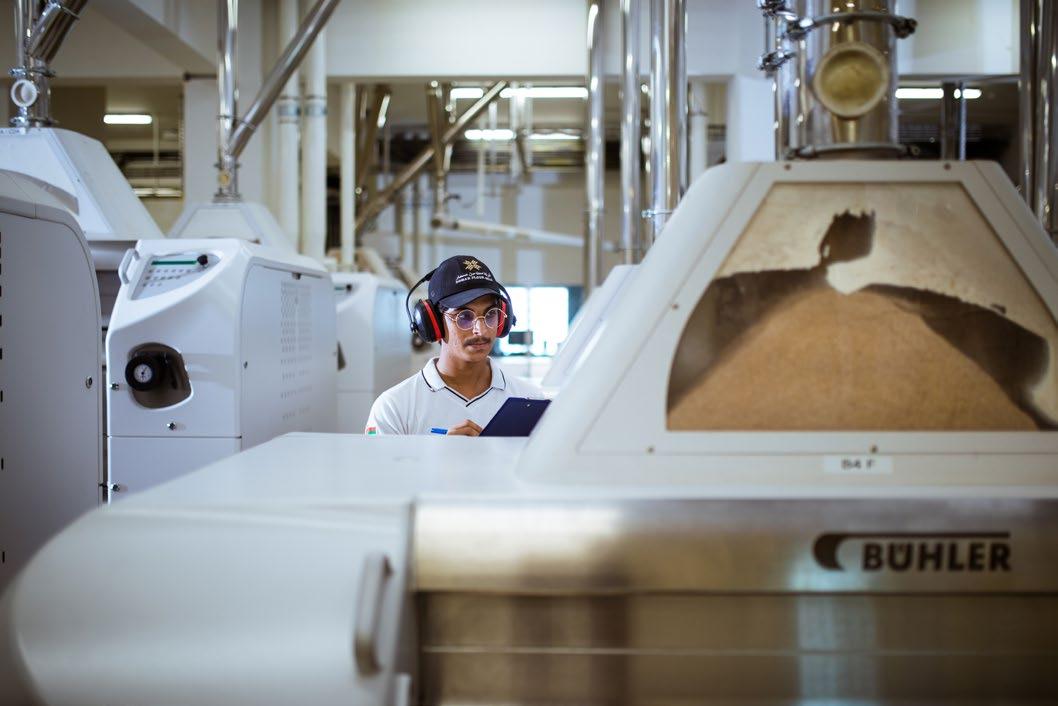
sustainable growth and reliable supply chains. With rising demand in regional markets, companies are seeking efficient hubs where products can be stored, processed, and distributed with speed and consistency. In Oman, SOHAR Port and Freezone has responded to this need through the development of its Food Zone, a growing cluster that serves as a platform for agro-industrial investment and regional food logistics.
The Food Zone is designed to integrate infrastructure, processing, and distribution in one location. Connected directly to the port’s agro-bulk terminal, it allows commodities like grain and sugar to be discharged, processed, and transported with minimal delay. Major companies already operating here include Sohar Flour Mills, Oman Sugar Refinery, and Atyab Investments, supported by modern cold storage and packaging facilities. Together, they create a reliable ecosystem that strengthens
both national food supply and Oman’s role as a regional hub.
Companies benefit not only from infrastructure but also from the simplified regulatory processes of the Freezone. Licensing and approvals are streamlined, while proximity to suppliers and distributors shortens supply chains and lowers operational costs. This creates an environment where businesses can operate with confidence, expand capacity, and tap into regional markets more efficiently.
The Food Zone also contributes to Oman’s long-term priorities. By anchoring food processing and packaging activities inside the Sultanate, it reduces reliance on extended supply lines and provides a platform for SMEs and service providers to grow. Employment opportunities extend beyond core operations to packaging, logistics, and maintenance—creating value for both investors and communities.
Looking ahead, new facilities are planned to expand cold storage capacity and agro-processing, positioning SOHAR as a hub for valueadded exports. The rise of SOHAR’s Food Zone tells a larger story of how ports and Freezones can evolve beyond their traditional roles. Here, logistics is not just about moving containers, but about creating integrated clusters that support national strategies, regional needs, and global ambitions. From port to plate, SOHAR is ensuring that Oman’s role in food logistics is secure, strategic, and future-ready.
Every successful port and industrial hub depends not only on infrastructure but also on people. At SOHAR Port and Freezone, this belief shapes a comprehensive approach to human capital development that ensures economic growth is matched by opportunities for the local workforce.
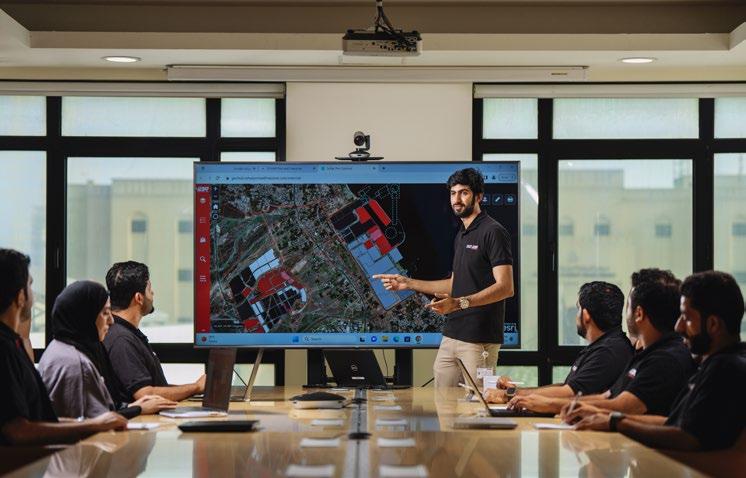
The results speak clearly. SOHAR Port and Freezone company has achieved a 94 per cent Omanisation level, a figure that underscores its longterm commitment to empowering national talent. More than 42,000 jobs have been created through the ecosystem, providing opportunities across industries and skill levels. Female participation has also grown, with a 26 per cent increase in female employment over the past five years—a reflection of SOHAR’s efforts to foster diversity and inclusion across its operations and tenant base.
Training programs and partnerships with educational institutions ensure that employees are equipped with the latest expertise in logistics, engineering, sustainability, and digital operations. Initiatives like the Maseer youth development program give young professionals exposure to realworld business environments, while targeted technical training ensures that Omanis can take on specialized roles in an increasingly digitalized industry.
Diversity and inclusion are also central. Through the Sidrah platform, SOHAR supports women in logistics and industry, providing opportunities for career growth and leadership. Female professionals are contributing to commercial, technical, and sustainability functions, helping to shape the future direction of the organization.
This people-first strategy delivers benefits far beyond the port gates. By nurturing a skilled, motivated workforce, SOHAR strengthens the long-term competitiveness of Oman’s economy and contributes to Vision 2040’s goal of building a knowledgebased society. For international partners and investors, it sends a clear signal: Oman is not only a place to do business, but also a place where talent is growing, thriving, and ready to support industrial ambitions. As SOHAR continues to expand with new projects in energy, logistics, and industry, its human capital strategy remains a defining feature of its success. By aligning opportunity with growth, SOHAR ensures that global impact is matched with local benefit—
demonstrating that people are the true drivers of progress.
The Future is Now: Megaprojects Shaping SOHAR’s Landscape
SOHAR Port and Freezone has always been a story of growth, but the next chapter is being defined by a wave of megaprojects that will reshape its role in regional trade and industry. These developments are more than expansions of capacity; they are strategic investments that align with global trends in clean energy, technology, and advanced manufacturing, ensuring SOHAR remains a future-ready hub for decades to come.
Among the most significant is the Marsa LNG project, which positions SOHAR as a center for sustainable energy. By developing one of the region’s most advanced liquefied natural gas facilities, Oman is taking a decisive step toward diversifying its energy portfolio while meeting international demand for cleaner fuels. The project will also create synergies with SOHAR’s marine services, opening new opportunities in bunkering and maritime energy supply.
In parallel, the polysilicon manufacturing facility under development in the Freezone represents a breakthrough for renewable industries. With an investment exceeding one billion
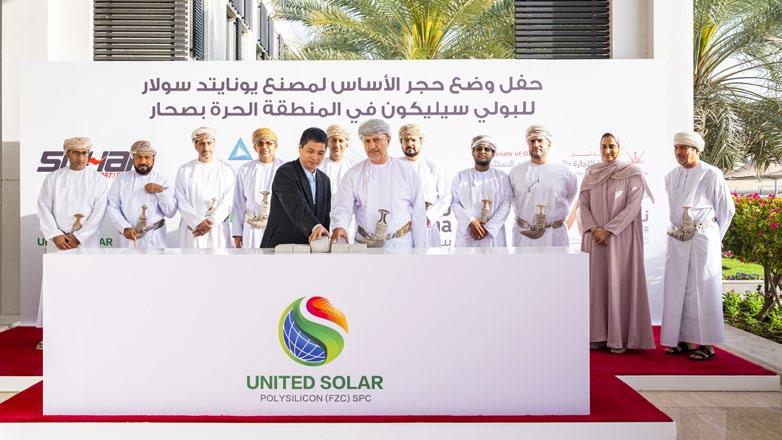
dollars, it will serve as one of the largest producers of polysilicon in the Middle East, providing raw materials essential for solar panel manufacturing. This not only strengthens Oman’s renewable energy sector but also connects SOHAR to global clean technology supply chains. At the same time, regional connectivity projects such as the Oman–UAE railway link will provide SOHAR with an unrivalled multimodal advantage, enabling cargo to move efficiently between sea, rail, and road across the GCC.
These megaprojects are not isolated investments—they form part of a larger strategy that brings together energy, industry, and logistics into one interconnected ecosystem. Each project attracts global partners, creates local opportunities, and strengthens Oman’s integration into international supply chains. For tenants, it means new possibilities to scale their operations; for investors, it signals stability and growth; and for communities, it brings jobs, skills, and long-term development.
The momentum reflects a clear alignment with Oman Vision 2040. By prioritizing diversification, sustainability, and industrial competitiveness, the Sultanate is ensuring that its future economy is anchored in more than hydrocarbons. SOHAR, through these projects, is delivering on that ambition—turning policy into infrastructure, and strategy into tangible results.
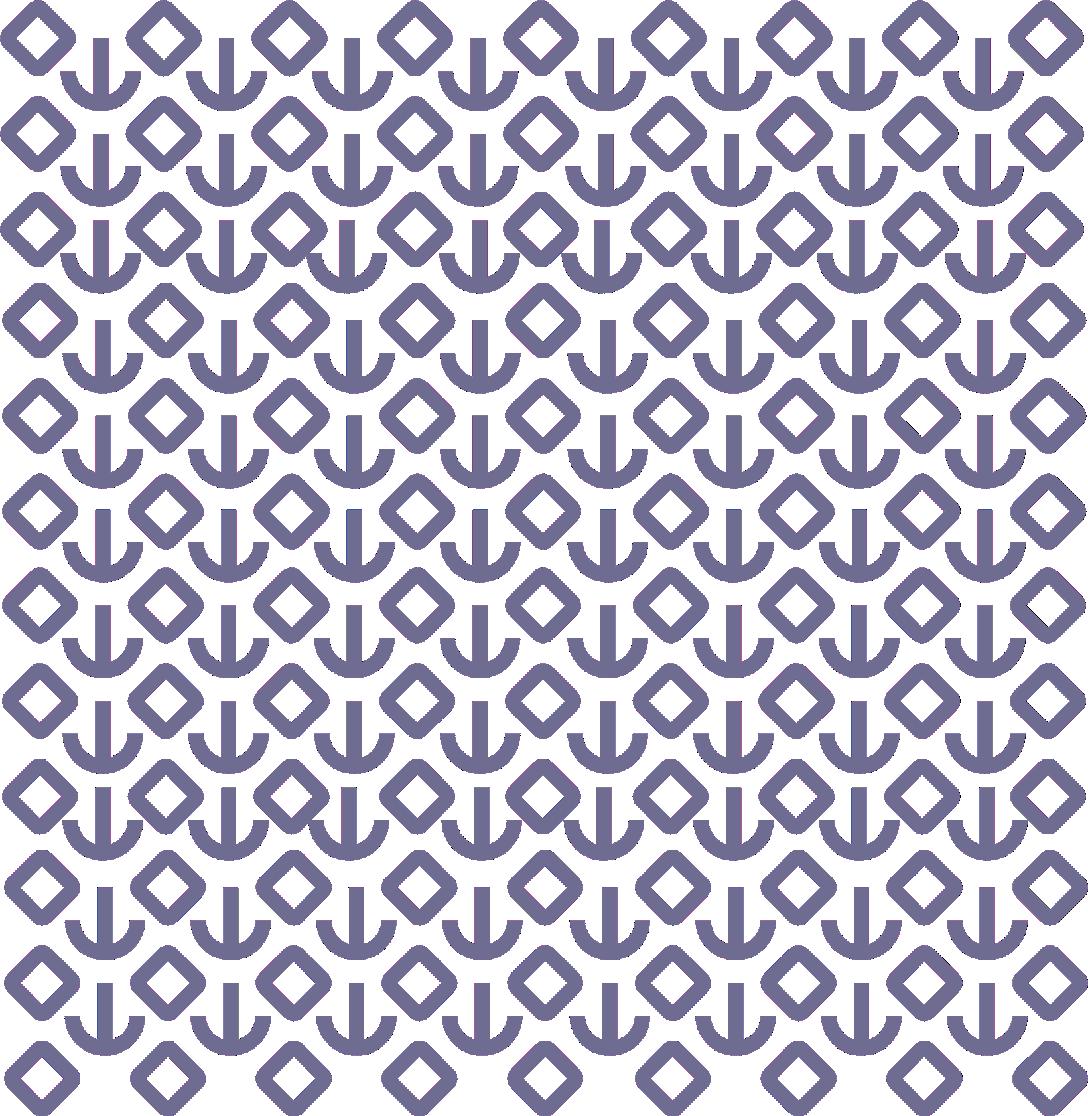
Oman’s Vision 2040 sets out a bold roadmap for economic diversification, sustainability, and global competitiveness. At the heart of this journey is SOHAR Port and Freezone, a platform where national ambition meets international opportunity. Over the past two decades, SOHAR has evolved from a strategic location on global shipping lanes into one of the region’s most dynamic industrial and logistics ecosystems. The next stage of its journey is about aligning this
SOHAR’s contribution to the national economy is already well established. With investments exceeding 30 billion dollars and trade flows representing more than a third of Oman’s total, the hub plays a central role in connecting the country to global markets. But Vision 2040 demands more than numbers. It calls for building industries that are sustainable, fostering knowledge and innovation, and ensuring that growth creates opportunities for people as well as businesses.
industries alongside renewable energy and clean technology, the Port and Freezone provide a platform that is diverse, resilient, and futureready. Each cluster strengthens the others, creating synergies that multiply economic impact while reducing reliance on any single sector. Sustainability is a defining feature of this vision. Projects in LNG bunkering, solar power, and green hydrogen are ensuring that growth at SOHAR aligns with global commitments to net zero and clean energy. Circular economy
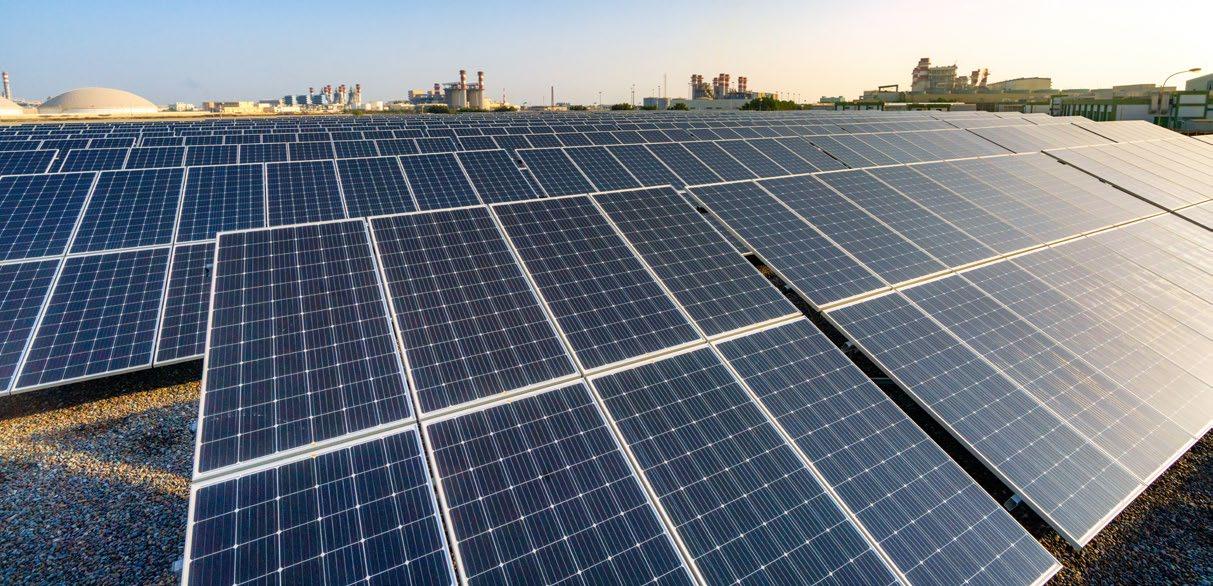
initiatives, waste-to-value programs, and energy-efficient facilities are embedding environmental responsibility into the DNA of the hub.
Equally important is the focus on people. SOHAR Port and Freezone company has achieved a 94 per cent Omanisation level, while female participation has seen a 26 per cent increase over five years, reflecting steady progress in building an inclusive workforce. Initiatives such as Maseer for youth and Sidrah for women’s empowerment highlight how Vision 2040 is being translated into real opportunities for citizens, ensuring that economic progress is matched by social development. The years ahead will bring new milestones: the completion of SOHAR Port South, expansion of the Freezone by hundreds of hectares, and closer integration with regional trade corridors through the Oman–UAE railway. Each project moves SOHAR closer to fulfilling its role as a global logistics and industrial hub, while also ensuring that Oman remains at the center of regional economic flows.
SOHAR 2040 is more than a strategic
plan—it is a commitment to building a hub that reflects the values of Vision 2040: diversification, sustainability, innovation, and inclusivity. By aligning global trade with national priorities, SOHAR is shaping a future where Oman is not just connected to the world, but actively helping lead it.
Sustainability is no longer an option in global trade and industry; it is a defining standard. For SOHAR Port and Freezone, this principle is embedded in strategy and operations, guiding the way new projects are designed, how tenants are supported, and how the hub positions itself in a rapidly changing world. From clean energy initiatives to collaborative platforms like the SOHAR Net Zero Alliance, SOHAR is embedding environmental strategy into its operational DNA.
Launched in 2024, the SOHAR Net Zero Alliance (SNZA) brings together port leadership and industrial partners—such as OQ, Vale, Sohar Aluminium, Jindal Shadeed, and others—to coordinate a united decarbonization agenda. This
collaboration area focuses on lowcarbon technologies, renewable energy, shared R&D, circular economy solutions, and transparent emissions baselining. Its alignment with Oman’s Net Zero 2050 vision and recognition by key national entities reinforce SOHAR’s role as both a regional climate pioneer and an industrial standard-bearer.
But sustainability here is not just a framework—it is real infrastructure. SOHAR is advancing one of the region’s first LNG bunkering facilities, offering cleaner fuel options to shipping operators. At the same time, the polysilicon plant under development positions SOHAR as a critical supplier in the renewable energy ecosystem—bolstering global solar supply chains with locally anchored manufacturing.
The focus on environmental responsibility extends even deeper. Recycling, waste-to-value initiatives, and water and energy efficiency measures are all part of a broader shift toward circularity in operations. Digital tools such as the Marasi port-management system minimise
paperwork and streamline processes, lowering administrative waste while reinforcing transparency across marine operations. Membership in the Alliance for Industry Decarbonisation (AFID) enhances SOHAR’s ability to cooperate with broader industrial partners on green hydrogen, solar integration, and sustainable production. This furthers its environmental agenda while strengthening relationships with investors focused on ESG credentials.
Together, these initiatives reflect a core principle: that sustainable growth is not just a policy objective but a competitive advantage. As SOHAR develops further by expanding green infrastructure, digitalising systems, and anchoring climate action in its strategy, it is energising investor confidence and setting a regional benchmark for responsible industrial development. In a world where investment is increasingly tied to environmental integrity, SOHAR Port and Freezone stands out—not only for what it builds, but how it builds. Through alliances, clean-energy projects, and circular approaches, it is showing that sustainable progress is both possible and profitable.
Beyond cranes, terminals, and industrial clusters, SOHAR Port and Freezone is also about people. Its growth story has always been tied to the communities around it, and the
responsibility to ensure that economic success translates into shared benefit has become a defining part of SOHAR’s identity. Corporate Social Responsibility at SOHAR is not treated as a side activity but as a central commitment woven into its strategy.
The port and Freezone actively support initiatives that empower young people, foster local talent, and create opportunities for small and medium enterprises. From training programs to community partnerships, these efforts ensure that growth reaches beyond the gates and into the lives of people in North Al Batinah and beyond.
One of the most visible initiatives is Maseer, a program dedicated to youth development. Through mentorship, training, and hands-on experience, Maseer gives young Omanis the skills and exposure they need to build careers in logistics, engineering, and industry. For many, it represents a first step into the professional world, connecting academic learning with real business practice.
Support for small and medium enterprises has been another consistent focus. SMEs form a vital part of the ecosystem, supplying services, maintenance, and logistics solutions to larger tenants. SOHAR’s programs provide these businesses with access to opportunities, capacity-building support, and platforms to showcase their capabilities, ensuring that local
enterprise remains a key beneficiary of international investment.
Equally important are SOHAR’s contributions to education, health, and community well-being. Sponsorships, awareness campaigns, and partnerships with schools and institutions all form part of a CSR agenda that is practical, impactful, and responsive to local needs. Whether through environmental awareness initiatives, volunteer drives, or direct community support, SOHAR demonstrates a clear commitment to the people who live and work around its operations.
What makes these initiatives effective is not their scale but their integration into SOHAR’s overall purpose. They are not standalone projects; they are part of a vision that sees growth and responsibility as inseparable. By aligning its CSR agenda with Oman Vision 2040, SOHAR ensures that its community contributions complement national goals in education, youth empowerment, and social inclusion.
As SOHAR continues to expand, so too does its role as a community partner. Every new project, every new tenant, creates opportunities not only for global trade but also for local people. The promise is clear: as SOHAR connects the world, it will continue to stay connected to the community it calls home.
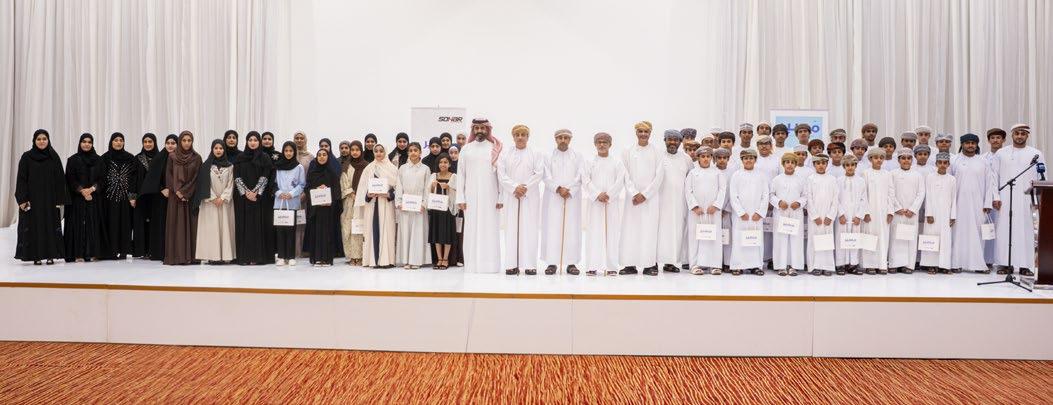
Through local procurement, workforce empowerment, and focused skills development, SOHAR is fulfilling the Vision 2040 goals for diversification and inclusive growth, ensuring that every dollar invested generates lasting value for the people, economy, and future of Oman, says Emile Hoogsteden, CEO, SOHAR Port in an interview
What major infrastructure development projects have recently been completed at SOHAR Port, and how do they support Oman’s broader economic diversification goals?
At SOHAR, our recent infrastructure developments are a direct reflection of the confidence global partners place in our capabilities and our role in Oman’s economic transformation. The development of the MARSA LNG factory and jetty is a landmark achievement that strengthens Oman’s strategic position in global energy trade and enables us to support one of the region’s first solar-powered LNG bunkering. The project is running smoothly, in the first half of the year the huge dredging operation was concluded within time and budget. This milestone reinforces our ability to deliver on complex, largescale projects and highlights the value of our world-class infrastructure and strategic location.
At the same time, we have invested heavily in deepening basins, reinforcing quay walls, and upgrading cargo handling systems to increase efficiency and support the 34 million metric tons of cargo handled in the first half of 2025. These developments ensure that SOHAR remains competitive on the global stage by boosting operational resilience and turnaround speed. It also embodies our long-term vision to align infrastructure expansion with Oman’s diversification goals, attract high-quality investments, and provide sustainable value for our stakeholders while positioning SOHAR as a future-
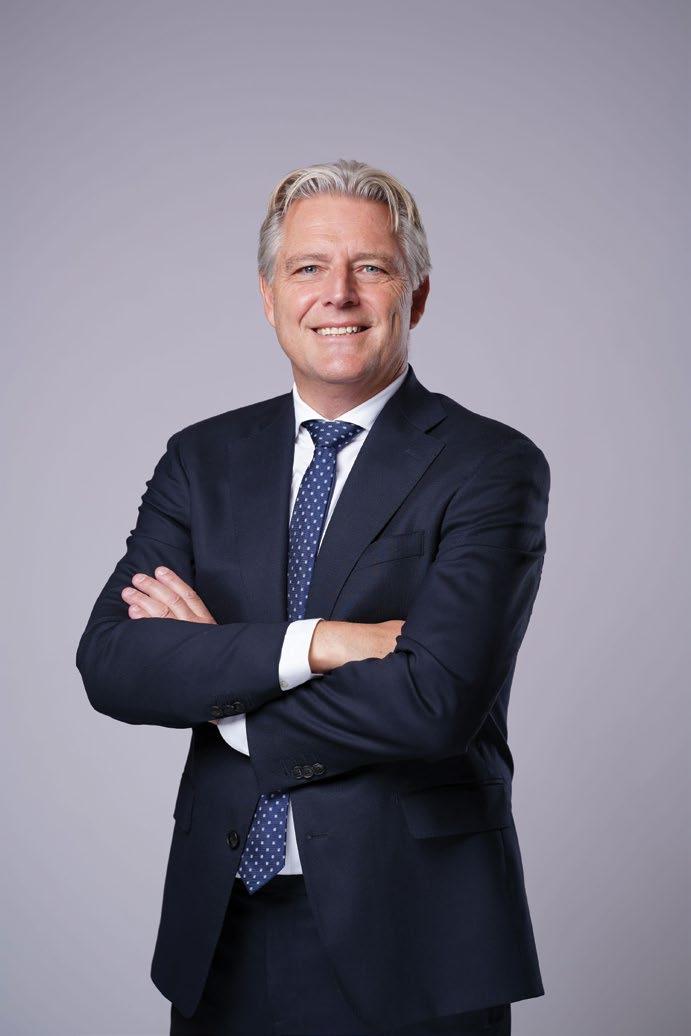
the way. Furthermore, we work closely with government stakeholders and With total investments reaching
$30bn, how does SOHAR Port ensure the long-term sustainability of these investments, particularly amid global economic uncertainties?
Long-term sustainability comes from a balanced strategy of diversification, digitalisation, and resilience planning. Our tenants span critical sectors like metals, petrochemicals, logistics, and increasingly, renewable energy, thereby ensuring no over reliance on a single industry. We focus on high-quality investors, who will strengthen the whole logistics and industrial complex.
Digitalisation and Energy transition are two important pillars of our longterm strategy. Digital platforms like Marasi Port Management Information System have cut vessel turnaround times and improved transparency, giving our partners confidence in operational efficiency even during global disruptions. Finally, we invest in climate-aligned infrastructure such as polysilicon manufacturing and green fuel projects, which align with the global decarbonisation agenda, strengthening SOHAR’s long-term competitiveness.
How is SOHAR Port addressing the skills gap in the local labour market to equip the workforce for the high-tech jobs created by these new projects?
People are central to our success. Today, SOHAR Port and Freezone company has achieved a remarkable 94 per cent Omanisation rate, one of the highest in the sector. This is complemented by a 26 per cent increase in female employment over the past five years, reflecting our commitment to inclusivity and diversity.
Equally important is ensuring that our workforce remains futureready. Through targeted training programs and continuous professional development, we equip our people with the skills required to manage advanced technologies in port operations, digital platforms, and sustainability projects. From specialized programs in digital logistics and automation to safety and engineering certifications, we ensure our teams remain up to date with the latest industry standards.
This proactive approach means that at SOHAR, there is no skills gap, our people are prepared, adaptive, and capable of handling the requirements of a rapidly evolving sector. Initiatives such as Maseer youth development and partnerships with educational institutions also ensure a pipeline of young Omani talent ready to step into high-tech roles. By aligning opportunity with growth, we are building a workforce that can lead Oman’s logistics and industrial transformation.
How is SOHAR Port interacting with the local community to ensure that the advantages of these developments extend beyond just economic indicators?
Our impact is measured not only in cargo volumes but also in the lives we touch. In the first half of 2025 alone, CSR initiatives in education, healthcare, and social development reached more than 3,400 people in North Al Batinah. We actively support SMEs by awarding 62 per cent of local purchase orders to Omani companies, ensuring that local businesses benefit directly from SOHAR’s growth.
Community partnerships, school programs, and health initiatives form an integral part of our agenda, ensuring that development is inclusive and sustainable, in line with Oman Vision 2040’s social well-being pillar. Moreover, we are a job-engine for the region. To date, 42,000 jobs have been created and the number will grow further.
Can you provide details on the strategies SOHAR Port is using to enhance In-Country Value and promote Omanisation?
Enhancing In-Country Value (ICV) is not just a target for SOHAR, it is a core principle embedded across our strategy. In the first half of 2025 alone, 96 per cent of our supplier spend went to Omani companies, an increase from 91 per cent the year before. This growth reflects our deliberate efforts to strengthen local supply chains, integrate SMEs, and create a supportive environment where local contractors can thrive alongside global partners.
We actively design procurement policies that prioritize Omani companies, ensuring that the economic impact of international investments is felt directly by local enterprises.
On the human capital side, SOHAR has achieved a remarkable 94 per cent Omanisation rate—one of the highest across the region’s industrial hubs. But our commitment goes beyond numbers. We are continuously training and upskilling our people to stay ahead of new technologies in logistics, engineering, and automation, ensuring there is no skills gap between the demands of global industry and the capabilities of our workforce.
Two flagship initiatives illustrate this commitment:
• Maseer, our youth development program, which equips young Omanis with practical experience and mentorship to prepare them for careers in logistics and industry.
• The Youth Camp in Supply Chain and Logistics Management, launched by SOHAR, which raises awareness of opportunities in these sectors and equips young people with the knowledge and exposure needed to enter the workforce. The camp has been instrumental in inspiring the next generation while bridging the gap between academic learning and the practical demands of industry.
We also work closely with universities, technical colleges, and training institutes to align educational pathways with industry requirements, creating a robust pipeline of skilled talent ready to support SOHAR’s growth. This approach not only strengthens our competitiveness but also ensures that Omanis are leading the transformation of SOHAR into a smart, sustainable, and globally connected hub. By combining local procurement, workforce empowerment, and targeted skills development, SOHAR is delivering on Vision 2040’s priorities for diversification and inclusive growth, making sure that every dollar invested creates enduring value for Oman’s people, economy, and future.
SOHAR Freezone has embarked on a landmark expansion with the development of 670 hectares under Phase 2. This is the first and most ambitious growth stage since the Freezone’s establishment, says Mohammed Al Shizawi, Acting CEO, SOHAR Freezone in an interview
Can you share details on the achievements of SOHAR Freezone in the past year and the future plans that is expected to take place in the remainder of the year?
The past year has been one of the most dynamic in SOHAR Freezone’s journey, marked by both strong investment inflows and expansion of our industrial base. On the investment front, the Freezone secured five agreements covering more than 92 hectares of land and attracting over $1.2bn in projects. These span across green manufacturing, energy, and logistics, creating new synergies within our ecosystem and positioning SOHAR as a hub for sustainable, future-oriented industries.
Complementing these commitments, we have embarked on a landmark expansion with the development of 670 hectares under Phase 2. This is the first and most ambitious growth stage since the Freezone’s establishment. The milestone significantly increases our capacity, creating space for new clusters and diversifying our tenant mix. With occupancy across the Freezone already reaching 66 percent, the momentum demonstrates strong investor trust in our proposition and confidence in SOHAR’s role as a pivotal regional trade and investment hub.
Our local economic impact has also deepened. The share of Local Purchase Orders awarded to Omani companies climbed to 62 per cent, while the value directed to local suppliers surged to 96 per cent, up from 91 per cent in H1 2024. This growth underscores our commitment
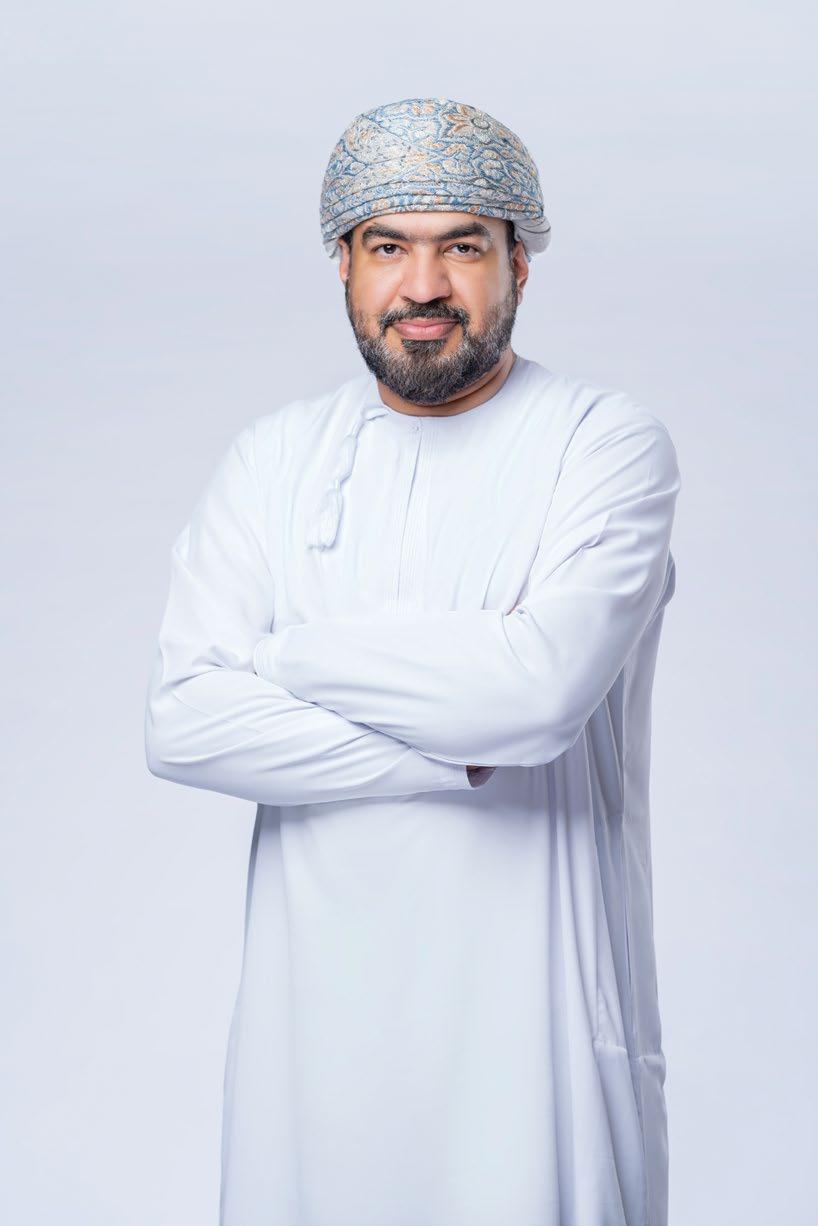
What are the strategic advantages of SOHAR Freezone?
What sets SOHAR apart is the integration of the Port and Freezone into a single ecosystem. Through a bonded corridor, cargo moves from quayside to industrial clusters in under 15 minutes, reducing costs, accelerating production cycles, and enabling just-in-time manufacturing, will strengthen SOHAR’s multimodal connectivity and give businesses faster, more reliable access to regional markets across the GCC. Together with a stable regulatory environment, these advantages give investors the confidence to plan long-term.
Equally important is our focus on future-ready industries. Beyond metals, petrochemicals, and logistics, SOHAR Freezone is attracting new players in food processing, advanced manufacturing, and renewable-energy related industries. The development of a major polysilicon facility, for example, underlines Sohar’s role in supporting the global solar supply chain, while other projects in packaging and value-added food manufacturing reflect our ability to diversify and grow alongside global demand trends.
For investors, SOHAR also offers a competitive business environment: streamlined licensing through our One Stop Shop, zero-duty import and export, tax holidays, and long-term leases. Coupled with world-class infrastructure, modern utilities, and ready-to-use industrial land, the Freezone provides certainty and scalability.
Together, these advantages make SOHAR not only a place to do business, but a strategic industrial base where companies can build end-to-end value chains, access regional and global markets with ease, and align with Oman’s Vision 2040 for sustainable growth and diversification.
How successful has the Freezone been in attracting international investors?
The Freezone has seen strong momentum in attracting global
and regional investors, reinforcing its role as a catalyst for Oman’s diversification agenda. In the past year alone, we signed five major investment agreements covering more than 92 hectares and valued at over $1.2bn. These projects span across green manufacturing, logistics, and advanced energy industries, underscoring the confidence that international companies place in SOHAR as a long-term base.
Our growing tenant base includes a diverse mix of investors from Asia, Europe, and the Middle East, representing sectors such as food processing, packaging, building materials, clean energy, and specialized logistics services. Together, they are shaping a value-added industrial ecosystem that benefits from the Freezone’s infrastructure, connectivity, and regulatory incentives.
With occupancy reaching 66 per cent across the Freezone, and demand growing for additional plots under development in Phase 2, the trajectory shows that SOHAR has become a destination of choice for forwardlooking companies seeking not only market access but also sustainability, scalability, and efficiency in one integrated hub.
As Sohar Freezone positions itself as a hub for innovation, how do you plan to maintain a competitive edge over other regional free zones that are also vying for foreign investment?
In today’s highly competitive landscape, success is not only about scale but about how effectively a hub can innovate and adapt to global shifts. At SOHAR Freezone, we view innovation as more than technology— it is a mindset embedded into how we design infrastructure, serve our tenants, and enable industries to grow. This approach allows us to consistently offer investors an environment that is both efficient today and future-ready for tomorrow. Digital tools like Marasi, NAVI, and Routescanner are not pilots; they are live systems already enhancing
efficiency, visibility, and sustainability.
What are the new expansions planned at SOHAR freezone? Are renewable energy projects a focus area?
Our current expansion strategy is designed to attract industries that align with the global transition toward clean energy and sustainable growth. At the core of this is renewable energy, where we are building a complete value chain that connects upstream production with downstream applications.
One example is the $1.35bn polysilicon plant, which will supply the raw materials essential to the global solar industry. This will be followed by downstream projects such as JA Solar and Q-Sun Solar, which will manufacture solar modules, enabling SOHAR to move beyond feedstock into value-added renewable products. Together, these projects establish SOHAR as a regional anchor for the solar industry.
In parallel, we are preparing the Freezone to support hydrogen-related industries in line with Oman’s Green Hydrogen Roadmap. Planned facilities include hydrogen storage, processing, and distribution, all designed to serve both industrial applications and transport. Complementing this are opportunities in lithium-ion battery manufacturing and carbon capture, utilization, and storage (CCUS), both of which reinforce the long-term competitiveness of the clean energy cluster.
By embedding these projects within an already diverse ecosystem of metals, petrochemicals, logistics, and food industries, SOHAR Freezone is creating synergies that make renewable energy investments more scalable and attractive. For investors, this means a platform where they can develop entire renewable value chains within a single location, supported by advanced infrastructure, integrated logistics, and a business environment aligned with Oman Vision 2040.
Sohar’s geographic strengths, current and future economic initiatives, along with its position as the administrative hub of North Al Batinah, position it well to leverage these advantages for boosting both local and national economic growth, says His Excellency Mohammed bin Suleiman Al Kindi, Governor of North Al Batinah in an interview
How important are Sohar Port and Freezone in driving economic and social development in North Al Batinah Governorate and in strengthening its position on the national and global investment map?
There is no doubt that Sohar Port and Freezone today represent the beating heart of economic activity in North Al Batinah and serve as a fundamental pillar in Oman’s renewed renaissance. Their strategic location and advanced infrastructure have made them Oman’s gateway to the world and a key hub for attracting high-quality investments. We view them as an integrated platform for creating job opportunities, developing youth skills, and supporting economic diversification, while also contributing to the achievement of Oman Vision 2040 objectives. With the presence of major companies in the port and freezone, as well as the “Madayn” industrial estate, which forms a complementary addition to the project, North Al Batinah has become an open gateway to the future – where national ambitions meet global capabilities to shape a more prosperous and sustainable tomorrow.
What are the most significant outcomes of the partnership between North Al Batinah Governorate and Sohar Port and Freezone, and how has this partnership impacted economic and social development in recent years? The partnership with Sohar Port and Freezone stands as a pioneering
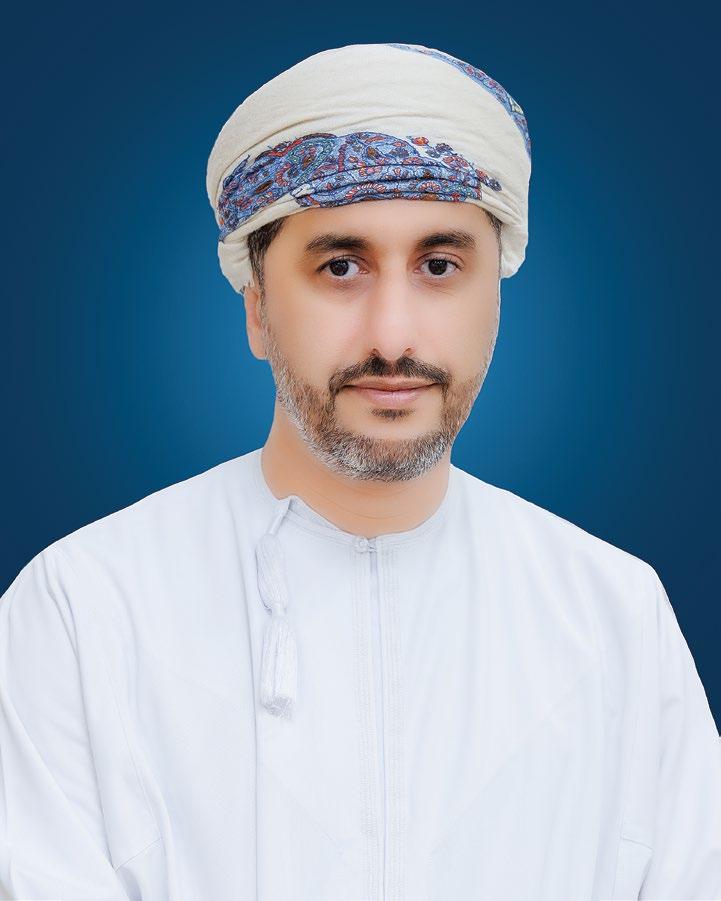
iron ore concentration plant worth RO240mn. Sohar Port also witnessed notable growth in operational activities during these years.
As the governorate strengthens its role as a key driver of GDP and gateway to global markets, what efforts are being made with Sohar Port and Freezone to ensure that
SMEs, entrepreneurs, and national talent benefit from these economic gains?
Significant efforts are being undertaken jointly by the Office of the Governor of North Al Batinah, Sohar Port and Freezone, and major companies to ensure SMEs and entrepreneurs seize available opportunities. For instance, the “Development and Business Opportunities Forum,” organised by the Governor’s Office, witnessed the signing of agreements exceeding RO65mn, with active participation from both public and private sector institutions, Sohar Port and Freezone, and companies based there. In addition, B2B partnership meetings organised by the SME Development Authority, in collaboration with the Governor’s Office and large companies at Sohar Port, have provided SMEs with direct access to major business opportunities.
Regular supplier engagement sessions are also held to clarify policies, procedures, and tendering mechanisms, while responding to queries and sharing future plans. These initiatives complement workshops that bring together procurement and contracts managers from both public and private sectors to discuss challenges, explore opportunities, and enhance SME participation, thereby strengthening their role in local economic development.
How is North Al Batinah utilising infrastructure projects, urban development plans, and connectivity improvements to support the expansion of Sohar Port and Freezone, while ensuring integration of surrounding cities and Wilayats into the port’s economic ecosystem?
The governorate places special importance on aligning infrastructure and urban development projects with the Sohar Port and Freezone ecosystem, recognising its role as a key driver of the national economy. In this regard, a series of strategic road and logistics projects have been implemented to ensure seamless movement of goods and people between the port, industrial cities, and urban centres.
Notable projects include service road upgrades near Sohar Port to accommodate rapid growth, the rehabilitation of service roads in Falaj Al-Qabail (adjacent to Sultan Qaboos Road), dual-carriageway projects in several Wilayats such as Liwa, and the new Liwa entrance linked to the Batinah Expressway. A strategic road directly connecting Sohar Port and Freezone to the Batinah Expressway is also under development, alongside completion of the Sultan Taimur bin Faisal Coastal Road. This network will connect Sohar Port with Suwaiq and Shinas ports, in addition to Sultan Qaboos Road, creating an integrated road system that enhances logistics efficiency.
On the urban front, close cooperation with the Ministry of Housing and Urban Planning is translating the National Urban Development Strategy (2020–2040) into action. This strategy aims to position North Al Batinah as a primary hub for international trade with high-value economic activities. It has identified 441 development projects under review, including the “Future Sohar City” project on 7.12 million sqm, planned to host 19,500 housing units, as well as new industrial, commercial, and residential zones. Among them is the completed masterplan for an industrial neighbourhood in Liwa adjacent to Sohar Port.
Greater Sohar is receiving exceptional focus as the economic backbone of the governorate and a principal gateway for trade and logistics. Strategic projects such as the railway connecting North Al Batinah with Abu Dhabi – developed by Hafeet Rail – promise to revolutionise transportation and logistics, firmly positioning the governorate as an economic hub and major contributor to Oman Vision 2040.
Oman Vision 2040 emphasises economic diversification and regional development. How does the partnership with Sohar Port and Freezone translate these national ambitions into tangible impact for the governorate?
Oman Vision 2040 serves as a
Greater Sohar is receiving exceptional focus as the economic backbone of the governorate and a principal gateway for trade and logistics. Strategic projects such as the railway connecting North Al Batinah with Abu Dhabi – developed
by Hafeet Rail – promise to revolutionise transportation and logistics, firmly positioning the governorate as an economic hub and major contributor to Oman Vision 2040
roadmap for building a diversified and sustainable economy with balanced regional growth. Within this framework, the partnership with Sohar Port and Freezone represents a cornerstone in translating these aspirations to reality. Together with the Madayn Industrial Estate, Shinas Port, and Suwaiq Port, they form an integrated economic system that boosts both foreign and domestic investment inflows, creates highquality jobs, and strengthens nonoil sectors such as manufacturing, logistics, and intra-regional trade – aligned with the pillars of economic diversification.
In recent years, the governorate has witnessed a remarkable leap in both the volume and quality of strategic investments. Total investments in Sohar Port and Freezone have exceeded RO11.5bn, with 2024 alone bringing in strategic projects worth more than RO1.5bn. Operationally, Sohar Port handled over 3,000 vessels in 2024, with general cargo throughput up 77 per cent year-onyear, container handling up 15 per cent, and transshipment operations rising by 19 per cent. Meanwhile, Freezone land occupancy reached 85 per cent, reinforcing its position as a preferred destination for industrial and logistics investments.
These achievements not only strengthen North Al Batinah’s role as a regional economic hub but also enhance infrastructure, improve the business environment, and
foster diversification – building a knowledge-based, competitive, and sustainable economy that embodies the goals of Oman Vision 2040.
Sohar has rapidly transformed from a historic coastal city into a modern industrial and logistics hub. How is the governorate supporting this transformation to ensure that Sohar becomes a model city for sustainable urban development, economic diversification, and job creation in line with Oman Vision 2040?
Over the recent decades, Sohar has undergone an extraordinary transformation – from a historic coastal city with deep-rooted maritime and trading heritage into a modern industrial and logistics hub that now stands as one of the main pillars of Oman’s national economy.
This transformation is guided by the governorate’s urban strategy, which has outlined key development directions for major urban centres, including Sohar. Together with Liwa, Sohar is envisioned to form “Greater Sohar” – a seamlessly connected urban fabric positioned as a gateway for international trade and one of Oman’s national economic gateways. Sohar’s geographic advantages, existing and upcoming economic activities, and its role as the administrative centre of North Al Batinah make it a prime candidate for maximising these benefits to enhance both local and national economic growth.
Support for this transformation is reflected in integrated infrastructure projects, with total development investments in Sohar reaching RO27mn. These include road rehabilitation and upgrades (Al-Nuzha Road, Wadi Hassoun watercourse, Al-Arad Road link), construction of new internal roads in compensation areas and mountainous zones, the Majees Waterfront, Sohar Car Market expansion, Sohar Bridge beautification, Sohar Public Park’s “Flag Square,” new parking facilities at Sohar Hospital, Wadi Hibbi market redevelopment, taxi stands, Friday Market rehabilitation, and consultancy services for new road designs.
Urban planning is further reinforced by the “Future Sohar City” project spanning 7.12 million sqm, comprising 19,500 housing units and advanced commercial and service areas. Other key projects include “Majd Al-Hay” residential neighbourhood in Sohar, covering over 400,000 sqm with 1,000 housing units.
Economically, Sohar continues to attract major investments through Sohar Port, Freezone, Madayn Industrial Estate, and industrial zones in Al-Muwailih and Al-Awahi. These projects expand non-oil income sources, strengthen industries such as manufacturing, logistics, and renewable energy, and directly generate numerous job opportunities for local talent.
Over the recent decades, Sohar has undergone an extraordinary transformation – from a historic coastal city with deep-rooted maritime and trading heritage into a modern industrial and logistics hub that now stands as one of the main pillars of Oman’s national economy
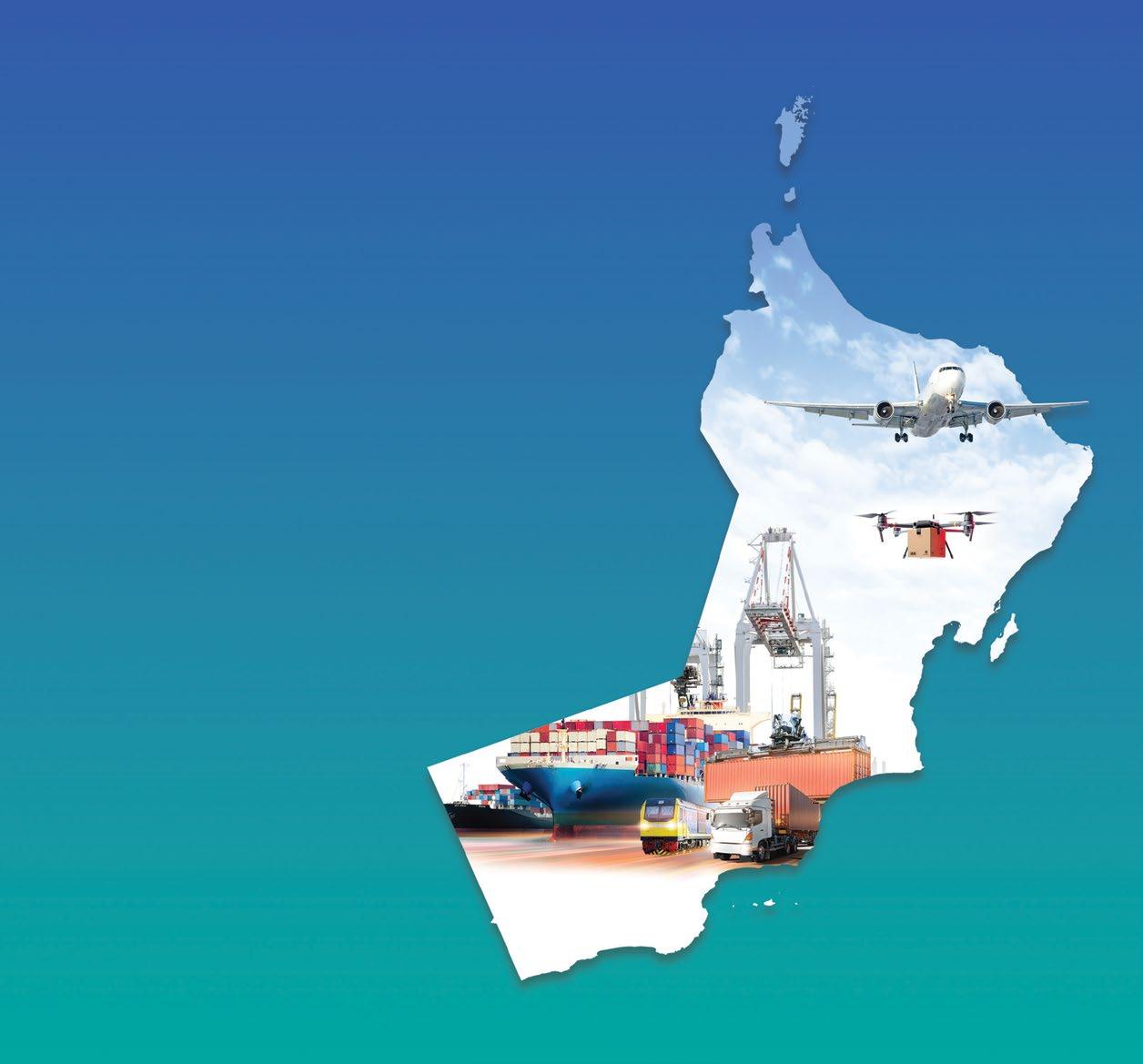
SOHAR Port and Freezone are among the most significant economic components in North Al Batinah Governorate. They play a crucial role in driving economic development, strengthening the investment ecosystem, and promoting industrial and commercial development in the region, says Eng. Said Al Abri, Chairman of Oman Chamber of Commerce and Industry– North Al Batinah Governorate
Please share your views on the current economic landscape of North Al Batinah Governorate and the pivotal role which OCCI plays within it?
No doubt that North Al Batinah Governorate has substantial economic potentials. The industrial sector plays a key role in promoting and developing the growth of the local economy. These potentials are attributed to the governorate’s strategic location, industrial diversity, and resources available, which enable it to become a key motive for regional economic development.
The availability of fundamentals and infrastructure to establish factories in the governorate significantly contributes to providing job opportunities, increasing revenues, and strengthening exports, which positively impacts the lives of locals and the development level.
The OCCI branch in the governorate adopted an explicit strategy aimed at promoting the economic performance and business development. The strategy is based on three main axes: streamlining and simplifying procedures, providing the best investment opportunities and models, and enhancing business sector development. In this regard, the OCCI branch plays a pivotal role in facilitating and receiving trade delegations, as it organises visits to introduce investors and industrialists to the governorate’s
an interview
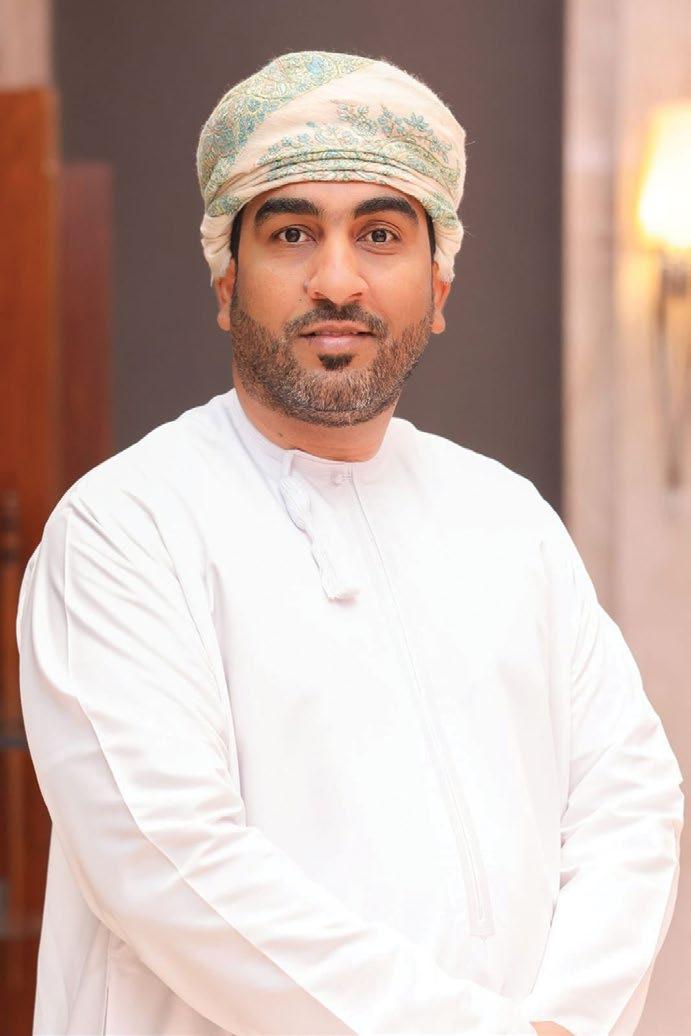
for companies seeking to expand their operations in the region, as well as reducing costs, streamlining transportation and logistics services.
The port and freezone provide an encouraging investment environment, creating a favorable environment for investors and offering investment incentives and facilities for investments in several industries, such as manufacturing, logistics, and trade. This contributes to the diversification of the national economy and creates new job opportunities. The port and freezone attract local and international investors, and provide advanced infrastructure and integrated logistics services that make the region an investment destination. Furthermore, the port and freezone encourage industrial projects targeting regional and international markets, which support the diversification of national income sources as well as fostering communication and linkage between local and international businessmen, and establishing partnerships to support sustainable development.
Hence, we can safely say that SOHAR Port and Freezone represent a key economic engine for North Al Batinah Governorate. They effectively contribute to creating an attractive business ecosystem, providing several investment opportunities, and promoting sustainable economic development. The investment and development of SOHAR Port and Freezone will enhance the Sultanate of Oman’s regional and global position, as well as promote the North Al Batinah Governorate as a promising economic and commercial hub.
Can you highlight any specific sectors or industries in North Al Batinah that have experienced notable growth or transformation as a direct result of the collaboration between OCCI and SOHAR Port & Freezone?
The OCCI branch in North Al Batinah Governorate exerts relentless efforts to support every initiative to strengthen the governorate’s economy through continuous coordination and integrated partnership between
the OCCI branch in North Al Batinah Governorate and SOHAR Port and Freezone. Thanks to collaboration between the different public and private sector establishments of the country, the governorate’s manufacturing industries witnessed substantial growth, particularly in metals, chemicals, and plastics. This growth is caused by advanced infrastructure at SOHAR Port and Freezone and streamlined export and import procedures, which attracted local and foreign investments to enhance production capacity. In addition, the availability of integrated transport and logistics services in the area has increased investment in logistics and enabled the companies to store, distribute, and transport goods effectively and efficiently, which in turn strengthened their regional and international competitiveness.
The supporting industrial sector, such as equipment, machinery, and textiles, has witnessed qualitative transformations, leveraging the contracts with global companies based in the free zone. This led to increased production and the development of advanced technical skills.
SOHAR Port and Freezone unquestionably have invested in mining and mineral processing sectors, leveraging the availability of raw materials and investment-friendly environment in mining projects, as well as customs and logistics facilities offered by SOHAR Port and Freezone.
Looking specifically at North Al Batinah, how has the synergy between OCCI and SOHAR Port and Freezone directly contributed to job creation and economic diversification within the governorate?
North Al Batinah Governorate is a distinguished model of sustainable economic development, where the importance of public-private cooperation becomes evident, represented by the OCCI branch, in North Al Batinah, SOHAR Port, and the Freezone, which serves as a key driver in enhancing job opportunities and local economy diversification.
The development of SOHAR Port and Freezone attracted several industrial and service-oriented companies, which created thousands of direct jobs for citizens and residents, as well as employment opportunities in the logistics sector. With the area being equipped with advanced facilities, the demand for national cadres in shipping, storage, delivery, and logistics services has significantly increased. The manufacturing industries and industrial products sector increased the demand for the technical and administrative workforce, considering it as one of the governorate’s primary employment sources. In addition, the investors shifted towards diverse industries such as metals, chemicals, and pharmaceuticals, which decreased reliance on oil as the main source of income.
What message would you like to convey to potential investors, both local and international, regarding the opportunities and enabling environment available in North Al Batinah?
Certainly, we directly invite local and international investors to join the course of sustainable development in North Al Batinah Governorate, where promising investment opportunities exist across key economic sectors. The governorate has advanced infrastructure and an attractive investment environment, supported by government policies, and a strategic location that links regional and global markets. These factors provide the ideal ecosystem for the growth and prosperity of businesses and projects.
We call on investors to take advantage of the opportunities available and achieve their commercial objectives in a secure and flexible environment, characterized by streamlined procedures and simplified ownership and operational procedures, as well as the incentives and facilitations we provide to investors. As a branch of North Al Batinah Governorate, we are fully ready to provide support and assistance to ensure the success of your business. We look forward to establishing successful partnerships to strengthen the North Al Batinah Governorate’s position.
Madayn Sohar in close coordination with SOHAR Port and Freezone, is pursuing strategic initiatives to reinforce Sohar’s role as a fully integrated industrial and logistics hub, says Eng. Abdullah Al Mayasi, General Manager, Sohar Industrial City – Madayn
What are the key factors driving the growth of heavy industries in Sohar Industrial City?
Sohar Industrial City has established itself as a leading destination for heavy industries, thanks to its strategic location and integration with SOHAR Port and Freezone, which provides direct access to regional and international markets. The city offers modern industrial land, advanced infrastructure, and proximity to rawmaterial manufacturers.
Combined with attractive incentives, customs and tax exemptions, this ecosystem has positioned Sohar as an appealing hub for investors. Today, specialised clusters in metals, petrochemicals, and logistics reinforce its role as a driver of industrial growth.
How does Madayn Sohar collaborate with the Government to advance industrial and economic goals?
Madayn Sohar works closely with national institutions to align its plans with Oman Vision 2040, where industry has been identified as a cornerstone of diversification. The city plays a direct role in implementing the Industrial Strategy 2040, endorsed by Cabinet in mid-2024.
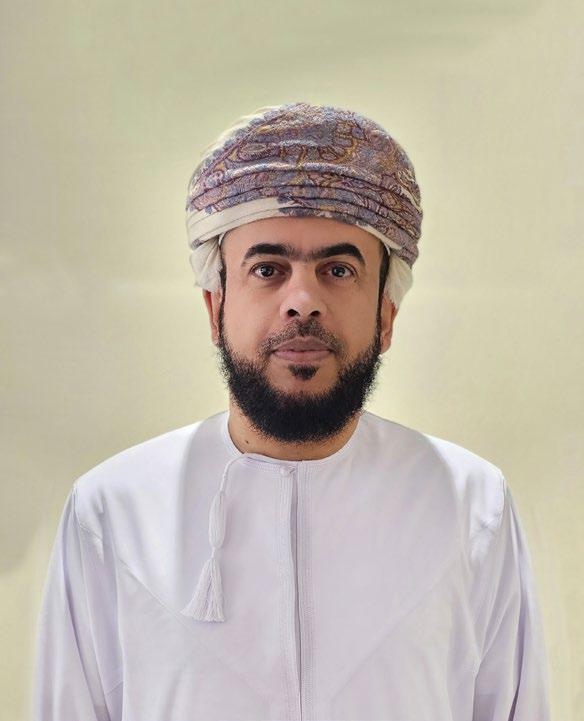
Madayn Sohar, in close coordination with SOHAR Port and Freezone, is pursuing strategic initiatives to reinforce Sohar’s role as a fully integrated industrial and logistics hub. Dedicated clusters have already been established in plastics and aluminum, leveraging outputs from major players such as OQ and Sohar Aluminium. Its location near SOHAR Port, the Al Batinah Expressway, and the railway corridor enhances competitiveness. Collaboration also extends to digital platforms for customs clearance, sustainability initiatives, and social partnerships, ensuring Sohar remains a competitive and sustainable economic hub at both regional and international levels.
How does the partnership between Madayn Sohar and SOHAR Port and Freezone strengthen Oman’s economic resilience?
This includes simplifying investment procedures, developing worldclass infrastructure, automating transactions, and providing longterm incentives. Regular feedback is shared with regulators to improve laws and policies, while the city also contributes to annual social development initiatives in partnership with government entities.
as smelting, metallurgy, electrical equipment, and construction materials. The sector attracts significant local and international investment, thanks to Oman’s large reserves and copper’s global demand. As a critical input for cables, renewable energy technologies, and electronics, copper creates new value chains within the Sultanate, contributing to diversification and industrial resilience.
What future collaborations do you foresee between Madayn Sohar, SOHAR Port, and other stakeholders to strengthen integration and development?
The partnership creates an integrated industrial–logistics ecosystem, linking Sohar’s industrial base directly to global markets via the port. This reduces costs, enhances export competitiveness, and supports diversification into high-value sectors such as metals, petrochemicals, renewable energy, and food processing. SMEs benefit from direct market access, while foreign investors are drawn to Sohar’s industrial land, infrastructure, and logistics facilities.
Most importantly, the collaboration strengthens supply chain resilience, ensuring access to essential goods even in times of global disruption— contributing to food security, energy stability, and long-term economic resilience for Oman.
At SOHAR, female employment has increased by 26 per cent over the past five years. Women are taking on leadership, technical, and commercial roles, adding diversity of thought and strengthening decision-making, says Rahma Al Hashmi,
What first inspired you to pursue a career in customer experience and commercial strategy, and how does this shape your role at SOHAR today?
I have always believed that customer relationships should go beyond reactive service. Early in my career, I noticed that many organisations limited engagement to solving issues after they arose, which left significant opportunities untapped. That realisation shifted my perspective: success comes from being proactive, listening, anticipating, and continuously improving processes with the customer at the center. At SOHAR, this approach shapes how we design the commercial journey for investors and tenants. We do not wait for issues to surface; we engage early, anticipate needs, and work across teams to ensure seamless experiences. It is about aligning customer success with SOHAR’s growth, which ultimately strengthens both.
You played a pivotal role in transforming customer experience at Oman Post and ASYAD Express. How are you applying the same mindset to strengthen SOHAR’s position as a commercial hub?
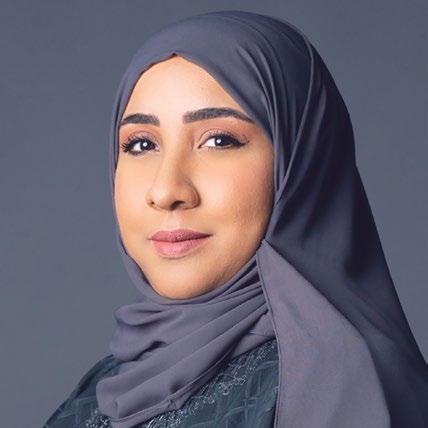
How do you approach building and nurturing high-performing teams in a dynamic logistics and Freezone environment?
this shaping the future of SOHAR and the industry more broadly?
The logistics and industrial sectors are no longer seen as male-dominated, and the numbers prove it. At SOHAR, female employment has increased by 26 per cent over the past five years. Women are taking on leadership, technical, and commercial roles, adding diversity of thought and strengthening decisionmaking. I believe this momentum is reshaping industry. As more women take on visible roles, they inspire others to follow. At SOHAR, through platforms like Sidrah, we are creating pathways that empower women to thrive in logistics and industry. It is an exciting shift, and one that makes our sector stronger, more inclusive, and future ready.
At Oman Post and ASYAD Express, success came from shifting to a truly customer-centric model—listening to feedback, analysing pain points, and making changes that improved trust and satisfaction. At SOHAR, I have applied that same mindset. We actively capture tenant feedback, track performance, and use those insights to enhance everything from license approvals to Port–Freezone connectivity. It is not just about solving issues quickly; it is about building longterm confidence, so tenants and partners see SOHAR as a reliable, investorfriendly hub for their operations.
For me, leadership starts with believing in your team and investing in their growth. I make it a priority to connect with colleagues, understand their challenges, and involve them in decision-making. Recognition and empathy are keys for celebrating every success, no matter how small, and empowering people to take initiative without fear of failure. In an industry as fast-moving as logistics, this approach builds resilience. Teams feel trusted, motivated, and ready to innovate. At SOHAR, where commercial success relies on collaboration across functions, nurturing high-performing teams ensures we remain agile and responsive to partners’ needs.
Women are playing an increasingly visible role in Oman’s logistics and industrial sectors. How do you see
Looking ahead, what excites you most about SOHAR’s future and your role in shaping its commercial strategy? What excites me is the transformation we are driving. SOHAR is not only expanding in scale with megaprojects and new clusters but also evolving in how we deliver value to partners. Digitalization, sustainability, and integration across clusters are creating a logistics hub that is smarter, cleaner, and more connected.
As part of the commercial leadership team, my role is to ensure that this transformation is experienced directly by our tenants and partners. That means building trust, improving processes, and continuously aligning our commercial strategy with Oman Vision 2040. Being part of this journey, where we connect commerce and create opportunities for the nation, is both inspiring and motivating.
Sohar has become a vital part of Vale’s global value chain, and one of its most important hubs outside Brazil, says Nasser Al Azri, CEO, Vale in Oman and Director of International Operations in an interview
How does the strategic location of SOHAR Port enhance Vale’s operations?
Vale’s decision to invest in Oman, specifically in Sohar, was shaped by more than geography. It was the result of a strategic alignment between operational efficiency and long-term growth potential.
SOHAR Port sits at the intersection of major global trade routes, linking Asia, Europe, the Middle East, and Africa. This location, combined with the Port’s deep-water capabilities, makes it one of the only terminals in the region that can accommodate our 400,000-ton Valemax vessels, the largest ore carriers in the world. This enables direct, efficient transport of iron ore from Brazil to Oman, and from Oman to key global markets with speed and scale that few locations can match.
But logistics alone did not shape our decision. Oman offered what few places could: political and economic stability, reliable energy and gas supply, and world-class infrastructure. These factors allowed Vale to establish a fully integrated operation, where we import iron ore, process it at our state-of-the-art pelletising plant, and distribute it to regional and international markets. Sohar has become a vital part of Vale’s global value chain, and one of our most important hubs outside Brazil.
Our presence in Sohar reflects a broader strategic vision: to operate where our logistics, industrial
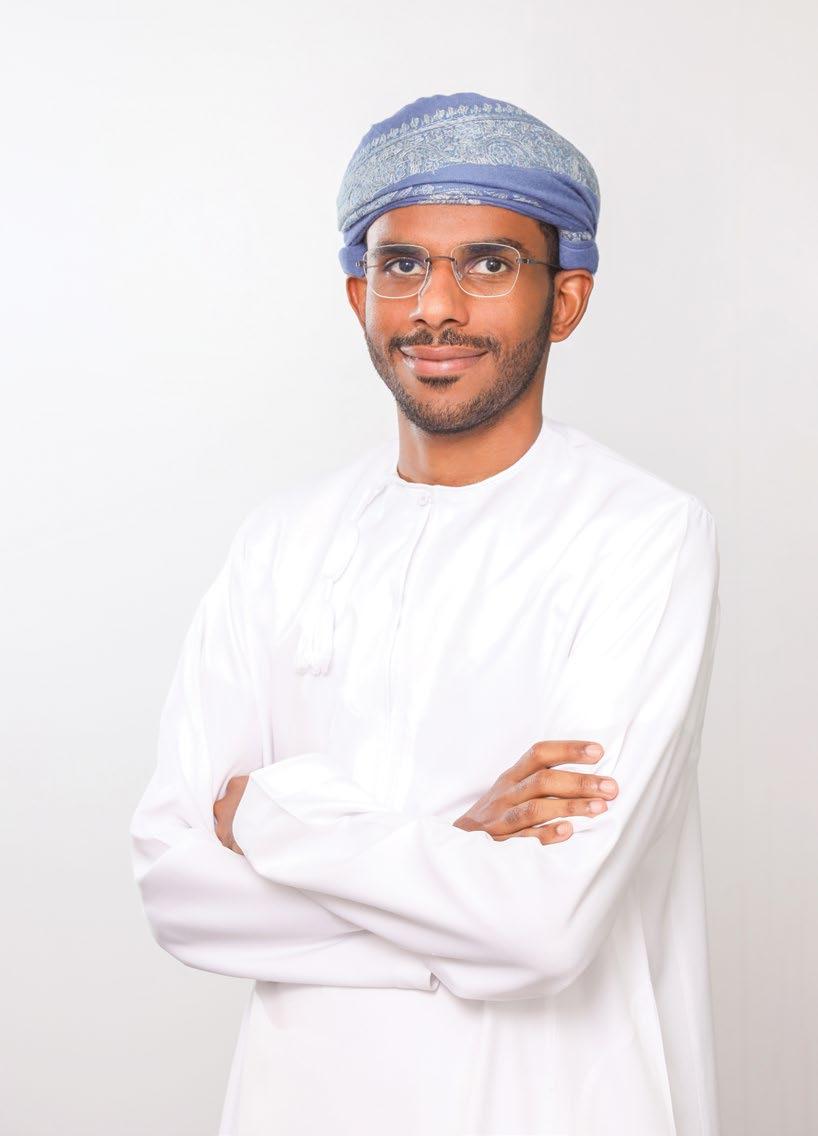
What are Vale Oman’s most recent operational highlights and strategic projects?
Vale Oman operates two complementary business streams in Sohar that work in synergy. The pelletising plant, originally designed to produce 9 million tonnes annually, has now reached 9.9 million tonnes, consistently supplying leading Gulf steelmakers in Saudi Arabia, the UAE, and Qatar at efficient and competitive rates.
Equally important is our distribution centre, which plays a pivotal role in handling pellet exports and blending different grades of iron ore to meet diverse customer requirements. This capability has enabled us to expand our market reach, with India becoming a major destination in recent years. In 2024, the facility achieved record export volumes, and 2025 is already on track to exceed them. This underlines Sohar’s growing role as a strategic hub in Vale’s global network and as an enabler of valueadded industrial activity in Oman.
How is Vale advancing the decarbonisation of its operations
in Oman? What renewable technologies are being considered? At Vale in Oman, decarbonisation is not just a target; it is a roadmap embedded into our long-term strategy. During Oman Sustainability Week, we signed a Head of Agreement with OQ Alternative Energy to supply our Sohar pelletising plant with 100 per cent renewable electricity by 2030. This partnership also lays the groundwork for exploring renewable options for future projects. To achieve our goals, we are working closely with stakeholders to secure renewable energy from solar and wind sources, supported by storage technologies that ensure a continuous and stable supply across our operations in Sohar. These renewable sources will directly replace neutral gas inputs in our production process.
In what ways is Vale contributing to the broader economic ecosystem of Oman, particularly in relation to industrial diversification?
Since 2007, Vale has established one of the Middle East’s largest and most advanced industrial operations in Sohar, enabling Oman to become an integral part of the global iron ore
supply chain. Our investment of over RO1bn has supported the growth of a strong industrial ecosystem, anchored by our pelletising plant and distribution centre, and created direct and indirect employment opportunities, with Omanisation exceeding 75 per cent.
Beyond operations, we have invested $1.4bn in local supply chain procurement from 2012-2024, prioritising with local contractors and SMEs. We also collaborate with academic institutions to support knowledge transfer, foster innovation, and equip national talent with futureready capabilities.
Looking ahead, projects such as the Mega Hub in Duqm will open a new chapter in industrial diversification, attracting green industries and positioning Oman as a regional hub for low-carbon solutions. Through our continued investment, we aim to contribute meaningfully to the goals of Oman Vision 2040 and support the country’s transition to a more diversified, sustainable economy.
Vale Oman operates two complementary business streams in Sohar that work in synergy. The pelletising plant, originally designed to produce 9 million tonnes annually, has now reached 9.9 million tonnes, consistently supplying leading Gulf steelmakers in Saudi Arabia, the UAE, and Qatar at efficient and competitive rates
C. Steinweg Oman LLC is committed to strengthen digital integration, expand value-added services, and deliver safe, efficient, and cost-effective solutions to establish Oman as a premier regional logistics hub in the next decade, says Hendrik Van Mierop, CEO, Steinweg Oman LLC in an interview
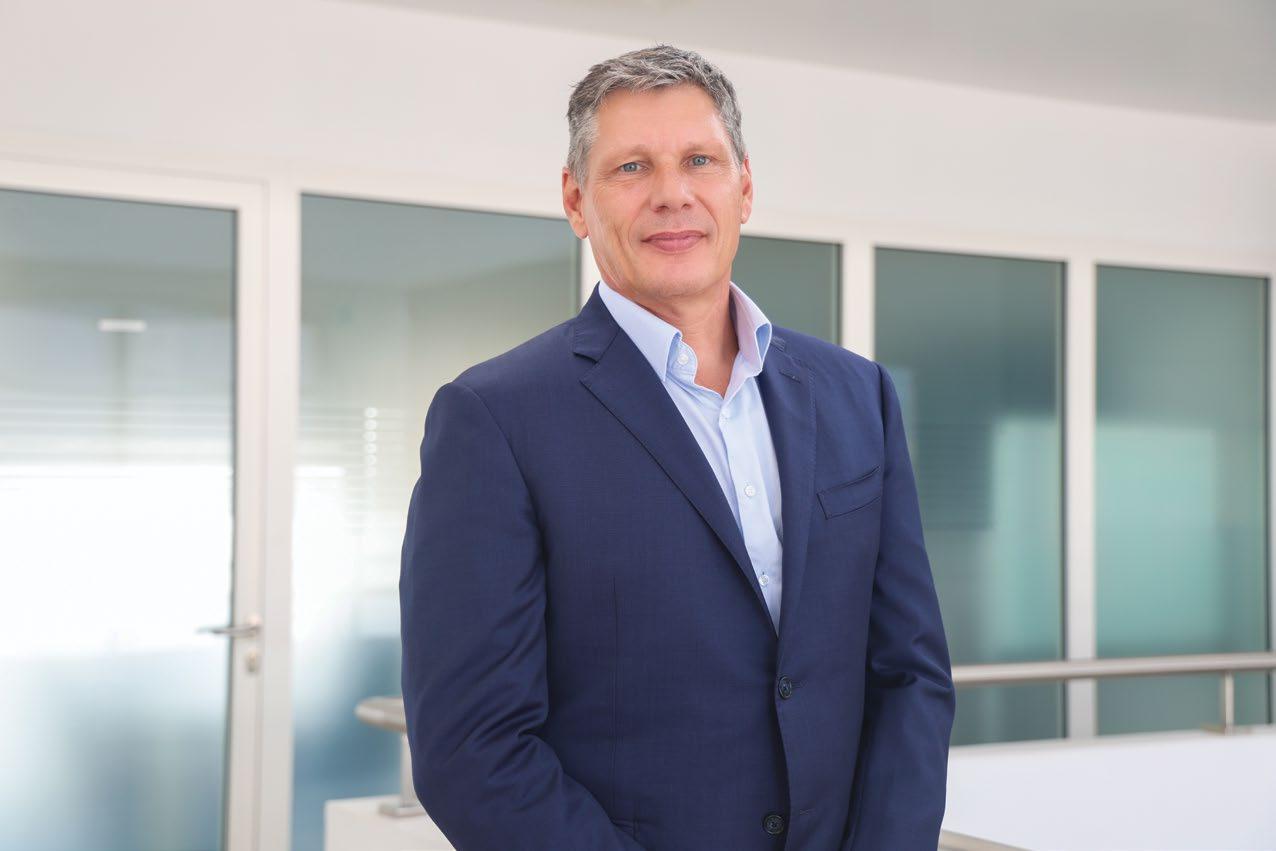
Steinweg Group, a global logistics provider with operations in around 60 countries; covering stevedoring, storage, chartering, forwarding, cargo releases from party A to party B, and other related services. This network creates value for Sohar and Oman: we connect local flows to international markets under a single, trusted umbrella, recognised by traders, banks, and insurers worldwide. This facilitates growth of trade
reliability, and a reputation that supports further growth of the port, North Al Batinah, and Oman as a whole.
In what ways is C. Steinweg contributing to the economic development of North Al Batinah Governorate?
We invest in people—our employees and our community. C. Steinweg Oman LLC maintains a high Omanisation ratio across
Renewables, we provide the logistics backbone needed to scale investment and production. Looking ahead, we will deepen digital integration with customers and authorities, expand value-added services, and continue to drive safe, efficient, and cost-effective solutions— helping position Oman as a leading regional logistics hub over the coming decade.
SOHAR Port and Freezone, a destination connecting businesses to the world, has continued to advance on its strategic path during the first half of 2025, underpinning its critical role in Oman’s economic diversification journey under Oman Vision 2040. Demonstrating continued outstanding Freezone performance and record award of contracts to local companies, SOHAR is cementing its position as a vibrant investment ecosystem transforming trade in Oman through sustainable practices.
During this period, SOHAR Port handled 34 million metric tons of cargo. The evolving political situation in the region has influenced cargo volume and throughput, leading to some adjustments compared to previous periods. With significant investments continuing to modernise port facilities and deploying advanced digital solutions, Sohar is boosting operational capacity, accelerating cargo turnaround, and elevating SOHAR’s competitiveness on the global stage. Sohar is securing its continued growth and success for the future.
Dredging works were completed at the MARSA LNG jetty, that will be strengthening Sohar’s bunkering and Oman’s strategic energy export capabilities.
Commenting on the results, Emile Hoogsteden, CEO, SOHAR Port, said, “Our performance is a reflection of SOHAR’s strategic clarity and long-term commitment to growth. By scaling infrastructure, embedding digital innovation, developing sustainable solutions and cultivating local ecosystems, we are driving SOHAR’s evolution as a future-ready trade hub, vital for Oman and the entire region.”
He continued, “With the record investments last year and the strong
continuation this year, we are securing a prosperous and successful future. Moving forward, we will intensify efforts to optimise efficiency, bolster the Omani industry, generate sustainable value for all our stakeholders and attracting quality investments”.
SOHAR Freezone secured six new agreements covering more than 92 hectares of land and attracting more than $1.3bn on investments in the first half of this year. These projects span across green manufacturing, energy, and logistics sectors, reflecting SOHAR’s role in creating synergies within an integrated framework. This reinforces SOHAR’s activeness as a dynamic hub for sustainable, cutting-edge industrial development and enhancing Oman’s regional trade linkage.
Complementing these developments, SOHAR has launched one of its largest infrastructure expansions to date, developing phase 2 of the Freezone, spanning an additional 670 hectares of land. This expansion will boost cargo capacity, unlock new industrial opportunities, and reinforce SOHAR’s pivotal role as a regional trade and investment hub.
Mohammed Al Shizawi, Acting CEO, SOHAR Freezone, noted, "The Freezone’s sustained expansion reflects the robustness of our investment proposition and the confidence global and regional investors place in SOHAR. With 670 hectares under phased development, we provide a compelling ecosystem where advanced industries flourish— powered by world-class infrastructure, streamlined operational processes, and a supportive regulatory framework. Our strategic focus is aligned with Oman’s industrial diversification and global sustainability trends, including green energy and circular economy principles. This momentum consolidates SOHAR’s
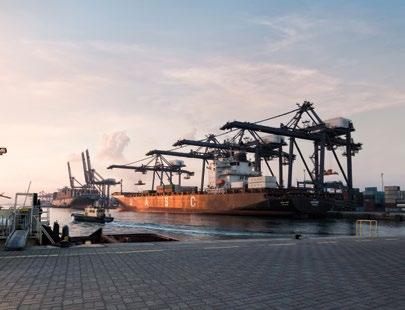
leadership as a destination of choice for future-oriented manufacturing and logistics."
SOHAR’s dedication to local economic impact is evident with a strong rise in local content indicators. The portion of Local Purchase Orders (LPOs) awarded to Omani companies climbed to 62 per cent, while the value of total LPOs direct to local suppliers surged to 96 per cent, up from 91 per cent in H1 of 2024. This notable advancement underscores SOHAR’s determination to foster local enterprises, empower SMEs, and deepen workforce integration to create lasting socioeconomic benefits.
Alongside its economic and industrial progress, SOHAR reinforced its commitment to building resilient communities in the first half through impactful CSR projects. Focused on education, healthcare, and social development, the initiatives benefited more than 3,471 people, reflecting SOHAR’s dedication to social responsibility in line with Oman Vision 2040. SOHAR’s performance in the first half of 2025 reaffirms its seminal role as a catalyst for Oman’s trade, industrial growth, and sustainable development agenda. With steadfast alignment to Oman Vision 2040, SOHAR Port and Freezone continues to build a resilient ecosystem that delivers enduring value to investors and the national economy.
Bank Muscat has been consistently investing in technology to boost efficiency for corporates. Its digital solutions enable better liquidity and working capital management, process automation and growth, says Wafa Al Ajmi, AGM, Transaction & Government Banking in an interview
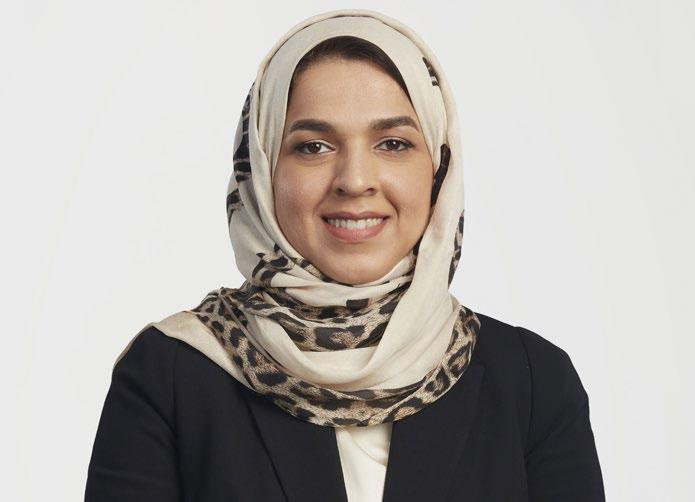
As the leading financial institution in Oman, Bank Muscat carries the distinguished legacy of over 45 years in delivering excellence in corporate banking services. The Bank’s focus on innovation in this field reflects its strategic vision to maintain market leadership in an ever-evolving economic environment. In line with Oman’s economic diversification agenda under Oman Vision 2040, the bank has identified innovation as a key enabler to empower the corporate sector in seizing new opportunities and navigating future challenges. Accordingly, the Bank continues to make significant investments in technology platforms and digital transformation to deliver scalable, customer centric solutions.
What is the API Banking Services and why is it an innovative solution
in Bank Muscat’s corporate banking services?
APIs are redefining the future of banking by creating seamless digital connections between the Bank and its corporate customers. At Bank Muscat, API Banking Services are designed to simplify and accelerate financial transactions, allowing businesses to operate with greater agility and security. Through offerings such as account inquiry APIs, payment transfer APIs, collections via e-mandate APIs, and web payment APIs, the Bank provides corporates with real time access to banking services directly from their own systems. This ensures faster transaction settlements and improved cash flow, ultimately empowering corporates to focus on growth and core business rather than routine transaction processes. Our early adoption of API Banking, already rolled out with several leading
institutions and companies, reflects our commitment to future ready innovation that improves efficiency and sets new standards for digital empowerment in Oman. Supporting Oman’s business environment has always been a priority for Bank Muscat. By being among the first in Oman to launch API Banking, Bank Muscat is shaping the future of corporate banking with customer centric, innovative solutions that keep pace with evolving business needs.
What role do APIs play in Bank Muscat’s digital transformation strategy?
APIs are at the core of Bank Muscat’s future oriented digital transformation strategy. They enable embedded banking, where financial services are seamlessly woven into the day-today banking operations of corporate customers. This allows customers to conduct account management, initiate payments, and manage collections through e-Mandates and Web Payment APIs without ever leaving their business systems. Beyond convenience, APIs provide agility, automation, and realtime data flows, helping corporates operate more efficiently and securely. Further, API Banking services position the bank as a technology partner rather than just a service provider. This creates opportunities for innovation, support real-time data exchange, and ensure compliance with evolving regulatory standards. With our offering of payment and collection APIs, the bank empowers corporates to automate processes, enhance security, and scale their businesses with agility making APIs a cornerstone of our digital transformation journey.
What other key corporate banking
solutions and services does Bank Muscat offer?
The Bank has expanded its network of dedicated corporate branches to now include five modern and spacious branches across the Sultanate. These branches are equipped with the latest technologies and staffed by qualified relationship managers who provide advisory services and support for transactions such as account opening, fund transfers, cash deposits, insurance products, cheque clearing, direct debit services, trade services and providing various digital solutions. Bank Muscat also places strong emphasis on supporting SMEs, recognising their importance to national economic growth. Over the years, the Bank has consistently delivered a wide range of services, solutions, and facilities tailored to corporate needs, including loans, cards, digital solutions, and global trade services—making Bank Muscat a key partner in their growth and success. The Bank also provides services for salary payments (WPS and Non-WPS) through its channels. To simplify and automate, the salary payments are also enabled through online banking platform. Furthermore, the bank has played a pioneering role in project finance, leveraging its deep sector expertise, innovative solutions, and structured feasibility studies. The Bank continues to meet long-term financing requirements of major projects in strategic industries such as oil and gas, petrochemicals, renewable energy, manufacturing, telecommunications, real estate, aviation, water, and power.
Bank Muscat has been a pioneer in digital transformation, consistently investing in technology platforms that enhance efficiency and empower corporates. Through bank’s digital solutions, corporates can better manage their liquidity and working capital, automate processes, and focus on growth while Bank Muscat provides the digital backbone to support them. Bank Muscat was among the first financial institutions in the region to implement strategic digital transformation initiatives, redefining operational efficiency for its corporates. By integrating the latest technologies into its offerings, the Bank empowers corporates to manage

their businesses seamlessly. In this regard, the Bank offers the Integrated Transaction Banking Services Platform for government entities, corporates, and SMEs. This comprehensive platform provides a wide range of digital capabilities including payments, unified dashboards for customer accounts across banks, direct debit solutions, liquidity management, and trade services. Additionally, the Bank launched DigiTrade, a digital trade services platform for its corporate and institutional customers, designed to simplify trade processes and reflect the Bank’s alignment with Oman Vision 2040. Other offerings include Host to Host integration through SFTP file transfer and API Banking services. The Bank also provides a full suite of conventional and Islamic trade finance products and services tailored to diverse corporate needs.
What is Bank Muscat’s long-term vision for corporate banking in Oman? What innovations does the Bank look forward to?
Bank Muscat envisions a future where corporate banking acts as a major driver of sustainable economic growth, digital transformation, and financial inclusion in Oman. As the nation advances toward the goals of Vision 2040, the Bank plays a pivotal role in enabling both large corporations and emerging enterprises
to succeed in a technology-driven global economy. The Bank’s long-term vision centers on building enduring partnerships with corporate customers, providing flexible financial solutions that support innovation, agility, and value creation. Looking ahead, the Bank is exploring advanced innovations such as artificial intelligence and machine learning to enhance risk assessment and credit decision-making. It is also pursuing opportunities in sustainabilitylinked financing, with products tailored to support environmentally friendly practices and performance aligned with ESG (Environmental, Social, and Governance) indicators. At the same time, Bank Muscat continues to foster innovation through strengthened partnerships with FinTech companies, regulators, and key stakeholders. This proactive approach ensures that the Bank remains at the forefront of corporate banking in Oman, serving as a trusted partner in driving national development. In recognition of its leadership in corporate banking, Bank Muscat has recently been honored with several prestigious awards, including Best Corporate Banking Services in Oman from World Business Outlook and the Excellence in Corporate Banking Award from International Business Magazine. The Bank was also ranked among the Best Banks in the Region by Forbes Middle East.
Integrated Gas Company’s focus is not just operational excellence, but also long-term value creation for Oman’s economy –positioning gas as a catalyst for sustainable development, says CEO, Abdulrahman Al Yahyaei in an interview
Since its establishment in 2022, IGC has rapidly transformed Oman’s gas sector. Can you share the vision behind IGC’s creation and how it aligns with Oman Vision 2040?
The establishment of Integrated Gas Company in December 2022 was a pivotal step in the Sultanate of Oman’s energy sector transformation. The vision was clear: to create a dedicated entity capable of managing all gas-related allocations, contracts, and infrastructure on behalf of the government, while ensuring transparency, efficiency, and strategic alignment with national goals. This vision is intrinsically aligned with Oman Vision 2040, particularly in advancing economic diversification, promoting energy security, and fostering sound governance. By consolidating previously fragmented roles under a single national aggregator, IGC brings clarity and agility to gas sector management. Our focus is not only on operational excellence, but on enabling long-term value creation for Oman’s economy – making gas a true catalyst for sustainable development.
Gas is more than an energy source—it is the engine of Oman’s industrial growth. Could you elaborate on how IGC is ensuring that gas creates long-term value for the economy?
At IGC, we view natural gas not just as a resource but as a strategic asset for national development. Our mandate is to ensure that every unit of gas we manage delivers economic value by fuelling industries, enabling
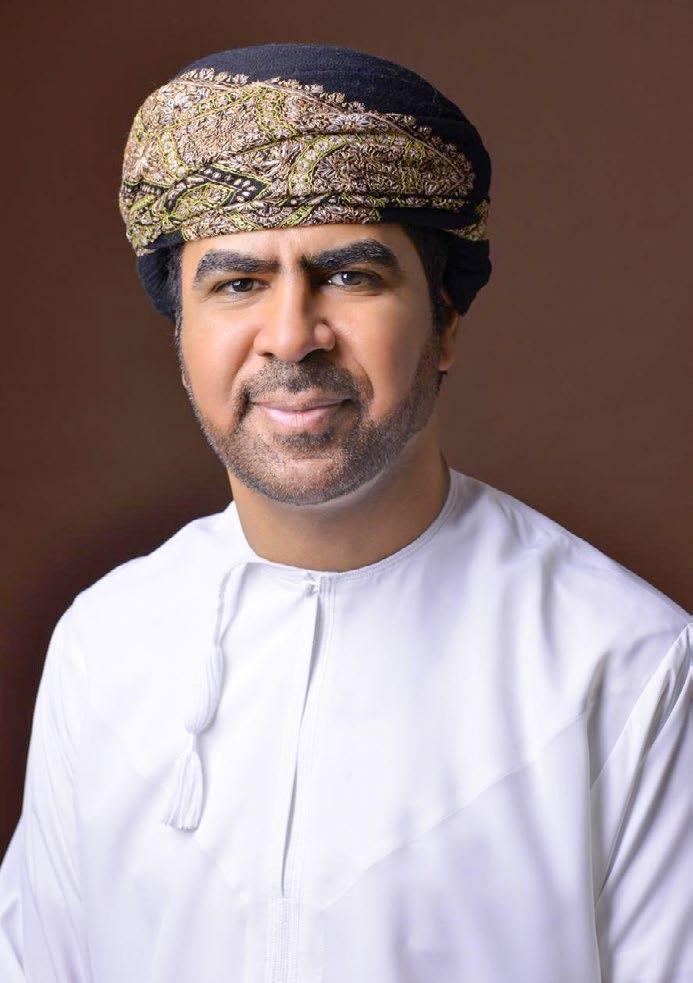
investments, and supporting job creation. We prioritize domestic needs first, especially power generation, large industrial sectors like petrochemicals, metals, and manufacturing, before allocating any surplus. Today, IGC manages over 42 billion cubic meters of gas annually and supplies more than 140 domestic consumers. We have also introduced Oman’s first gas spot market and auction platform, enhancing value optimization and market responsiveness. Our Gas Applications Portal enables transparent and datadriven assessment of gas requests, prioritizing projects with clear economic and environmental impact. In short, we are building an efficient, demand-driven, and value-centric gas ecosystem – one that actively supports Oman’s non-oil GDP growth and longterm economic resilience.
The recently approved 193km Fahud to Sohar pipeline is a landmark project. Beyond expanding the network, how will it catalyse new industries, clusters, and jobs?
The Fahud to Sohar pipeline, including the extension to Ibri, is a strategic enabler of industrial and regional development. Spanning 193 kilometers, the project will extend Oman’s national gas grid by 4.5 per cent and add up to 13 million cubic meters per day in supply capacity to high-potential areas. This infrastructure unlocks significant industrial potential at the Sohar Port complex, Sohar Industrial City and
the emerging Ibri Industrial City, all of which are central to Oman’s diversification agenda. It will enable the development of new clusters in metal processing, petrochemicals, manufacturing, and more. Moreover, the pipeline is expected to generate substantial economic spillover, attracting investment, creating direct and indirect employment, and improving regional connectivity. It exemplifies IGC’s commitment to using gas infrastructure not just for energy delivery, but for catalysing Oman’s broader economic ambitions.
How do you see IGC shaping Oman’s future energy mix and the country’s sustainability agenda?
Sustainability is deeply embedded in IGC’s strategy. We recognize that natural gas plays a crucial role as a transition fuel, offering cleaner energy while supporting the growth of renewables and low-carbon technologies. IGC actively supports projects that bridge today’s gas economy with tomorrow’s clean energy landscape. A prime example is our involvement in the Vulcan Green Steel project in Duqm, where we are providing transitional gas to enable a green hydrogenbased steel plant to come online. Initiatives like this illustrate our role in enabling Oman’s Net Zero 2050 goals. We also prioritize gas allocations to industries with strong decarbonization roadmaps and are exploring opportunities in carbon capture, hydrogen blending, and clean molecule management. Our
long-term vision is to evolve from a conventional gas aggregator into a platform for sustainable energy transition, ensuring reliability while accelerating the shift to a greener future.
Looking ahead to 2030 and beyond, what is your vision for IGC’s role in Oman’s economic and energy future?
By 2030, we envision IGC at the forefront of enabling Oman’s industrial competitiveness, energy resilience, and low-carbon transition. Our long-term strategy is built around maximizing national value per molecule of gas, whether through driving investments, supporting innovation, or ensuring energy security. We are actively involved in long-term planning, including the planning for a potential fourth LNG train, which will rely on new upstream resources without compromising domestic needs. IGC will also play a pivotal role in shaping Oman’s evolving energy mix, integrating clean energy into the gas value chain and supporting the development of sustainable industrial ecosystems. Ultimately, IGC is not just managing gas, we are implementing a national energy strategy that fuels economic transformation, empowers industries, and builds a resilient, diversified future for Oman.
By 2030, we envision IGC at the forefront of enabling Oman’s industrial competitiveness, energy resilience, and low-carbon transition. Our long-term strategy is built around maximizing national value per molecule of gas, whether through driving investments, supporting innovation, or ensuring energy security
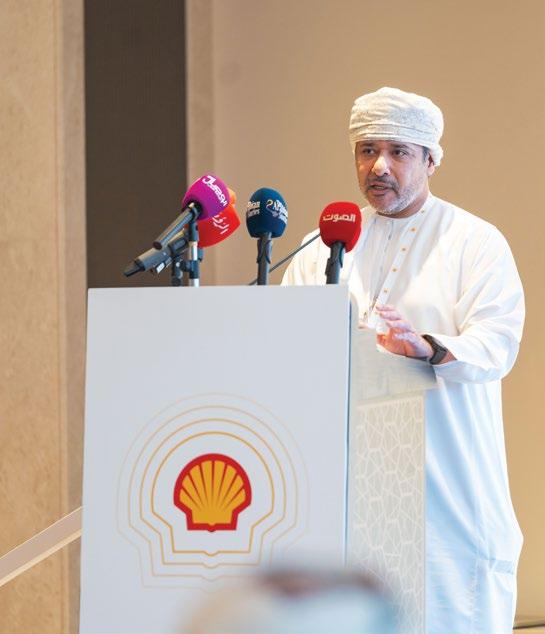
Itransformation and renewed public engagement, Shell Oman Marketing Company (Shell Oman) hosted a landmark media event in Muscat under the theme “Powering Progress in Oman: From Inception to the Future,” a reflection of the company’s renewed commitment to growth grounded in trust, innovation, and national impact.
Held on September 10, 2025, the event welcomed industry stakeholders, national media, and Shell Oman’s executive management team led by the CEO.
Amid the fast-evolving energy and mobility landscape, the event underscored Shell Oman’s ambition to grow in step with Oman Vision 2040. Reflecting this vision, CEO Dr. Mohammed Al Balushi remarked, “For 67 years, Shell Oman has stood with this nation, building a legacy of service, resilience, and trust. Our journey has always been about more than
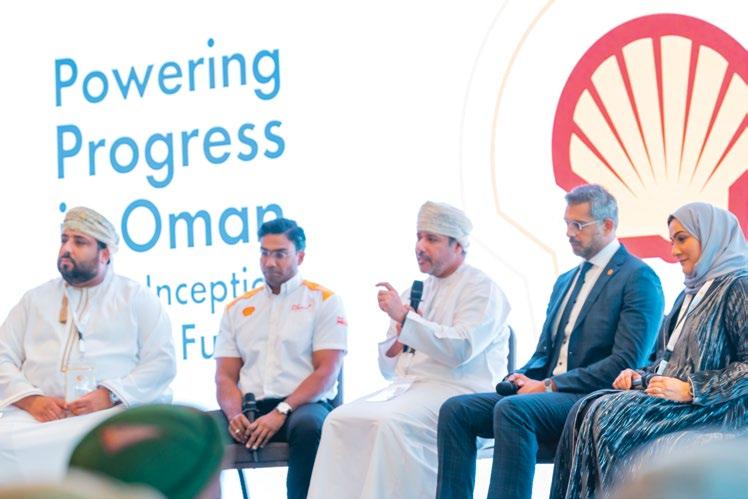
operations, it is about remaining deeply connected to the people we serve. Today, we reaffirm our commitment to stand shoulder to shoulder with our partners and stakeholders, to power Oman’s progress in line with our strategy and Oman Vision 2040. Guided by empathy, innovation, and national pride, we will continue to serve the Sultanate under the wise leadership of His Majesty Sultan Haitham Bin Tarik and contribute to the realisation of his vision for Oman’s future.”
Throughout the event, Shell Oman showcased landmark achievements across its core businesses. Highlights included the inauguration of the Sultanate’s first hydrogen service station, the launch of FuelSave 91, and the signing of a major contract with Oman Air at Muscat and Salalah International airports. The company also announced a strategic EV partnership with Porsche and underscored its collaboration with Al Meera to modernise the Non-Fuel Retail
experience. In Lubricants, Shell Oman celebrated 40 years of operations at its world-class Lubricants Blending Plant, a cornerstone in supporting local industry and exports, while also introducing Shell’s pioneering immersion cooling technologies designed to enable the growth of data centres in Oman and across the region.
Collectively, these milestones reflect Shell Oman’s drive to innovate, elevate customer experience, and advance the energy transition. The conference also underscored Shell Oman’s employee engagement efforts, a notable 94 per cent Omanisation rate and its commitment to In-Country Value (ICV). These initiatives are not just economic contributions but also positions Shell Oman as a catalyst for national progress and a trusted partner for locals. Beyond operational performance, Shell Oman emphasised its evolving brand story, one that embodies resilience and ambition, while remaining true to Shell’s world-class global standards.
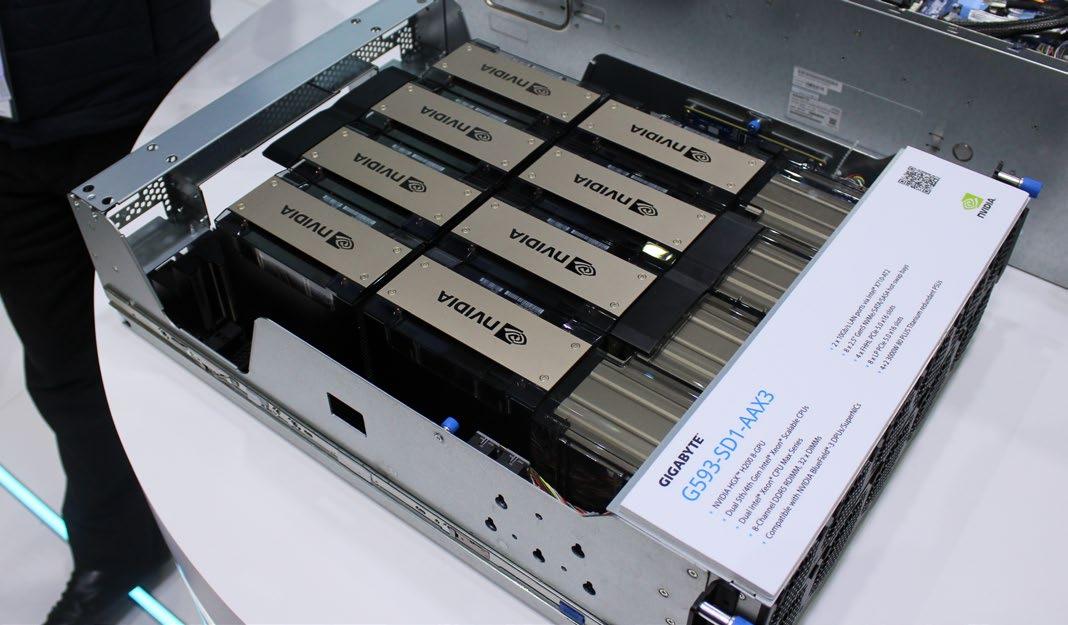
Oman Data Park (ODP), the Sultanate’s premier provider of integrated cloud, cybersecurity, local hosting, and AI services, has announced a significant leap in Oman’s digital infrastructure by adding the cuttingedge NVIDIA H200 GPUs to its existing AI infrastructure including NVIDIA A10, A40, and A100 stack. The new platform cements ODP’s leadership in enabling world-class AI solutions in the region.
Beyond enhancing computational performance, this addition reflects a broader commitment to purposedriven innovation—aligning advanced technologies with national priorities, strengthening Oman’s digital resilience, and opening new frontiers for transformation across various sectors.
Commenting on the initiative, Eng. Maqbool Al-Wahibi, CEO, ODP, stated, “At Oman Data Park, we view innovation as a catalyst for national development. Our focus extends well beyond infrastructure; we aim to build the foundations of a future-ready Oman by cultivating digital ecosystems that empower industries, elevate public services, and equip emerging talent to lead in a data-driven age. Partnering with leading technology providers deepens our contribution to Oman’s broader transformation agenda, ensuring that the capabilities we adopt translate into meaningful outcomes for people, institutions, and the economy to align with Oman Vision 2040.”
Optimised for AI models training and inferencing, the H200 excels in tasks
such as natural language processing, deep learning, and high-performance computing (HPC). Its deployment represents the first of its kind in Oman and is a critical enabler of the country’s AI initiatives, ensuring top-tier performance and data security.
This milestone reaffirms ODP’s commitment to advancing Oman’s digital priorities—promoting AI adoption, safeguarding data sovereignty, and reinforcing technological selfreliance. As the nation’s digital ecosystem evolves, ODP remains focused on delivering tangible outcomes by equipping government, businesses, and academia with the infrastructure required to innovate and lead in an AIpowered future.
Dossier Construction Awards & Summit 2025 honoured exemplary achievers in construction, infrastructure, real estate, design and engineering while the summit focussed on pertinent issues affecting these sectors
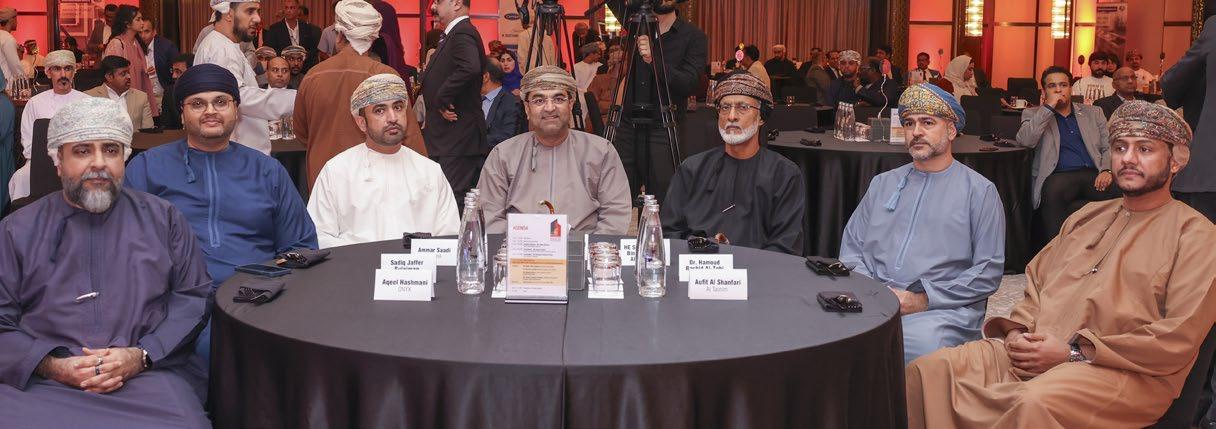
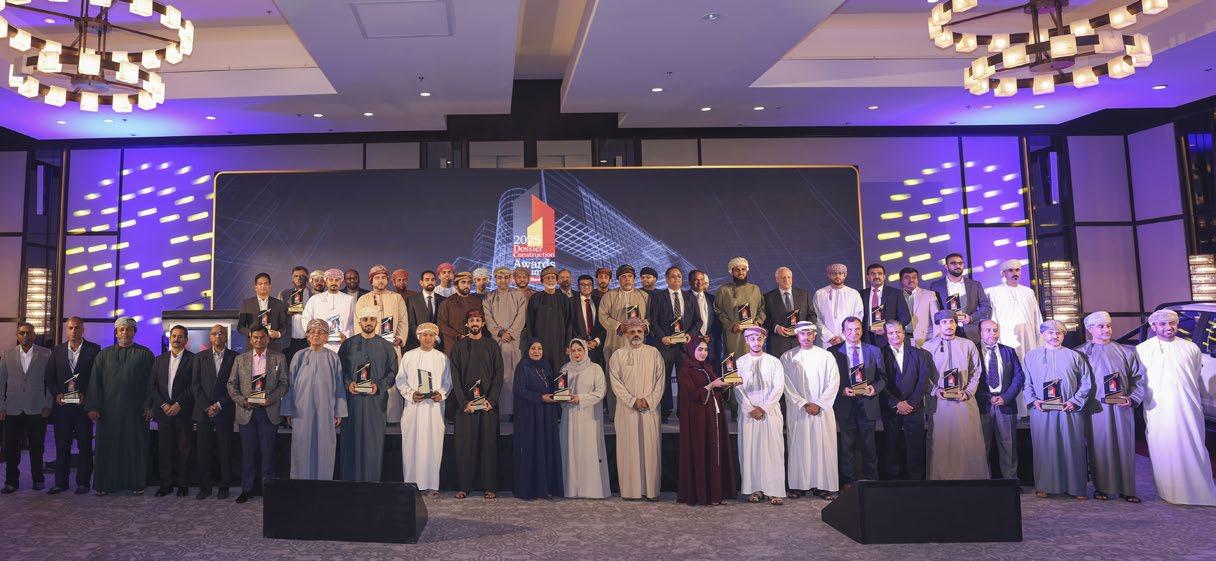
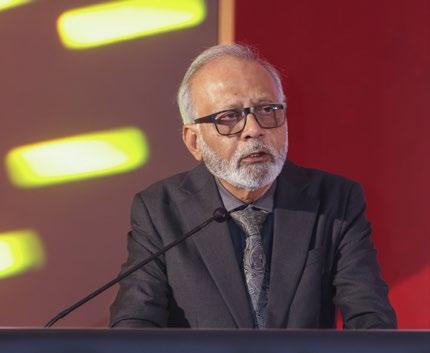
United Media Services organised the 13th edition of Dossier Construction Awards on September 17, 2025 at the JW Marriott Muscat. The event was organised under the auspices of the Ministry of Housing & Urban Planning. Oman Chamber of Commerce & Industry was the endorsement partner. The gala evening was graced by His Excellency Dr. Mohammed Ali Al Mutawa, Undersecretary of the Ministry of Housing and Urban Planning as the Chief Guest. HE Shaikh Salim bin Mustahail Al Mashani presided over the event. Atulya Sharma, CEO, United Media Services set the stage with his welcome address stating that, “The winners we honour tonight stand out because they meet challenges head-on. They adopt advanced technologies, enforce discipline and safety, champion sustainability –whether through green building, energy efficiency, or water conservation – and collaborate across sectors to do things differently.”
Overall, 26 awards were presented to company’s and corporate leaders for their exemplary performance. His Excellency Dr. Mohammed Ali Al Mutawa, Undersecretary of the Ministry of Housing and Urban Planning presented Awards to the winners. The knowledge session of the event featured

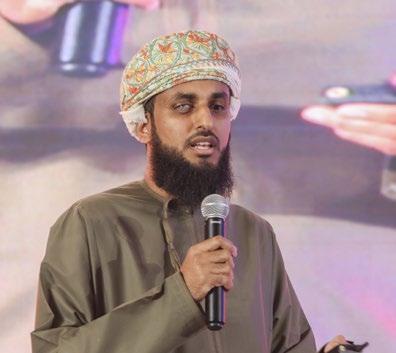
a panel discussion on the topic – ‘Oman Vision 2040: Catalysing the Next Era of Real Estate Development.’ The panellists included Sadiq Jaffer Sulaiman, Founder, Onyx Realty; Dr. Shamsa al Harthy, Director-General, Dar Al Atta’a; Akshay Kothari, Chief Investment Officer, WUJHA Real Estate and Ms. Shiyam Shathan Al Khalili, Strategic Development Advocate, Stay Development. Mayank Singh, Executive Vice President and Group Editor, UMS moderated the panel discussion. The key takeaways of the panel discussion included an overview of Oman’s real estate sector in financial year 2025, ways in which demand can be stimulated to match the forthcoming supply in the market and key enablers that can enhance the growth of the sector.
The Summit also featured presentations by Samer Tamimi, Senior Vice President, UAE & Oman, Hill International and Hamdoon Hamood Al Toqi, CEO, Wefaaq Properties. The presentations gave incisive insights into industry trends.
Dossier Construction Awards 2025 received outstanding support from a cross section of companies reiterating its eminence as one of its kind event for the construction, infrastructure and real estate sectors. WUJHA Development was The Premier Partner; Onyx Realty the Strategic Real Estate Partner and Hill
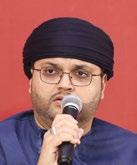
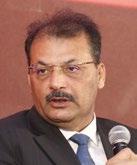
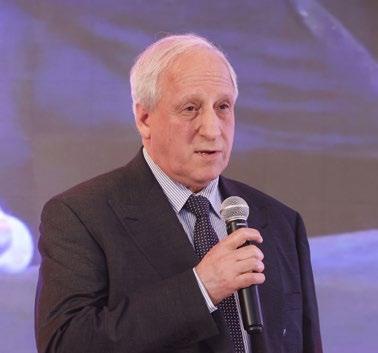
International the Consultant Partner. Larsen & Toubro Oman, Al Tasnim Enterprises, Carrier Brand of Air Conditioning from Bahwan Engineering Company, Firas Bin Fatik SPC, Jotun Paints, International Heavy Equipment were the Strategic Partners.
Sharikah Fanniyah Omaniyah LLC, Khimji Ramdas Infrastructure Cluster, Galfar Engineering & Contracting, Weefaq Real Estate, Best Infrastructure Developers, Dar Al Att’a, Muscat Asphalt, Stay Development, Design Group Engineering Consultants, OTIS, Muscat Overseas Group – Qais Omani Establishment LLC were the Associate Partners. Foton was the Commercial Vehicle Partner. The Daily Tribune was the Bahrain Media Partner. Zibi the Zanzibar Media Partner. OER & Alam Al Iktisaad the Media Partners. UMS Digital the Digital Partner.
Overall, the gala recognised outstanding performers and trained the spotlight on topics of relevance for the construction and real estate sector. Dossier Construction Awards was launched in 2007 by Dossier magazine - Oman’s first B2B publication on construction, infrastructure, real estate, design and engineering sectors. The Awards felicitate the best-of-the-best within the construction and its allied sectors.

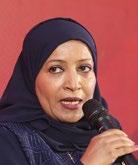



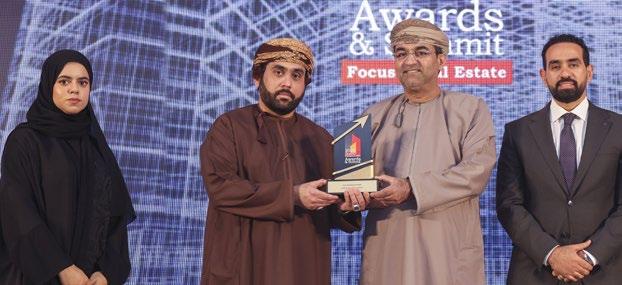


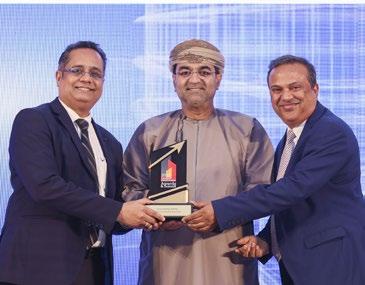
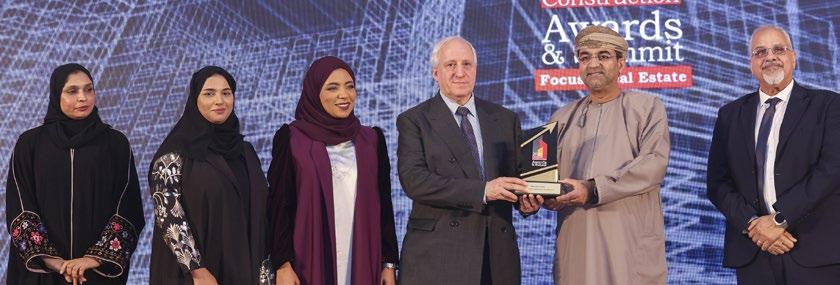
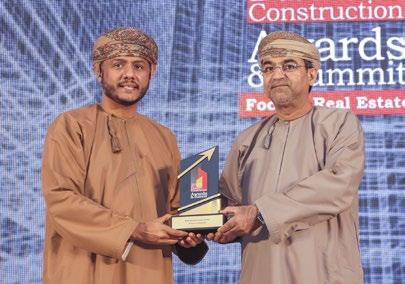
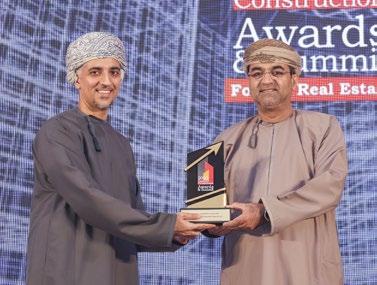
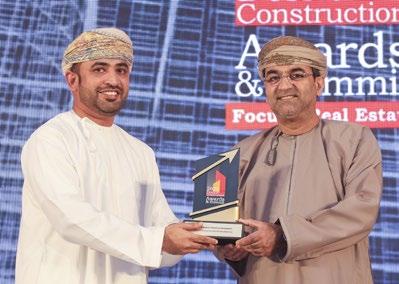
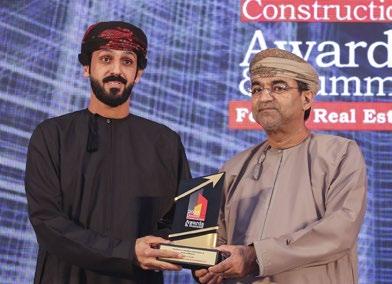
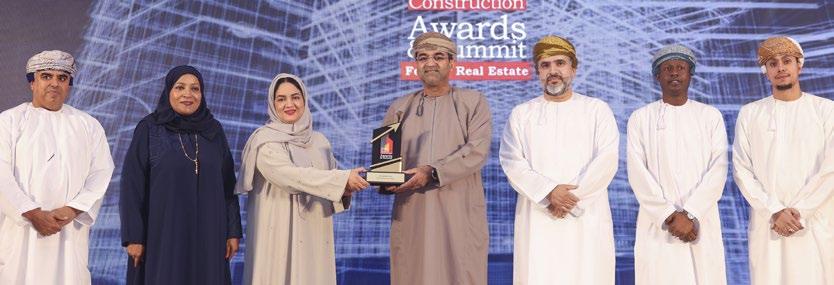
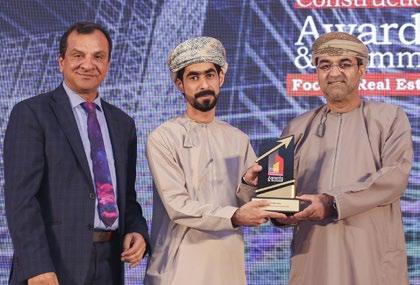
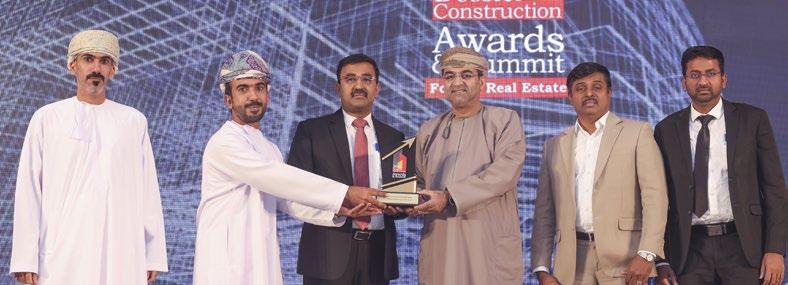


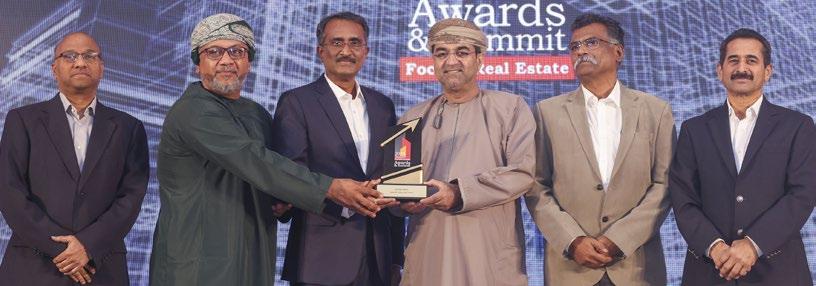
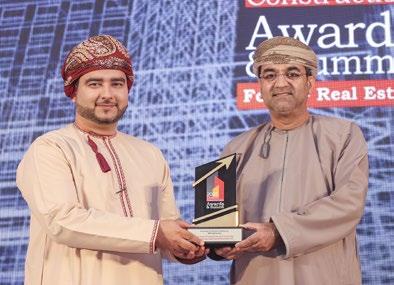







Best Sustainable Project
Oman Botanic Garden by Larsen & Toubro (L&T) Oman
Best MEP Contractor
Bahwan Engineering Company (BEC)
Construction Brand of the Nation
Galfar Engineering & Contracting SAOG
Best Construction Safety Initiative
Al Tasnim Enterprises
Global Excellence in Mixed-Use Development
Uptown Muscat by WUJHA Development
Excellence in Data Center Project Delivery
Design Group Engineering Consultants LLC
Excellence in Sports Infrastructure
Firas Bin Fatik SPC
Market Leader of the Year - Paints Category
Jotun Paints
Quality & Excellence in Construction
Khimji Ramdas Construction
Best Development Project
OLFA by Stay Development
Best Construction Contractor
Larsen & Toubro (L&T) Oman
Multi-Brand Heavy Equipment Solutions
International Heavy Equipment LLC
Best MEP supplier
Bahwan Engineering Company (BEC)
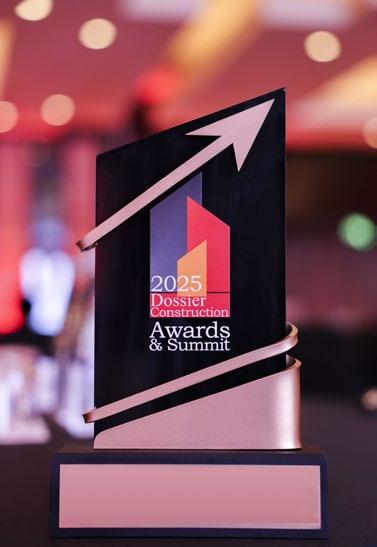
Excellence in Workflow Optimization & Process Efficiency
Majid Al Subhi Design Group Engineering Consultants LLC
Mega Project Delivery
HILL International
Innovation and Excellence in Road Construction
Best Infrastructure Developers LLC
Commercial Vehicle of the Year
Foton Aumark by Gulf Great Sands
Real Estate Pioneer of the Year
Qais Omani Establishment - Muscat Overseas Group
Best Renewable Energy Project
Amlaak Energy Resources LLC
Best HSE initiative
Larsen & Toubro (L&T) Oman
Best Vertical & Horizontal Transportation System
Bahwan Engineering Company (BEC)
Associate Partner
Wefaaq Real Estate
Global Visionary Developer
WUJHA Development
Best Sustainable Project
Hay Al Atta’a by Dar Al Atta’a
Corporate Legacy Brand in Construction
Sharikah Fanniyah Omaniyah (Muscat) LLC
Innovation & Technical Excellence in MEP Engineering
Eng. Yasser Al Lawati, Partner & Co-founder Design Group Engineering Consultants LLC
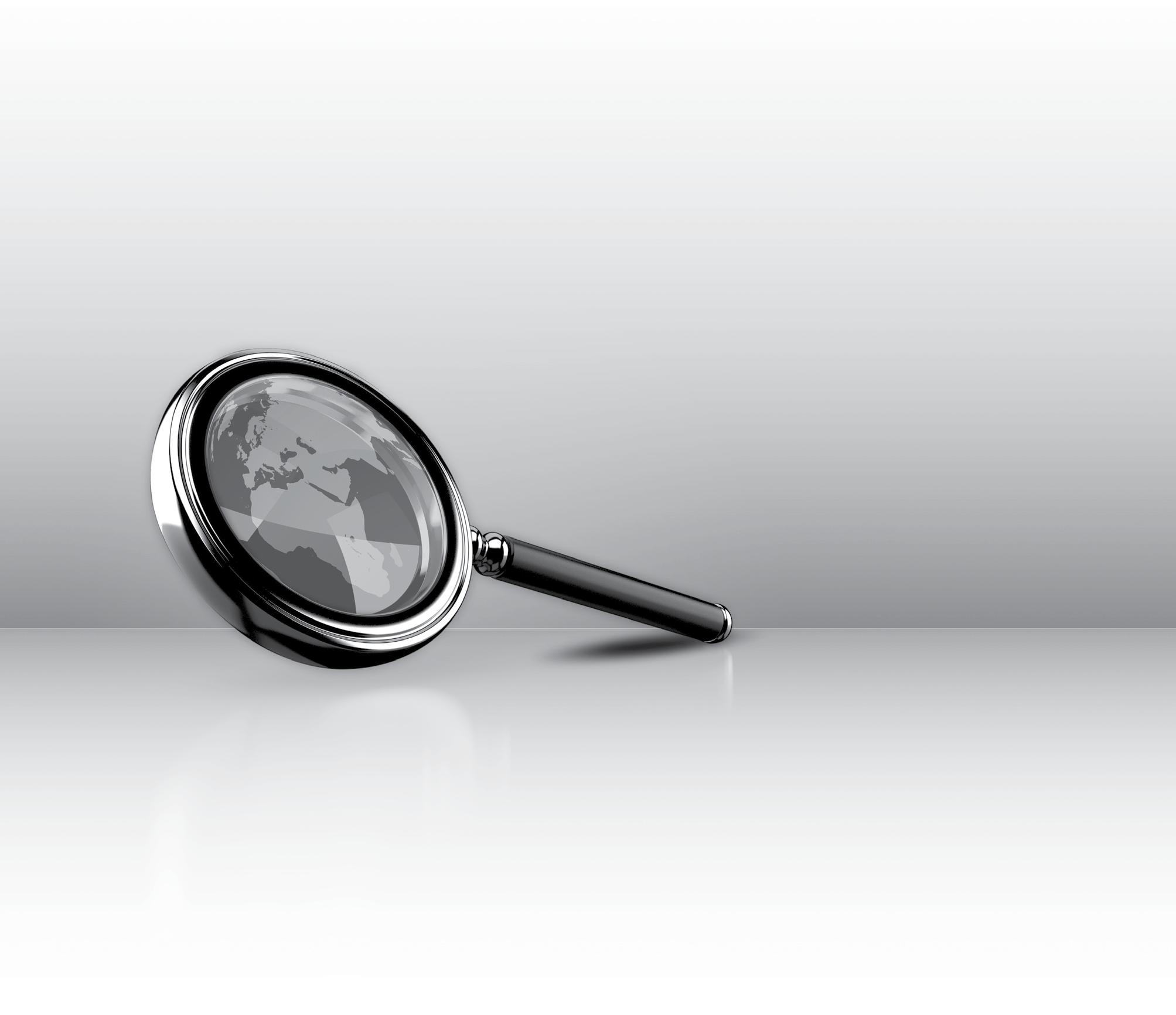
With over 26 years of setting new standards in business and financial journalism, Oman Economic Review now proudly presents the OER Corporate Excellence Awards, honouring the visionaries at the helm of Oman's business landscape. This prestigious event will celebrate the corporate leaders and MSX-listed companies in the Large, Mid, and Small-cap categories, who have demonstrated unmatched foresight and excellence, setting bold benchmarks in an ever-evolving market.
These awards are more than recognition; they are a testament to the enduring spirit of innovation that drives Oman’s economy forward. From groundbreaking strategies to transformative leadership, the OER Corporate Excellence Awards recognize those who redefine the boundaries of success.
This year OER Corporate Excellence Awards turns into a case study driven,nomination based awards platform where corporates and individuals showcase real,proven business impact through innovation, resilience and excellence.
For more information, contact SHIVKUMAR on 99267159, shivkumar@umsoman.com OR DHANISH on 92637189, dhanish@umsoman.com
Share the

Scan to Nominate

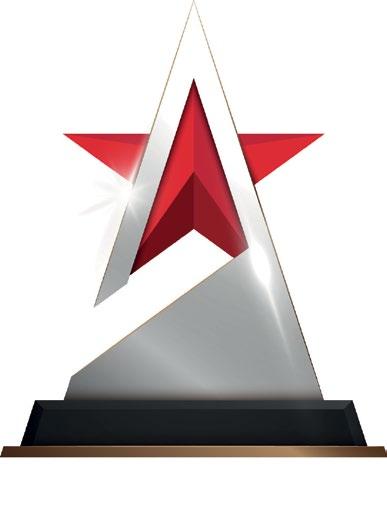

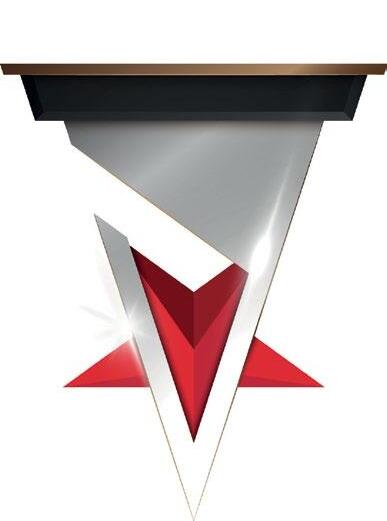
• Growth & Profitability CEO panel discussion: Topic: ‘An
DATE: NOVEMBER 10, 2025
VENUE: SHERATON OMAN HOTEL
OER
• Bank of the Year
• Insurance Company of the Year
• Finance Company of the Year
• Technology Company of the Year
• Manufacturing Company of the Year
• Energy Company of the Year
• Healthcare Company of the Year
• Real Estate Company of the Year
• Innovative Company of the Year
• Business Leader of the Year
• Young Business Leader of the Year
• CEO of the Year
• Innovative Leader of the Year
• Transformation Leader of the Year
• ICV Initiative of the Year
• CSR Initiative of the Year
• Sustainability Initiative of the Year
• Branding of the Year
• Lifetime Achievement Award
• Sustainability & ESG
• Customer Experience
• Talent Development & Workplace Culture
• Crisis Management & Resilience
• Digital Transformation
The 15th edition of the Oman’s Alam Al-Iktisaad Awards 2025 ceremony was recently held under the patronage of H.E. Eng. Ahmed bin Hassan Al Dheeb, Deputy Chairman of the Public Authority for Special Economic Zones and Free Zones (OPAZ), at the Sheraton Oman Hotel.
The event witnessed an exceptional turnout of business leaders, officials from public joint-stock companies as well as senior executives from the private sector and distinguished guests.
The Alam Al-Iktisaad Awards for Oman’s Best-Performing Companies are based on the results of the annual survey conducted by the magazine in cooperation with United Securities. The survey focuses on public jointstock companies listed on the Muscat Stock Exchange. This year’s edition comes against the backdrop of Oman’s economic developments in 2024, during which the national economy advanced in several global indices, with the nonoil sector recording 4.2 per cent growth, alongside relative stability in overall economic growth indicators.
Notable improvements were also registered in the Economic Freedom Index and Environmental Performance Index, with continued efforts to boost entrepreneurship and attract foreign direct investments across diverse sectors.
Companies were classified into three categories: large-cap companies with a capital exceeding RO75 million, mid-cap companies with capital between RO25 million and RO75 million, and small-cap companies with capital between RO10 million and RO25 million, based on their market value at the end of 2024.
In his address at the ceremony, Said bin Masoud Al Mashani, Deputy CEO, United Media Services, emphasised that this initiative has become one of the most prominent fixtures on the Sultanate of Oman’s economic calendar, providing a platform where business leaders and executives converge to celebrate excellence in performance and leadership. He explained that honouring public joint-stock companies listed on the Muscat Stock Exchange, based on the annual survey results, embodies the award’s mission of highlighting the vital
and growing role of the capital market in supporting national development, diversifying funding sources, and enhancing investor confidence in Oman’s economy.
Al Mashani pointed out that Muscat Stock Exchange has witnessed significant developments in recent times, underscoring the market’s strength and attractiveness. The market capitalization of listed companies reached RO27.1 billion, reflecting its growing influence on the national economy. Market capitalisation represented about 22 per cent of Oman’s GDP, a clear indicator of integration between the capital market and the broader economy. He added that the investor base expanded to include more than 135 nationalities, with foreign investments growing by nearly 19 per cent, demonstrating regional and international investor confidence in Oman and its economic prospects. This growth coincided with improving local economic performance, rising confidence in government policies aimed at reducing public debt, increasing spending on essential services, and launching major
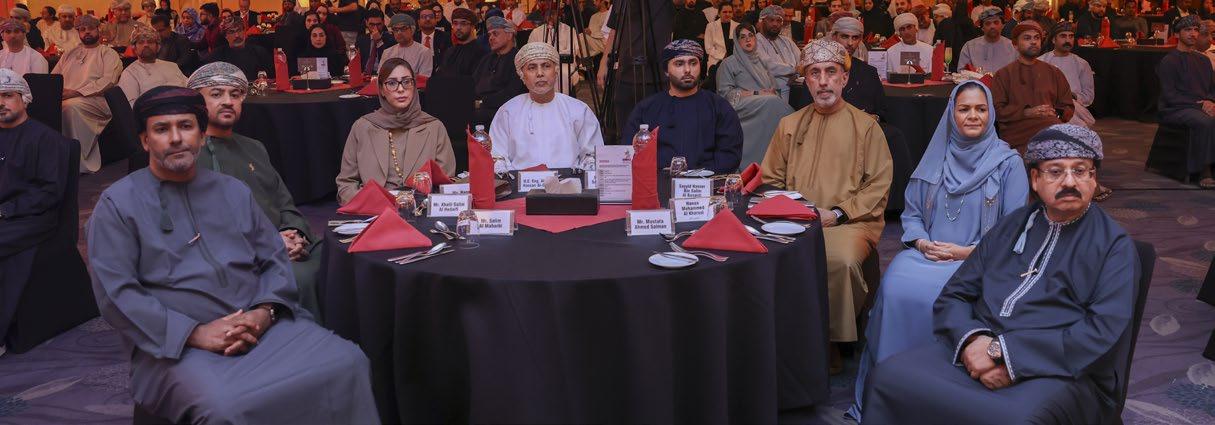
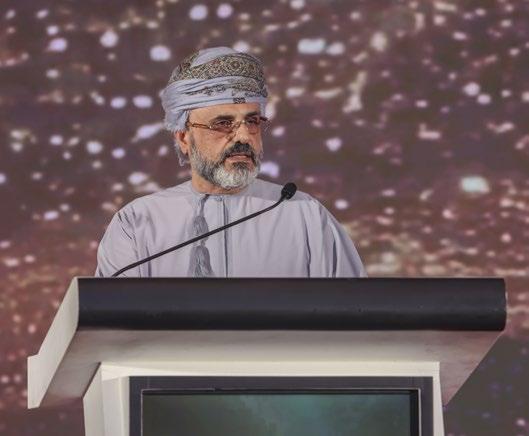
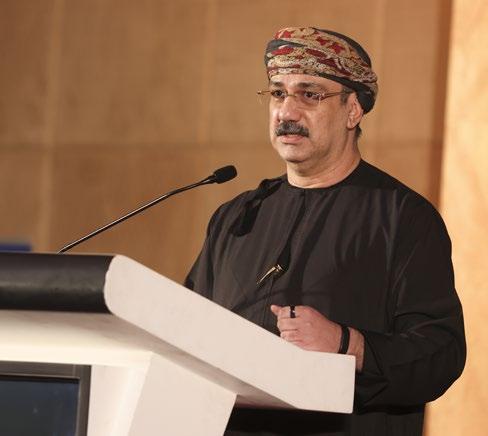
infrastructure projects to attract both domestic and foreign investments.
He also clarified that the ceremony honours companies selected through the annual survey of Oman’s BestPerforming Companies, conducted in collaboration with an international consultancy firm to ensure the highest standards of professionalism and accuracy. The selection process was based on several key indicators, including company market size at year-end, growth rates, return on assets, return on equity, and profitability levels. According to these criteria, listed companies were ranked into three segments: large-cap, midcap, and small-cap. The event also recognized a number of institutions, individuals, and pioneering initiatives for their distinctive contributions in development, innovation, and professional excellence.
On the sidelines of the ceremony, Dr. Jalal Al Hadhrami, Founder and Chairman of Asateer Al Majd International for Consulting and Investment, delivered a keynote titled “Bridge-Building Strategy and Legacy Creation.” He highlighted how to build an economic institutional legacy by linking the private sector with government institutions and aligning strategies and decisions with the objectives of Oman Vision 2040.
Dr. Al Hadhrami also shared lessons from his personal experience, stressing the importance of collaboration, discipline, alignment of visions, and measuring the real impact on society and the national economy.
During the event, several topperforming companies for 2024 were honored across the three categories.
• Large-Cap: Sohar International, OQ
Base Industries, National Bank of Oman, Ahli Bank, National Finance Company, and Bank Muscat.
• Mid-Cap: Al Jazeera Steel Products, Al Batinah Power, A’Saffa Foods, and Taageer Finance.
• Small-Cap: Gulf Mushroom Company, Sahara Hospitality, and National Detergent Company.
The ceremony was organised by United Media Services LLC, in partnership with United Securities, with Khedmah Pay and Khedmah Delivery as Payment Partners, Leaderly Consulting & Auditing as Audit Partner, Credit Oman as Support Partner, Changan as Automotive Partner, A Entertainment as Entertainment Partner, and Liva Insurance as the Insurance Partner. Media Partners included Oman Economic Review and OERLive, while UMS Digital served as the event’s digital partner.
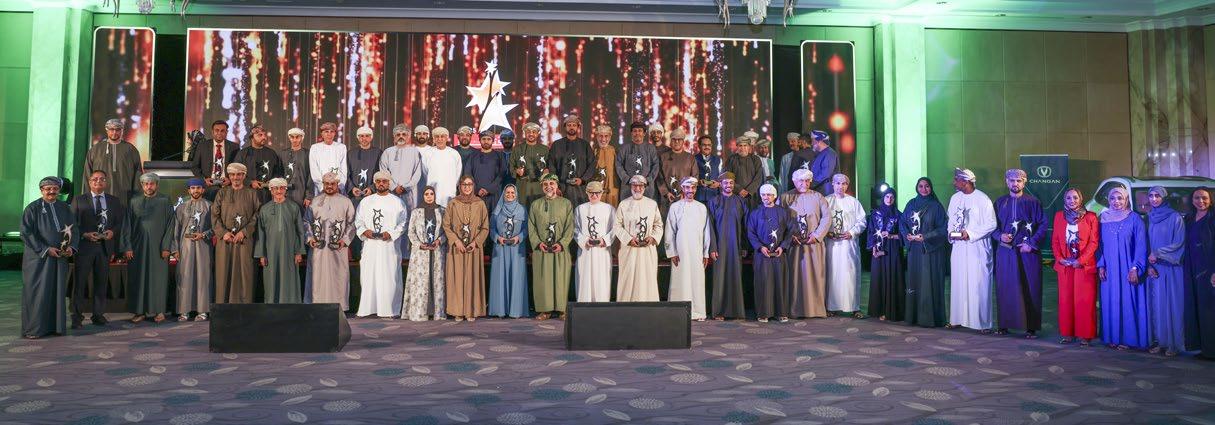

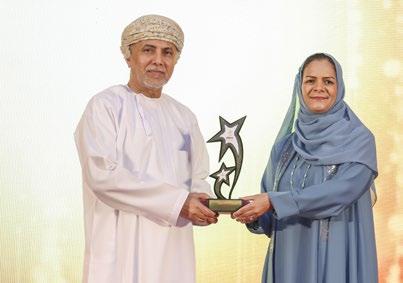
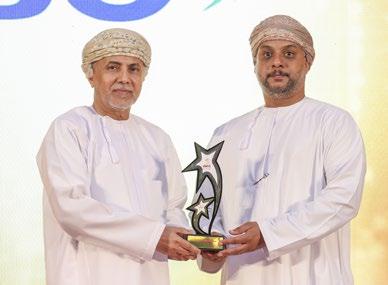

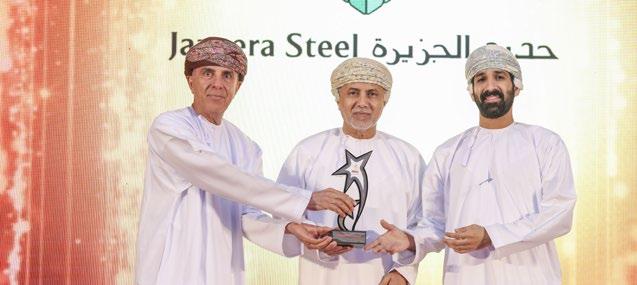
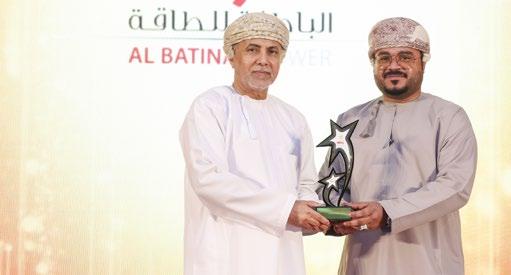
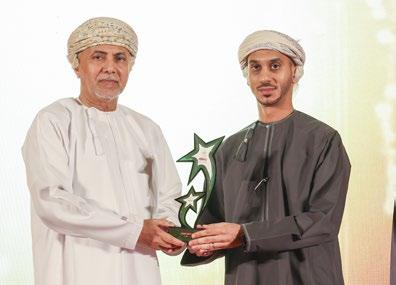
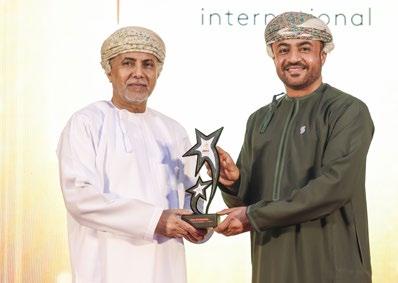
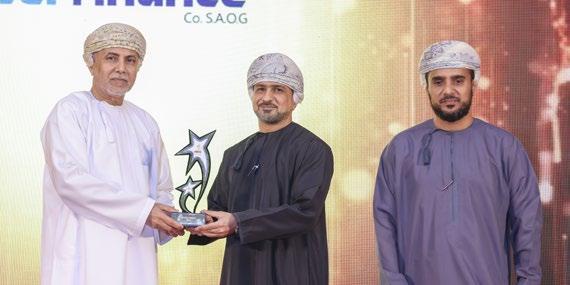
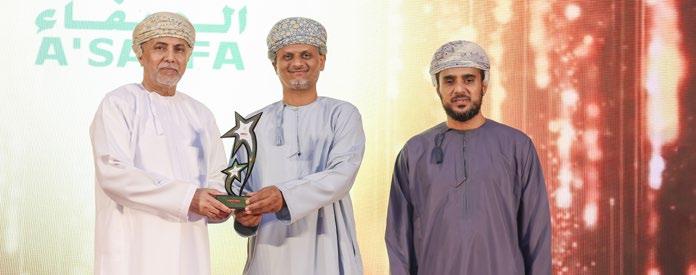
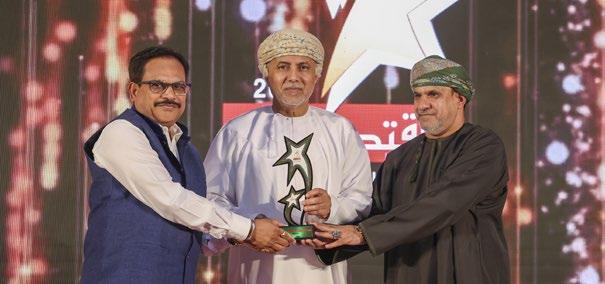
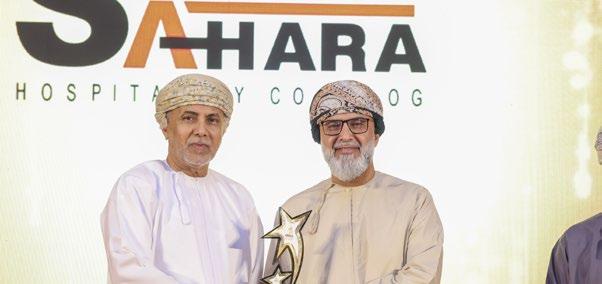
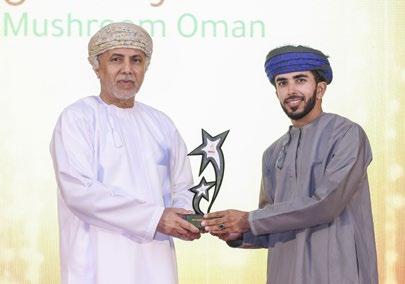
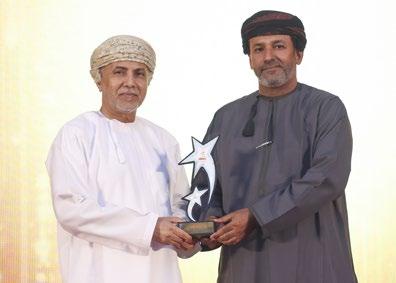
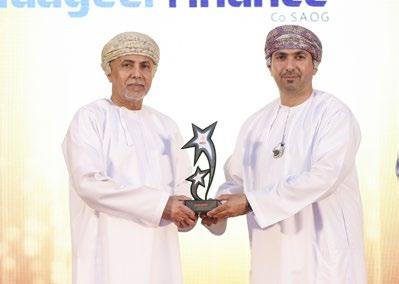
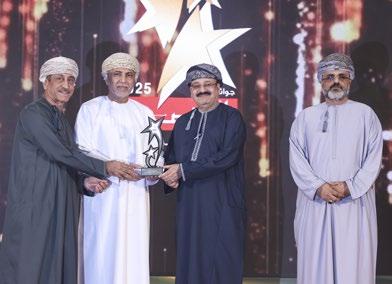


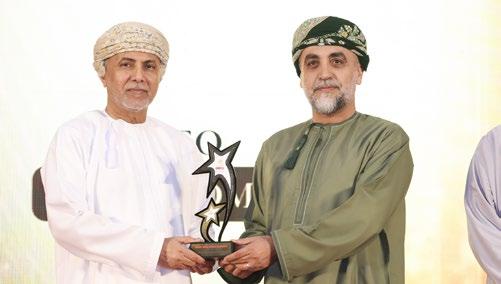

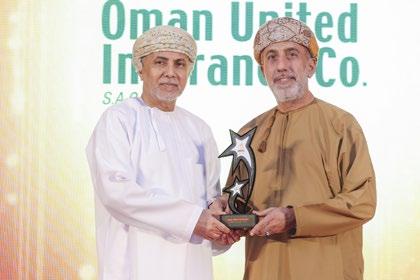
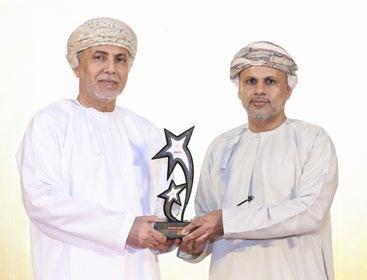
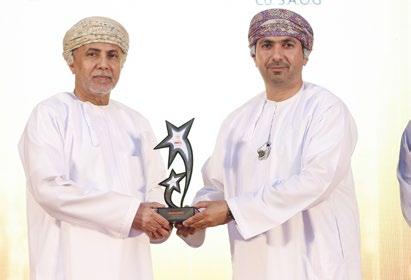
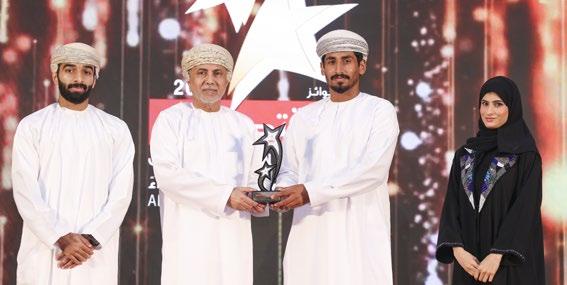
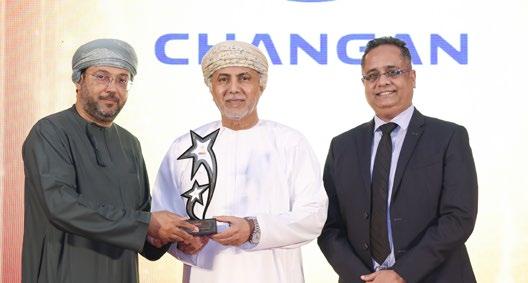
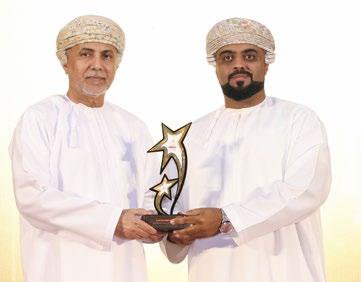
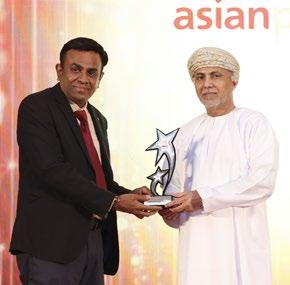
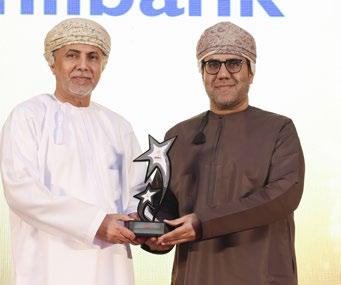
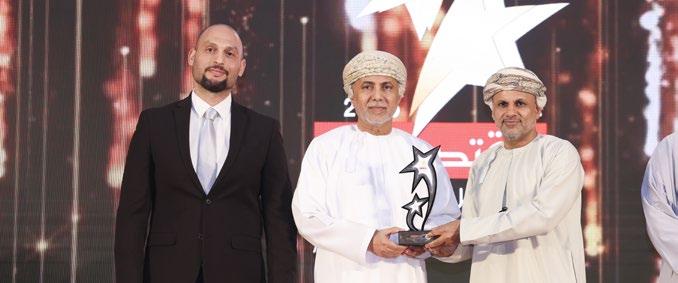
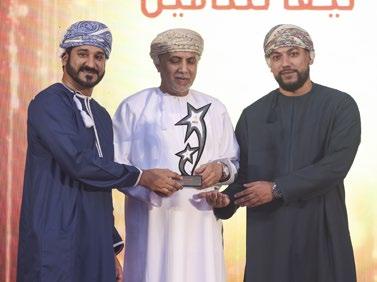
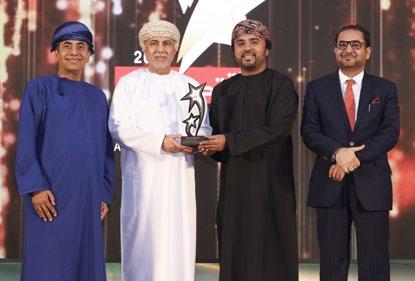

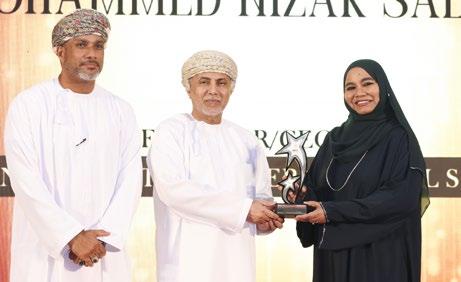
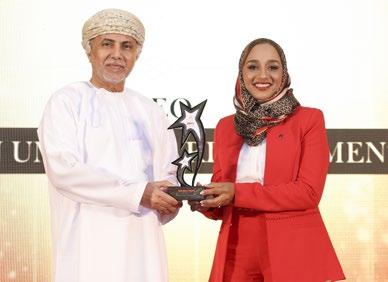
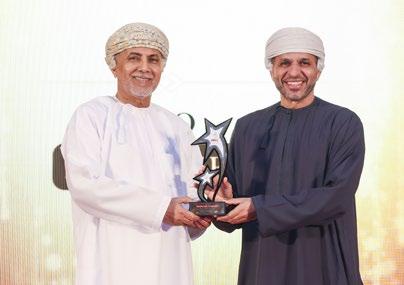
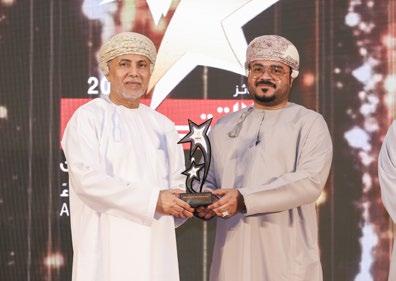
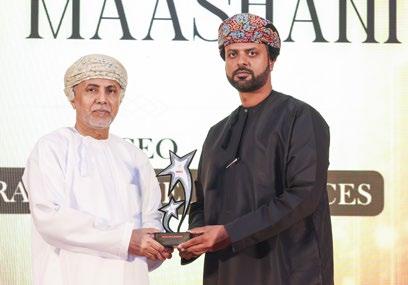
Best Performing Company Awards
Small Cap Segment
National Detergent Company SAOG
Best Performing Company Awards
Small Cap Segment
Sahara Hospitality Company
Best Performing Company Awards
Small Cap Segment
Gulf Mushroom Company
Best Performing Company Awards
Mid Cap Segment
Al Jazeera Steel Products
Best Performing Company Awards
Mid Cap Segment
Taageer Finance
Best Performing Company Awards
Mid Cap Segment
Al Batinah Power Company SAOG
Best Performing Company Awards
Mid Cap Segment
A’Saffa Foods
Best Performing Company Awards
Large Cap Segment
OQ Base Industries
Best Performing Company Awards
Large Cap Segment
National Bank Of Oman
Best Performing Company Awards
Large Cap Segment
Bank Muscat
Best Performing Company Awards
Large Cap Segment
ahlibank
Best Performing Company Awards
Large Cap Segment
National Finance Company
Best Performing Company Awards
Large Cap Segment
Sohar International
Best Digital Initiatives in the FLC Sector
Taageer Finance
Market Leadership in Asset Management Award
United Securities
Islamic Banking Excellence Award
Bank Nizwa
Best Loyalty Innovation in Insurance – 2025
Liva Insurance
Visionary Role in Oman’s Economic Growth and Risk Management & Trade
Facilitation Leadership Award
Credit Oman
Enabler of National Initiatives & Progress
Sohar International
Leadership in Future-Ready Education
Modern Generation International School
Excellence in Insurance Services
Oman United Insurance
Emerging Digital Brand of the Year
Khedmah Delivery
Best SME Finance Partner
Taageer Finance
Leadership in Sustainability
Amlaak Energy
Paint & Coatings Company of the Year
Asian Paints
Excellence in Innovation & Digital Banking
ahlibank
Excellence in Consumer Confidence Award
A’Saffa Foods
Driving Innovation in Smart Mobility Award
All-New Changan CS75PLUS 4WD
Changan
Most Innovative Digital Wallet Award
Khedmah Pay
Entertainment Company of the Year
A Entertainment
Insurance Company of the Year
Liva Insurance
Education Leader of the Year
Noor Bint Mohammed Nizar Saldin
Founder/CEO, Modern Generation International School
CEO of the Year – Manufacturing Sector
Fahad Mohammed Riaz
Vice Chairman, Mohammed Riaz & Partner LLC
Leadership Role in Promoting Domestic & Export Trade
Sheikh Khalil Ahmed Al Harthy
CEO, Credit Oman
Visionary Business Woman of the Year
Maryam Al Shabibi
CEO, Green Umbrella Recruitment
Power Sector Icon of the Year
Saud Bin Hamed Bin Ahmed Al Waili
CEO, Al Batinah Power Company SAOG
CEO of the Year – Insurance Sector
Hanaa Al Hinai
CEO, Liva Insurance
Business Icon of the Year
Mohsin Hani Al-Bahrani
CEO, MHD ACERE
CEO of the Year
Musallam Al Maashani
CEO, Al Baraka Oilfield Services



Changan Automobile, one of China’s leading automotive manufacturers, has officially launched the highly anticipated All New CS75PLUS 4WD in Oman. The SUV combines Luxurious Cabin space, Passenger comfort, bold design, and superior driving performance, marking another milestone in Changan’s journey of growth in the Middle East.
Since entering Oman in 2020, Changan has quickly become a trusted brand, now operating eight showrooms and 14 service centres, offering the widest channel coverage among Chinese automobile brands in the country. The launch of the CS75PLUS
4WD adds a ninth model to its Oman lineup, joining favourites such as the Alsvin, EADO Plus, CS35 Plus, UNI-S, CS95, UNI-T, UNI-K, and UNI-V. The model will debut in Oman, with other markets following soon.
The CS75PLUS offers customers a choice of 2.0T engines paired with an 8-speed Aisin automatic transmission, delivering up to 232 net horsepower and 390 N·m net of torque for a smooth yet powerful drive. The Luxurious Interiors are equipped with Nappa Leather seats with MDI high density foam, adjustable 30-degree concave Headrest for the driver and rear seats with a 32-degree angle for comfortable backrest. The Zero gravity
for the co-driver, 8-mode massage can effectively relieve travel fatigue. The Luxury pocket gear design provides simpler hollow-out central console for additional storage space area with more storage space. The Exquisite speaker layout design is equipped with a 14-speaker audio system which has a center speaker, a subwoofer and rear surround speakers, creating a hall-level concert experience. With advanced chassis design and intelligent drive options including 4WD, the CS75PLUS is engineered for versatility across city streets and adventurous terrains.
Inside, the CS75PLUS is equipped with a 14.6-inch infotainment screen, a


wireless Apple CarPlay and Android Auto. Safety features include up to six airbags, Autonomous Emergency Braking, Lane Keep Assist, and a 540° panoramic view camera system, providing drivers with confidence and peace of mind.
“The launch of the CS75PLUS is an important milestone for Changan in Oman,” said Yin, Deputy General Manager of Changan Automobile Middle East and Africa Business Unit. “Oman is one of our fastestgrowing markets in the region, and we are proud to introduce a model that combines advanced technology, safety, and design with a customerfirst approach. With the support of our partners and the new Regional Parts Distribution Center in Dubai, we are committed to offering Omani customers not only worldclass products, but also world-class service.”
Changan continues to invest in its localized brand operation strategy
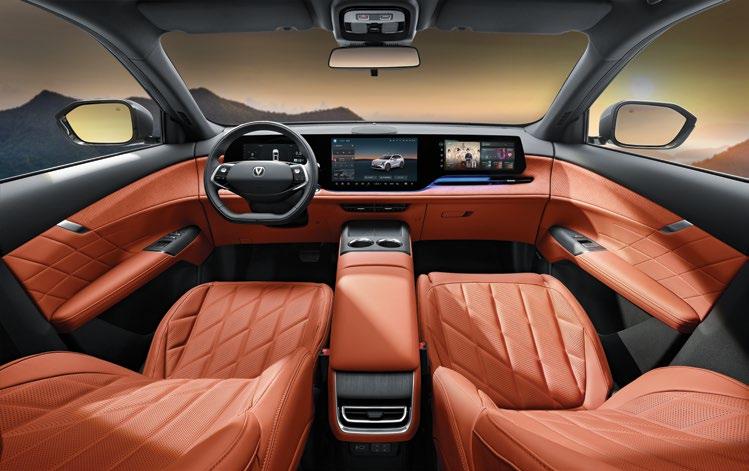
by strengthening aftersales, training, and customer service initiatives. A cornerstone of this commitment is the establishment of the Regional Parts Distribution Center in Dubai, UAE, which significantly reduces response times for spare parts and service requests across the Middle East. Through strategic partnerships, Changan is also accelerating localized operations by building
regional support centres, developing local service teams, and exploring opportunities in joint ventures, financial services, and logistics.
The launch of the CS75PLUS highlights Changan’s commitment to bringing advanced, reliable, and stylish vehicles to Oman while ensuring a high-quality customer experience across the entire journey.
Reinforcing its focus on delivering innovative solutions that put customer convenience at the forefront, National Finance, the Sultanate of Oman’s leading finance company, has launched its all-new Digital Finance Application, introduced as part of the company’s newly revamped website and showcased at COMEX 2025. This milestone marks a significant step forward in delivering a seamless, fully digital customer experience, enabling individuals to apply online for financing of furniture, electronics, appliances, and kitchens, with end-to-end processing directly through the company’s website.
Designed with the modern consumer in mind, the new application offers a fast, paperless journey with swift approvals and financing of up to RO10,000, redefining how people access finance in the country. True to National Finance’s commitment to providing fast, easy, and flexible finance solutions, the Digital Finance Application offers customers the opportunity to get their finance in minutes, eliminating traditional barriers – like branch visits, paperwork and wait times –and offering instant approvals on Consumer Durables Financing.
Commenting on this offering, Tariq Sulaiman Al Farsi, CEO, National Finance, remarked, “The launch of our Digital Finance Application at COMEX 2025 marks a pivotal moment in our journey toward redefining customer experiences. As expectations shift in an increasingly digital world, we remain committed to staying ahead by offering solutions that are fast, transparent, and tailored to modern lifestyles. This platform empowers our customers with greater control and convenience,
Alizz Islamic Bank recently signed a strategic agreement with Credit Oman, the Sultanate’s national export credit agency, with the aim of empowering local businesses, supporting exporters and enhancing the competitiveness of Oman’s economy on the global stage.
The agreement was signed by Ali Al Mani, CEO, Alizz Islamic Bank and Khalil Al Harthy, CEO, Credit Oman in the presence of a number of senior officials from both organisations.
The agreement will see both institutions working closely to design and implement tailored Islamic financial solutions that address the needs of exporters, including trade finance, credit guarantees and risk mitigation tools. By leveraging Credit Oman’s expertise in supporting international trade and Alizz Islamic Bank’s exemplary record in providing Shari’a-compliant financing, the partnership seeks to strengthen Oman’s export ecosystem and encourage sustainable business growth. The agreement also aligns with Oman Vision 2040 by diversifying the national economy, empowering the private sector and creating an enabling environment for innovation and investment.

enabling them to access financing with unparalleled ease, fully online, in just minutes. It is a testament to National Finance’s vision of making finance simpler, smarter, and more accessible for everyone.”
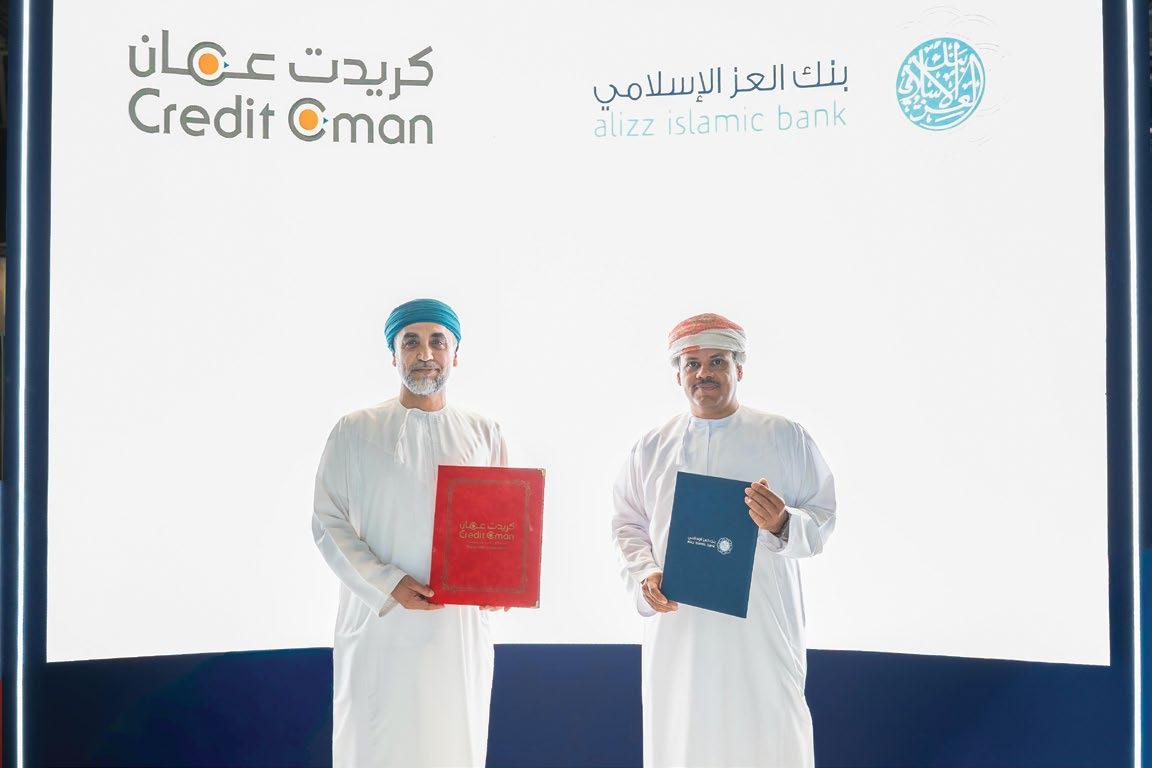
Credit Oman SAOC was founded in 1991, under the name of Export Guarantee Financing Unit (EGFU). Since its inception, Credit Oman has played a pivotal role in facilitating domestic and export trade and contributing to Oman’s economic development. For over 30
Alizz Islamic Bank is committed to building impactful partnerships that serve the national agenda and provide real value to the Omani economy. This milestone agreement with Credit Oman reinforces the bank’s role as a key enabler of sustainable economic development and a trusted partner for businesses across the Sultanate.
At the crossroads of global trade, SOHAR empowers business growth and investment. With integrated services and world-class infrastructure, we connect you to global markets.
